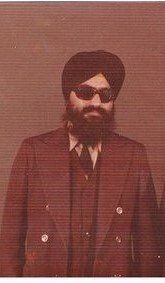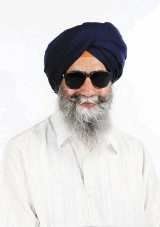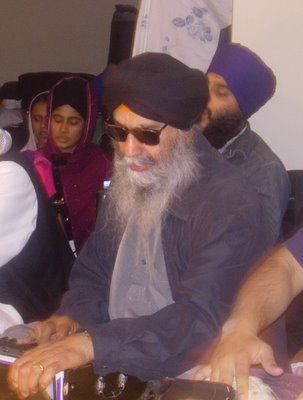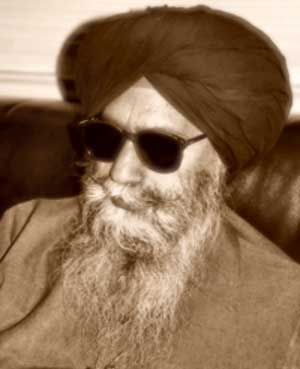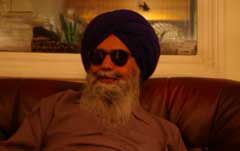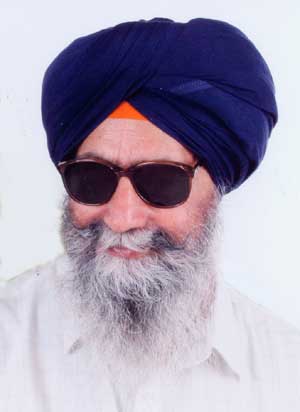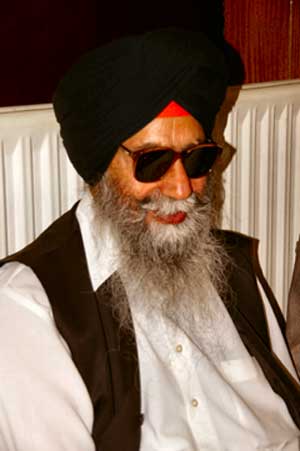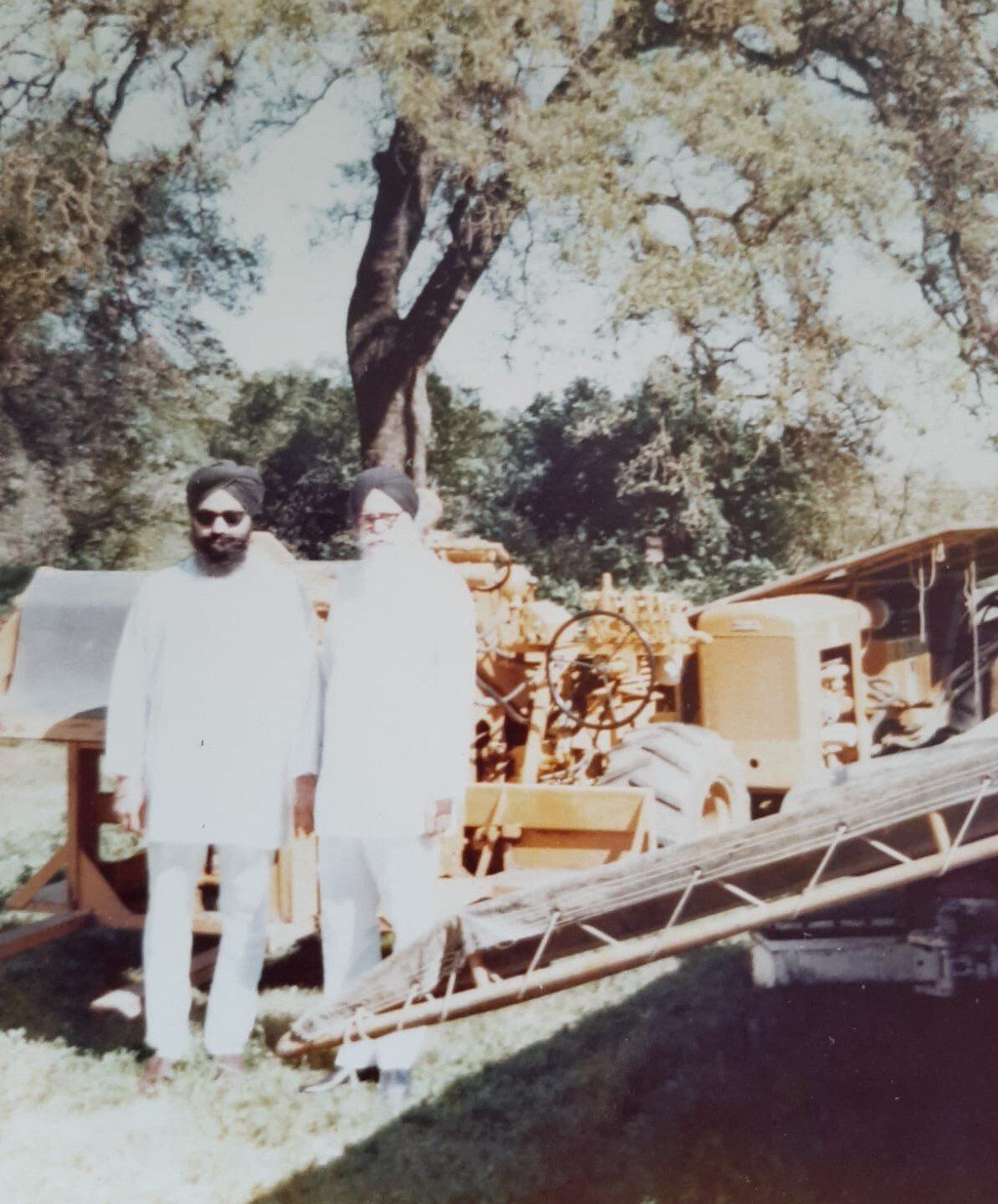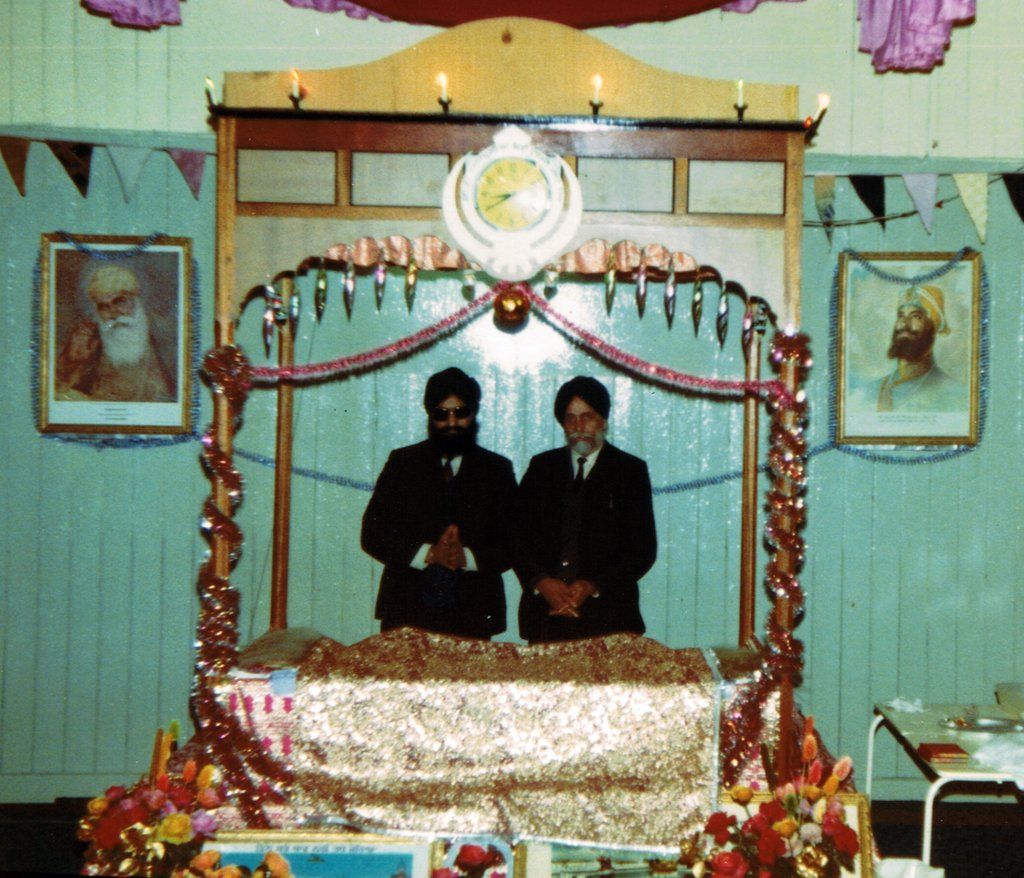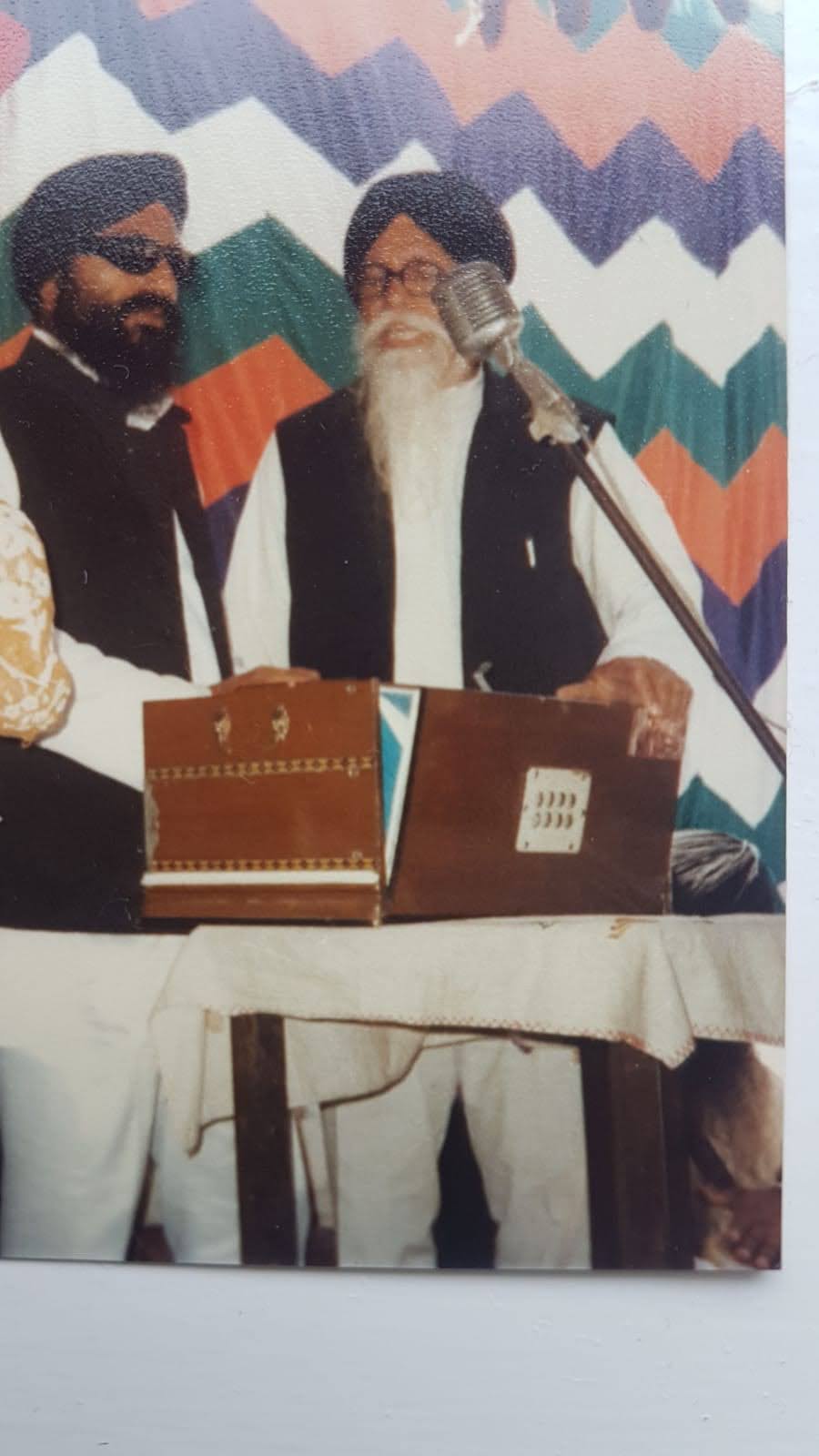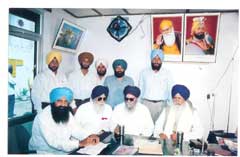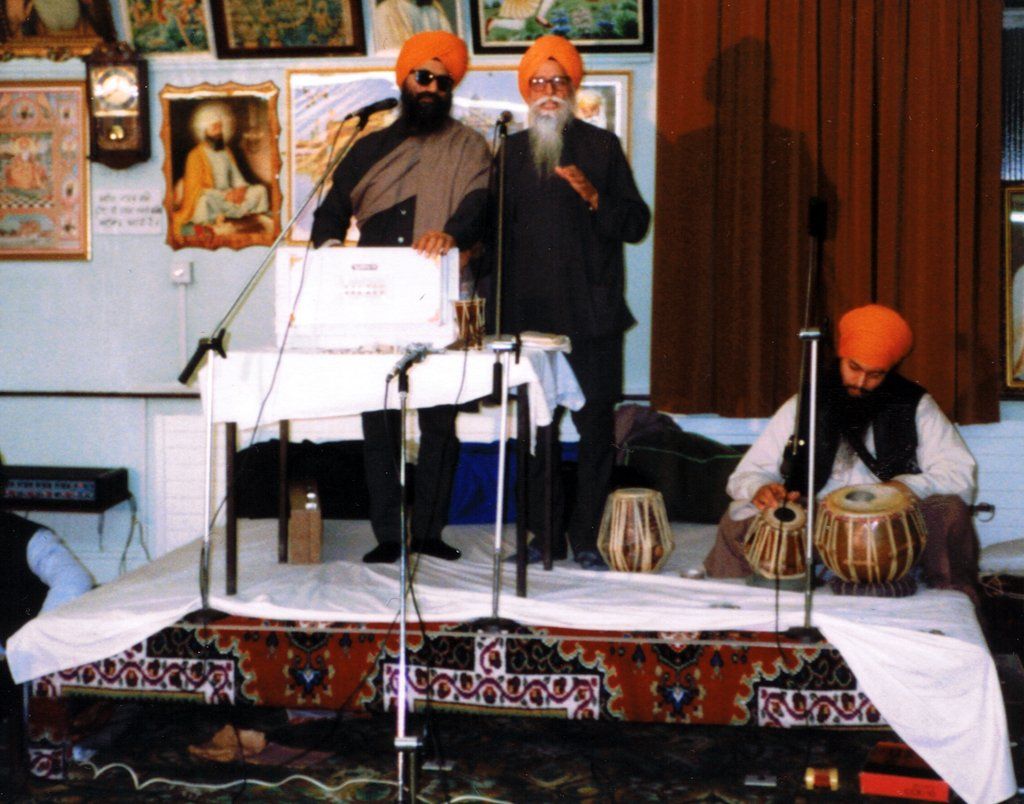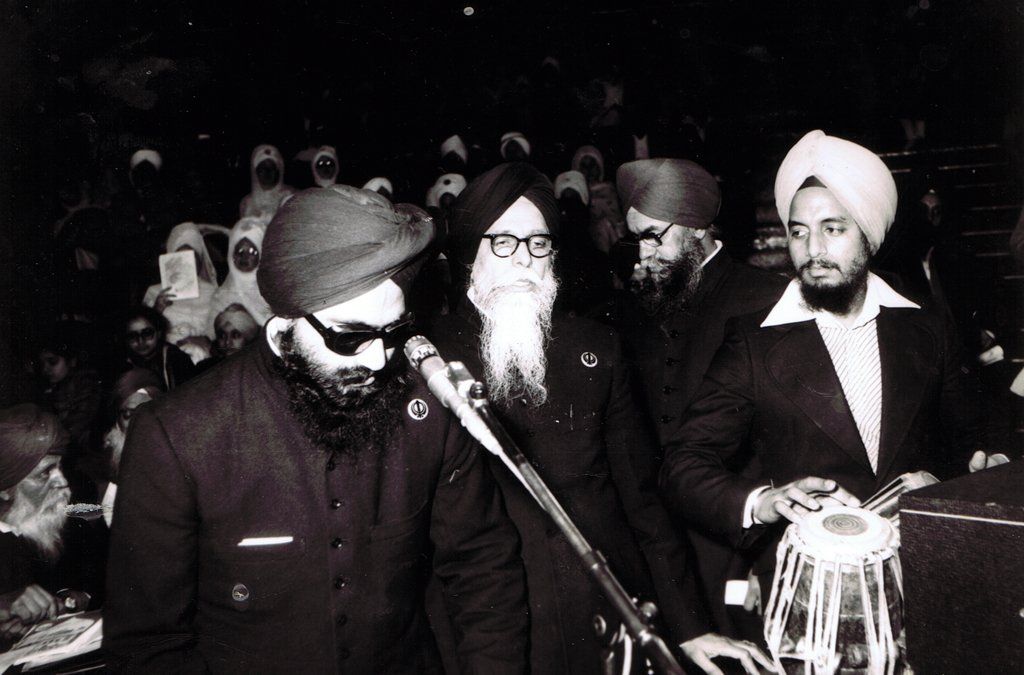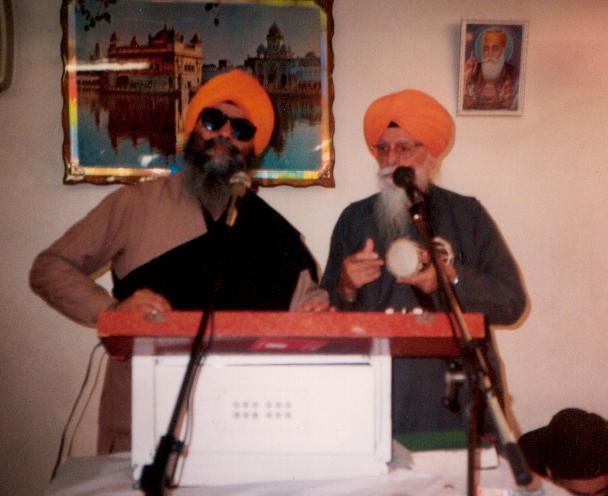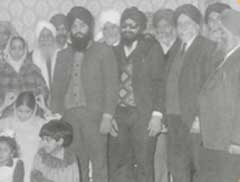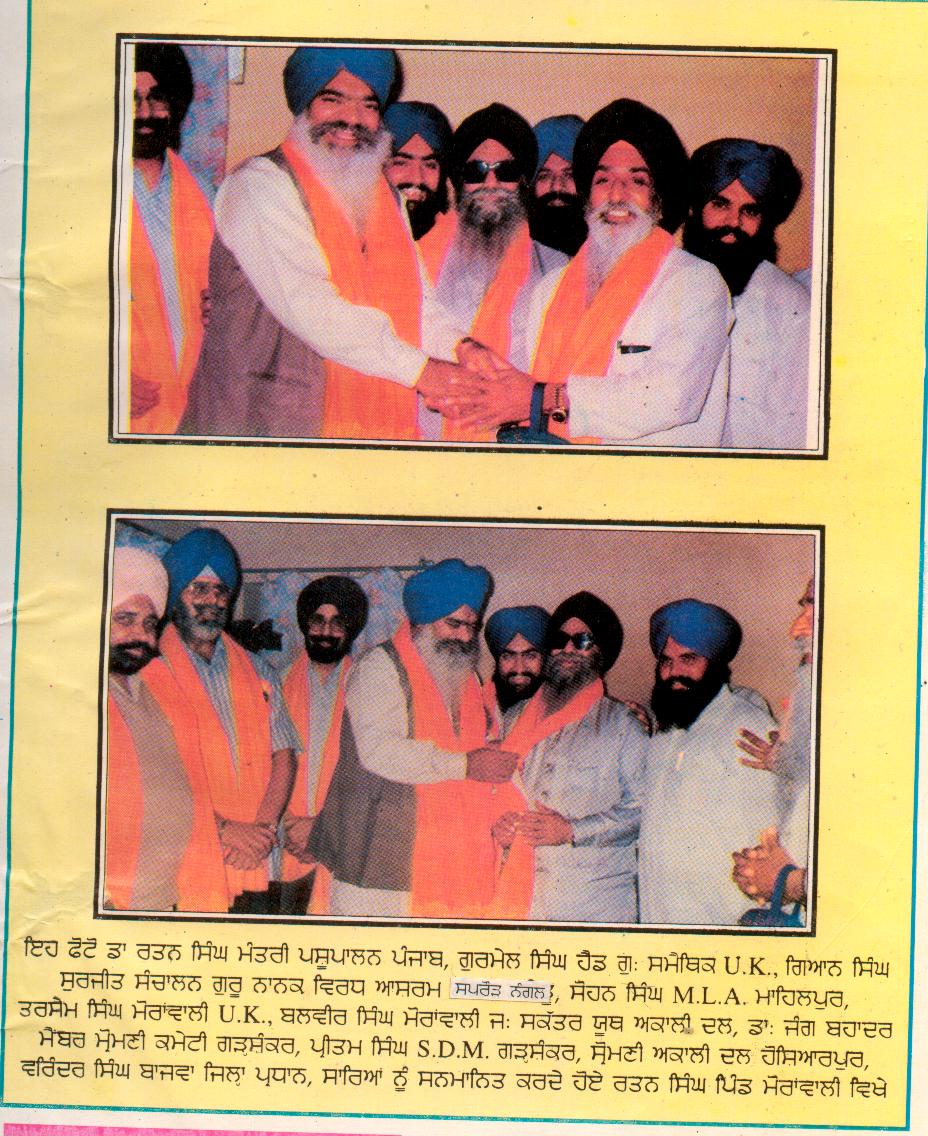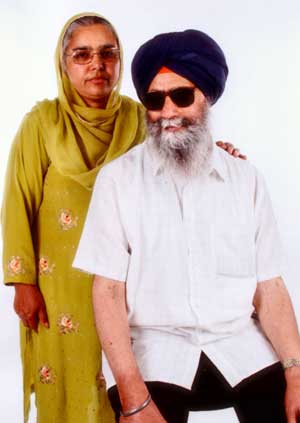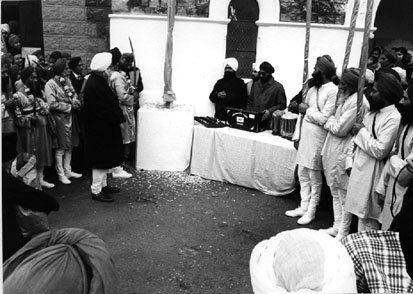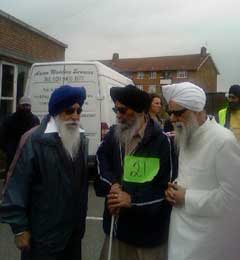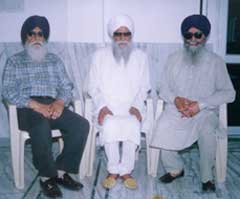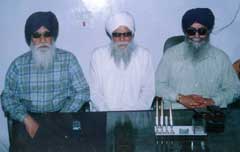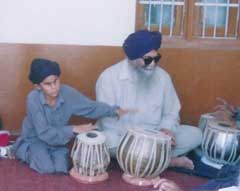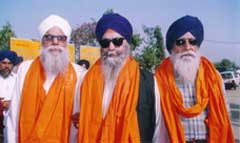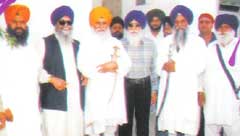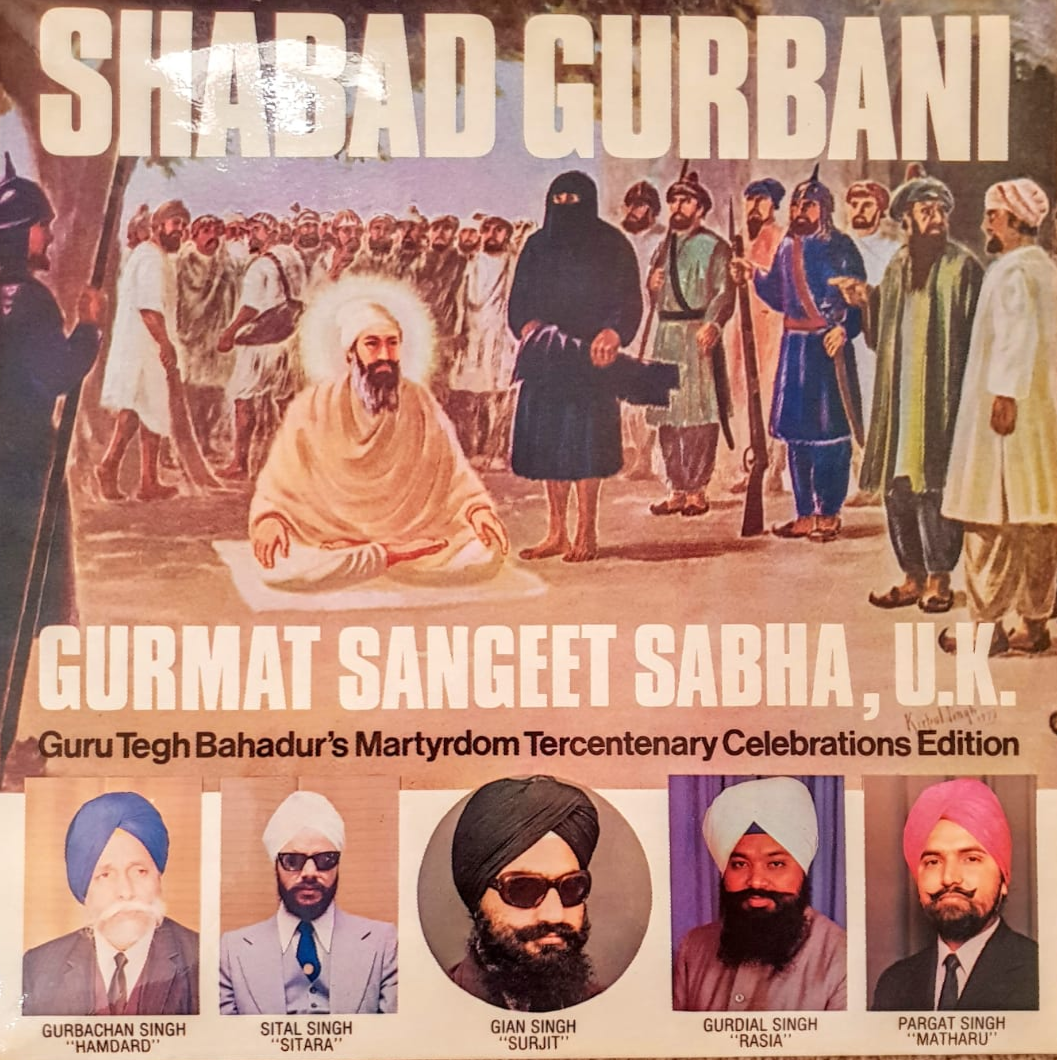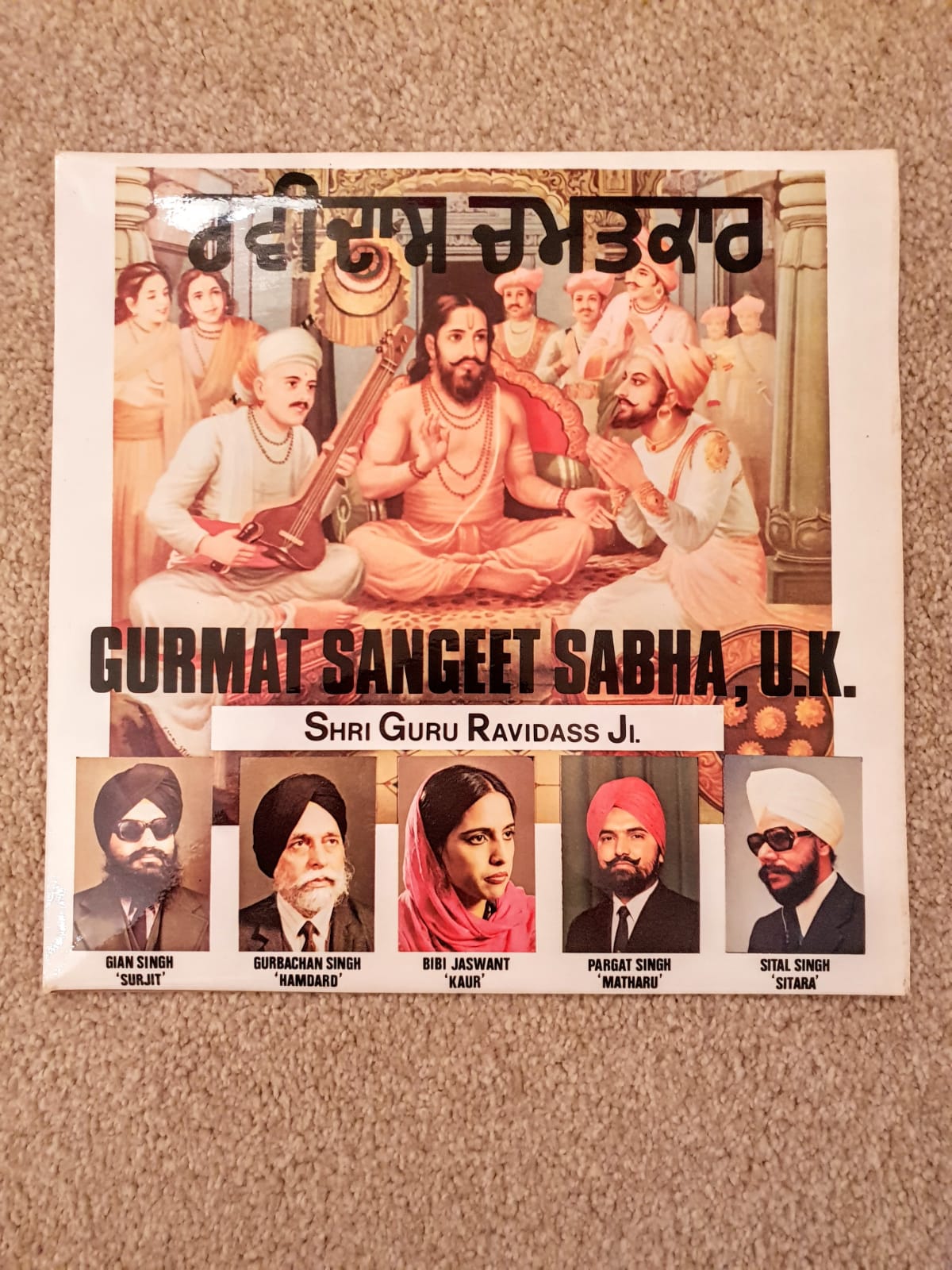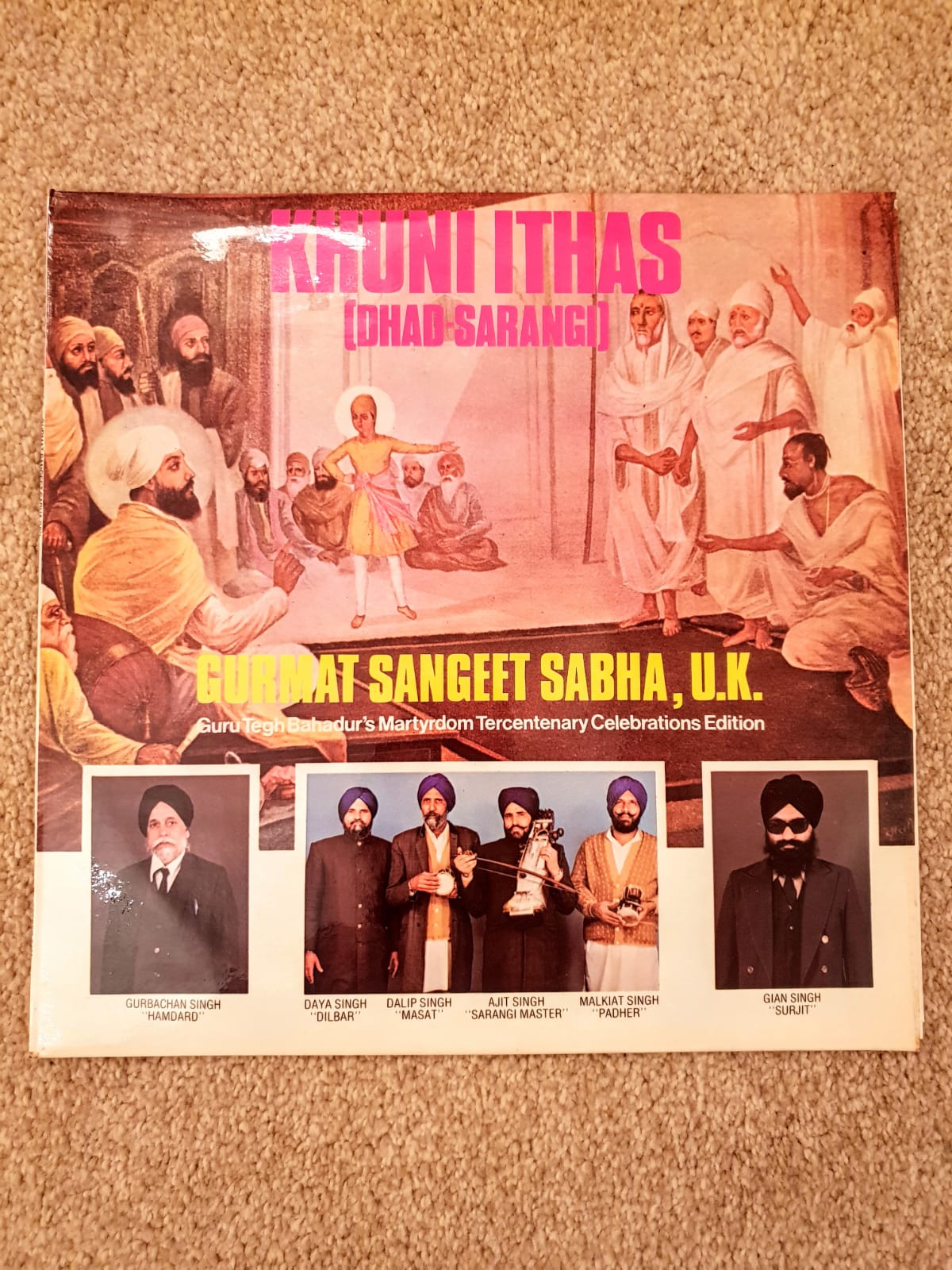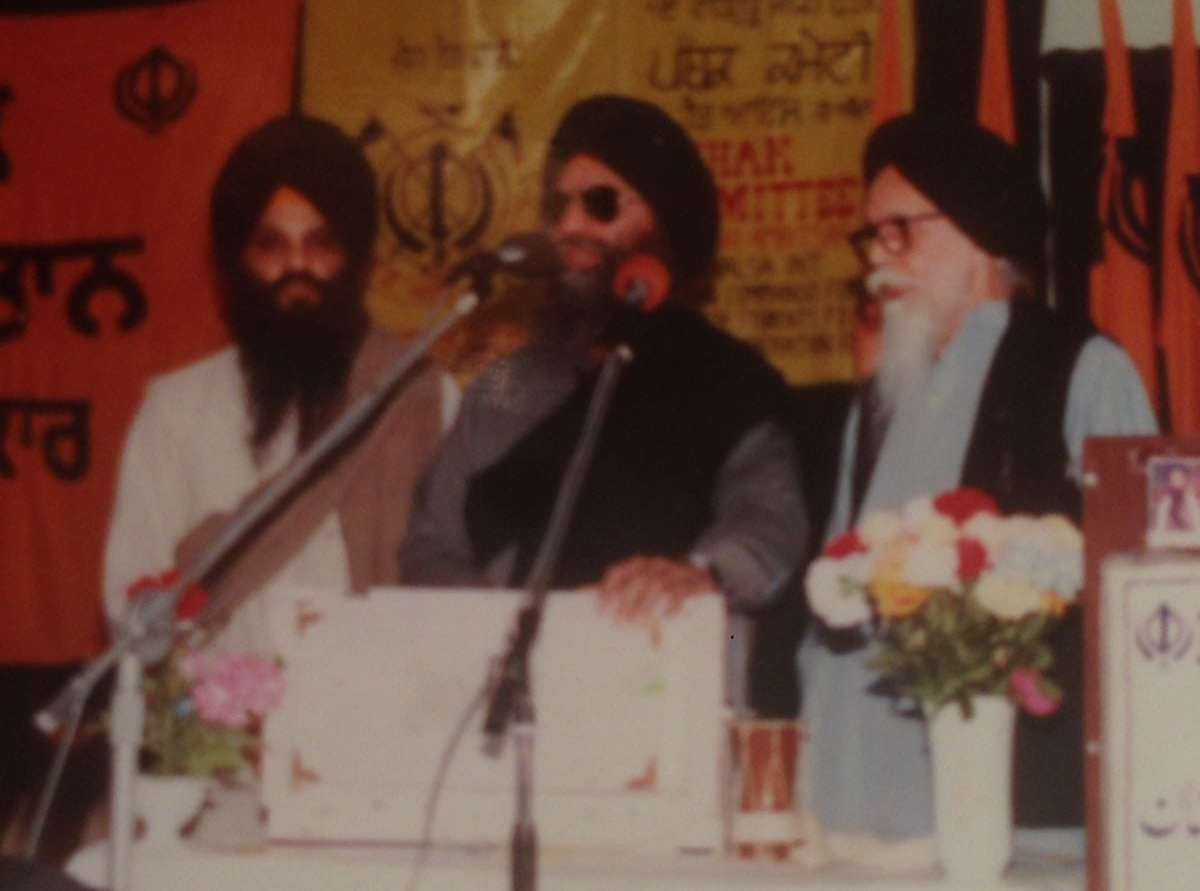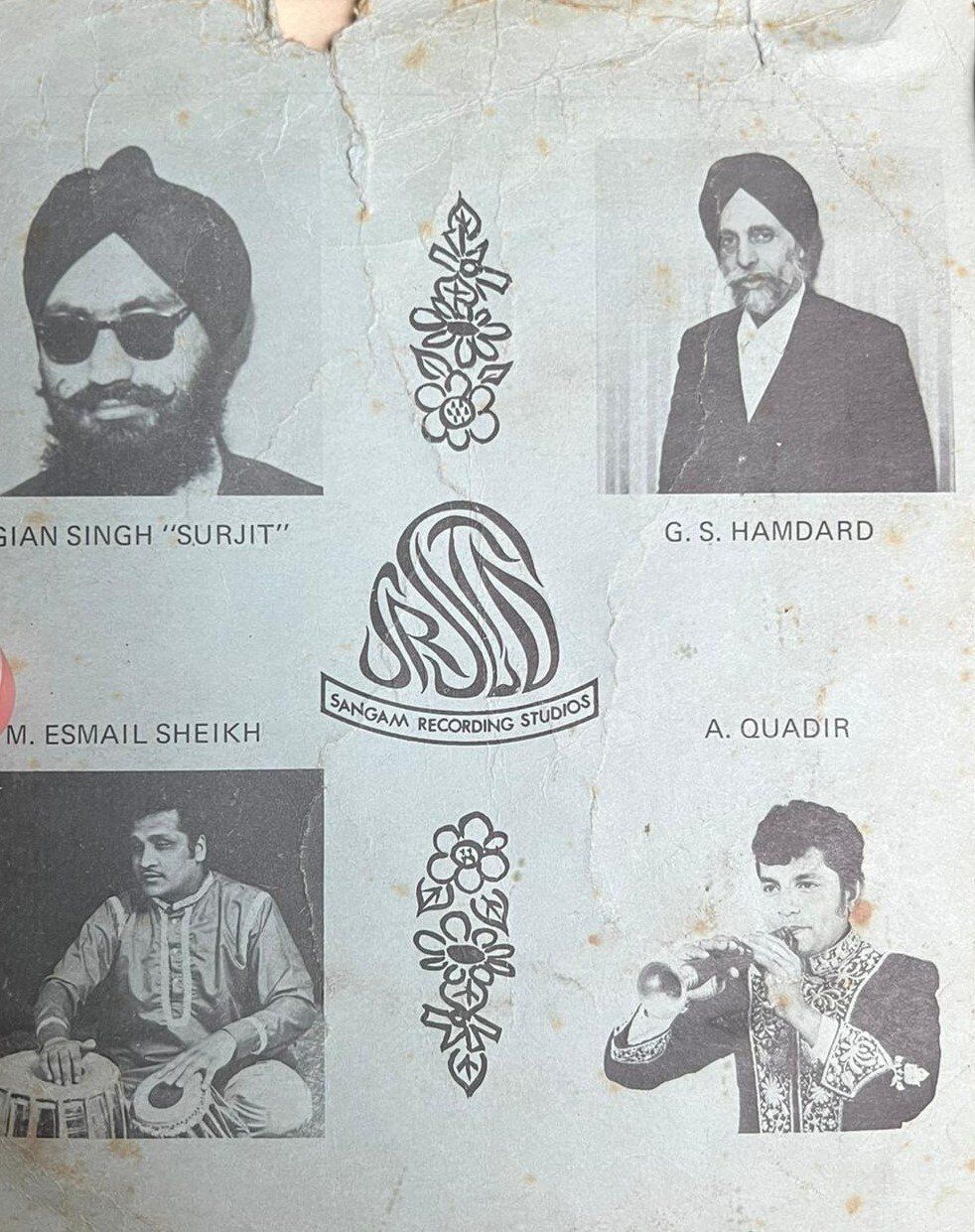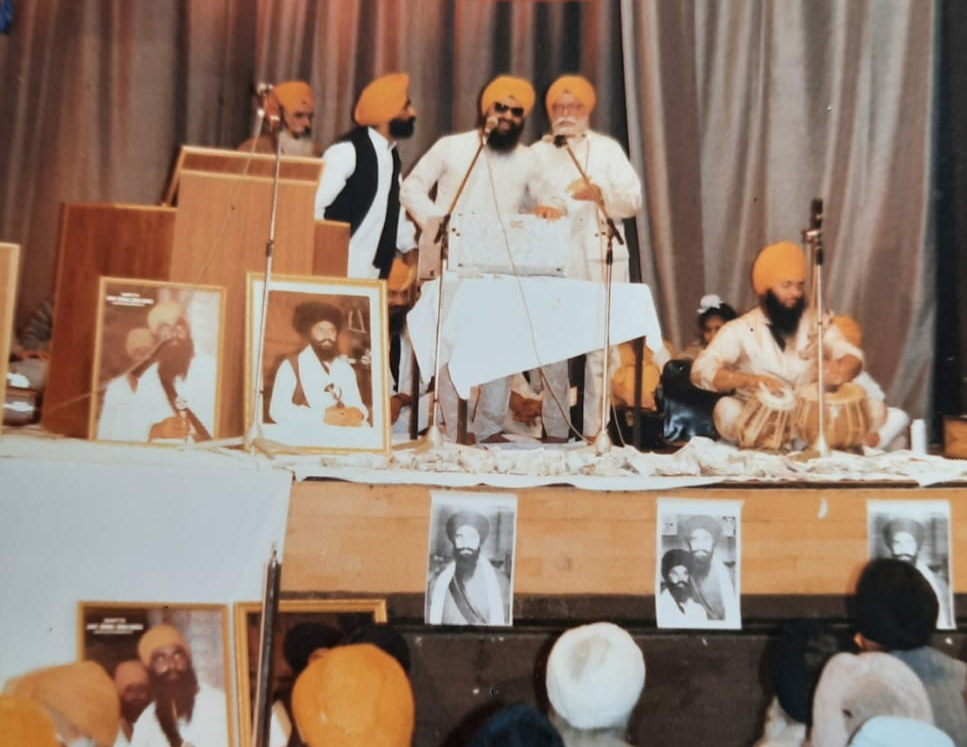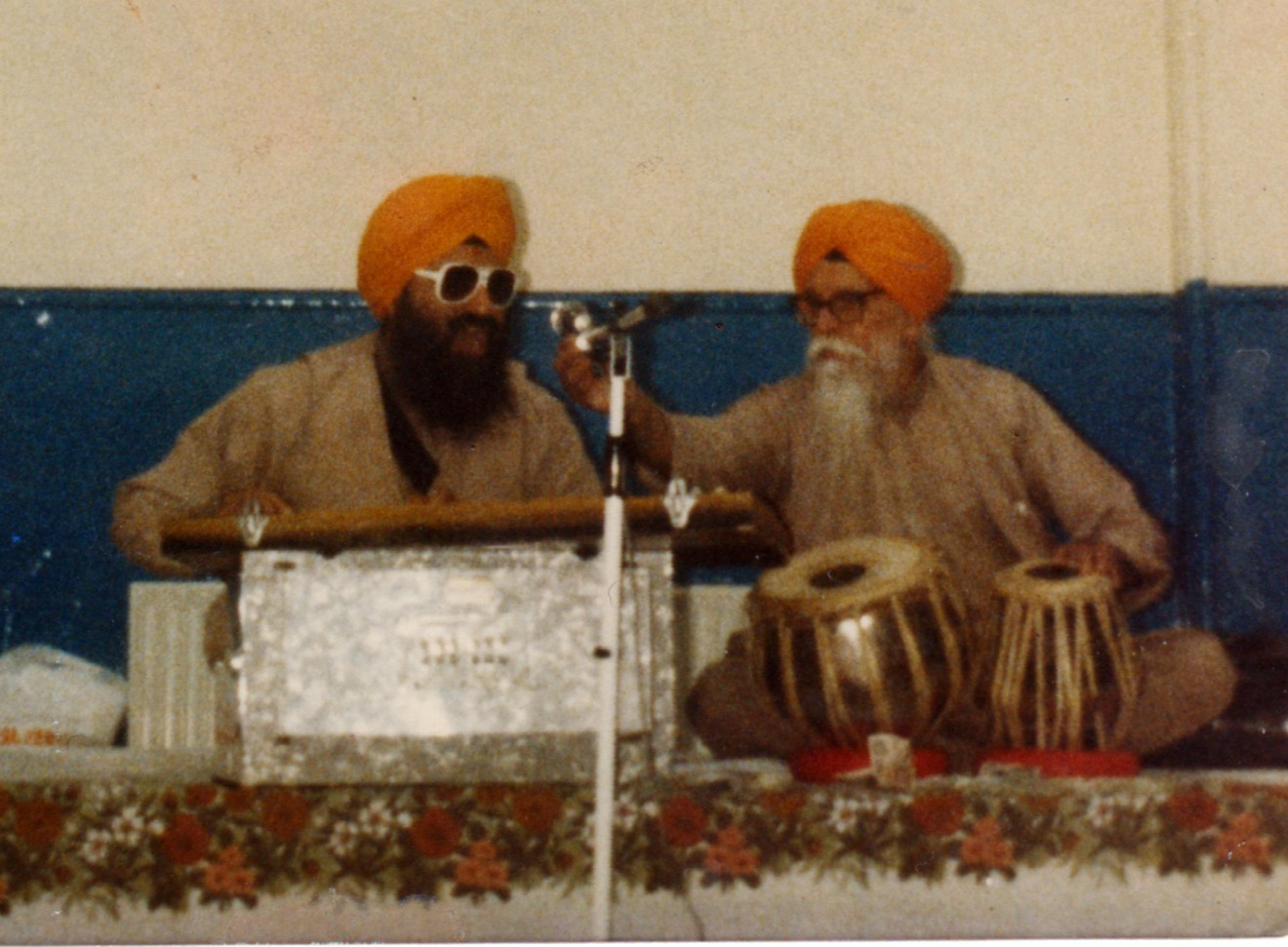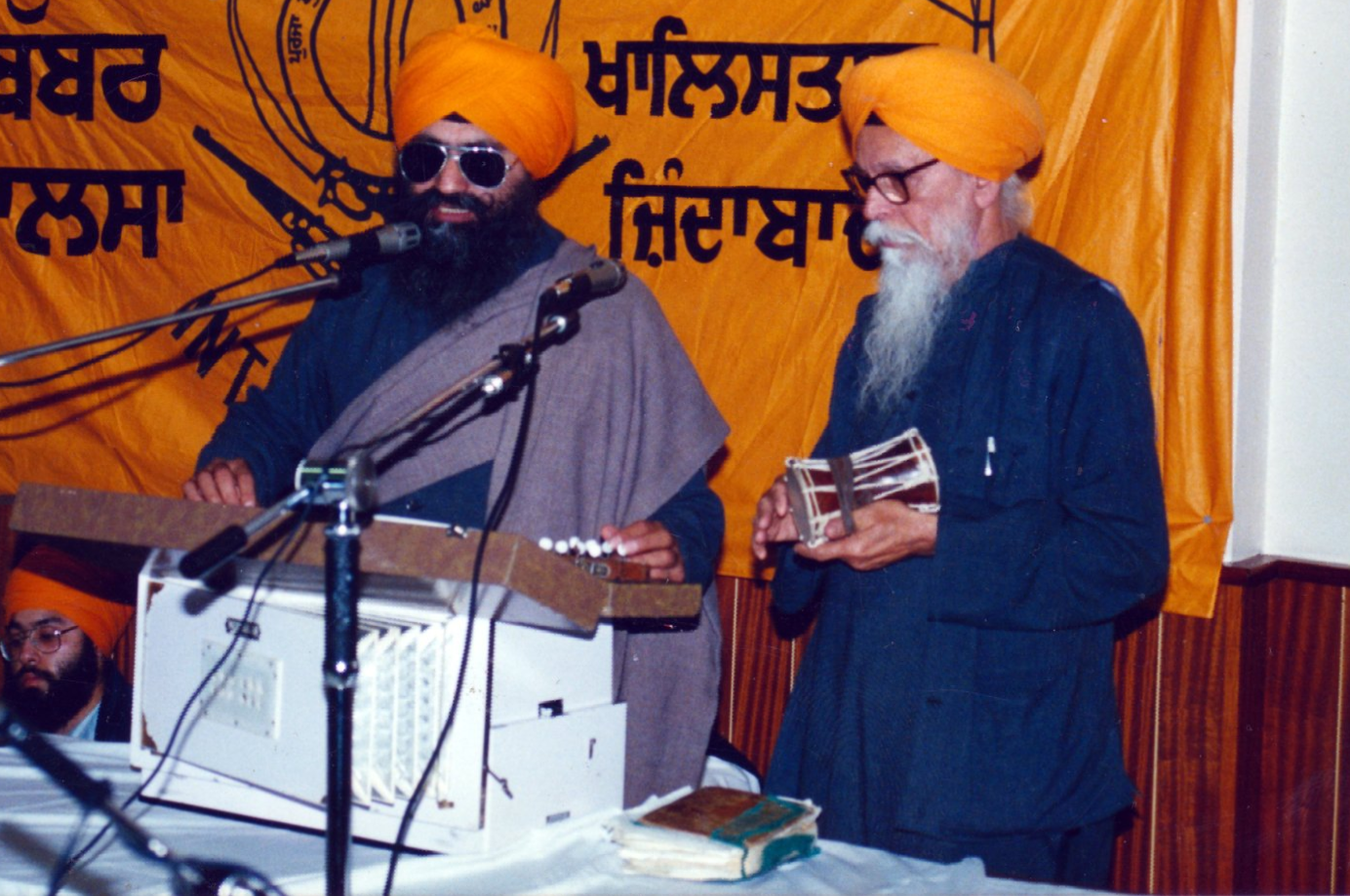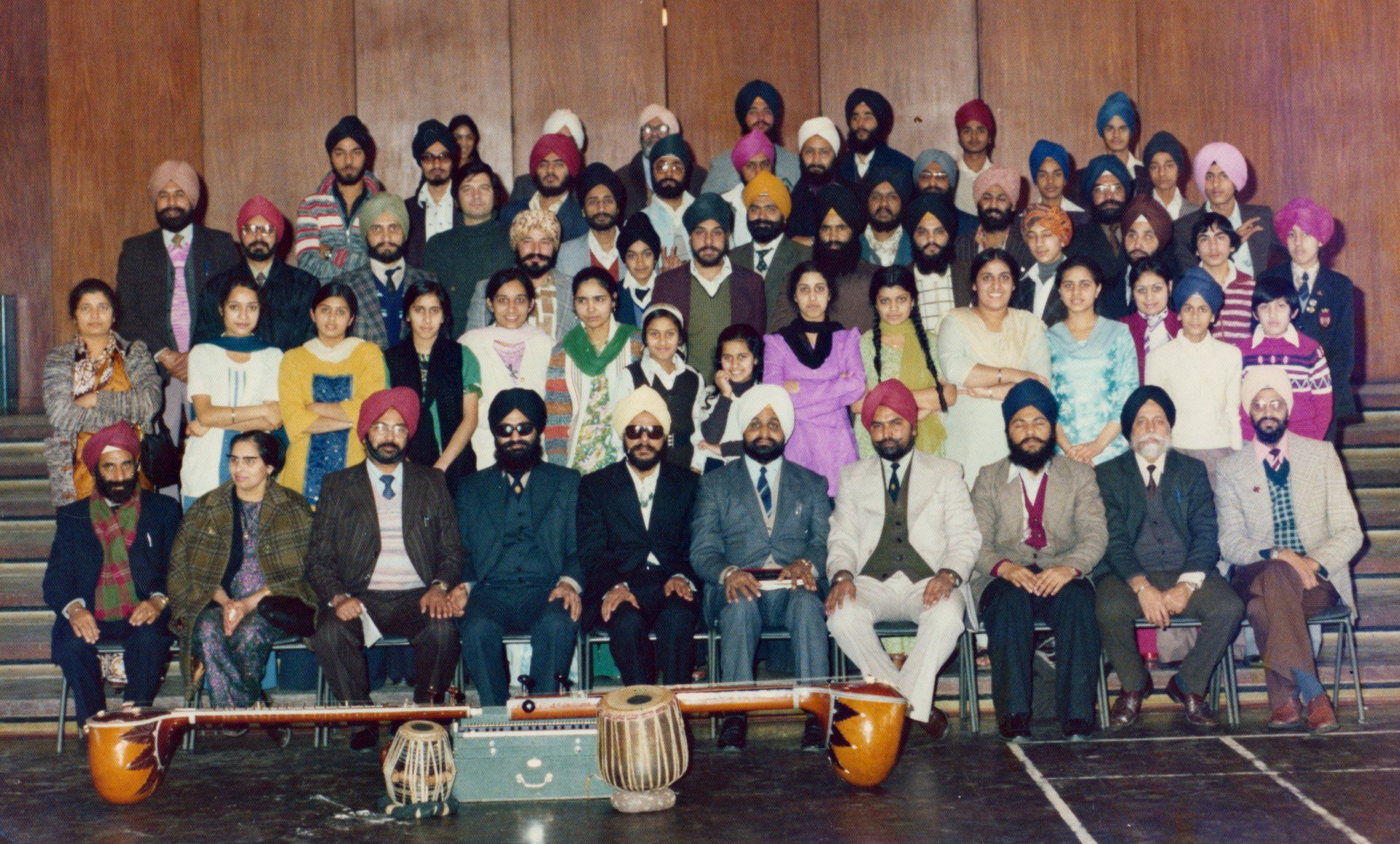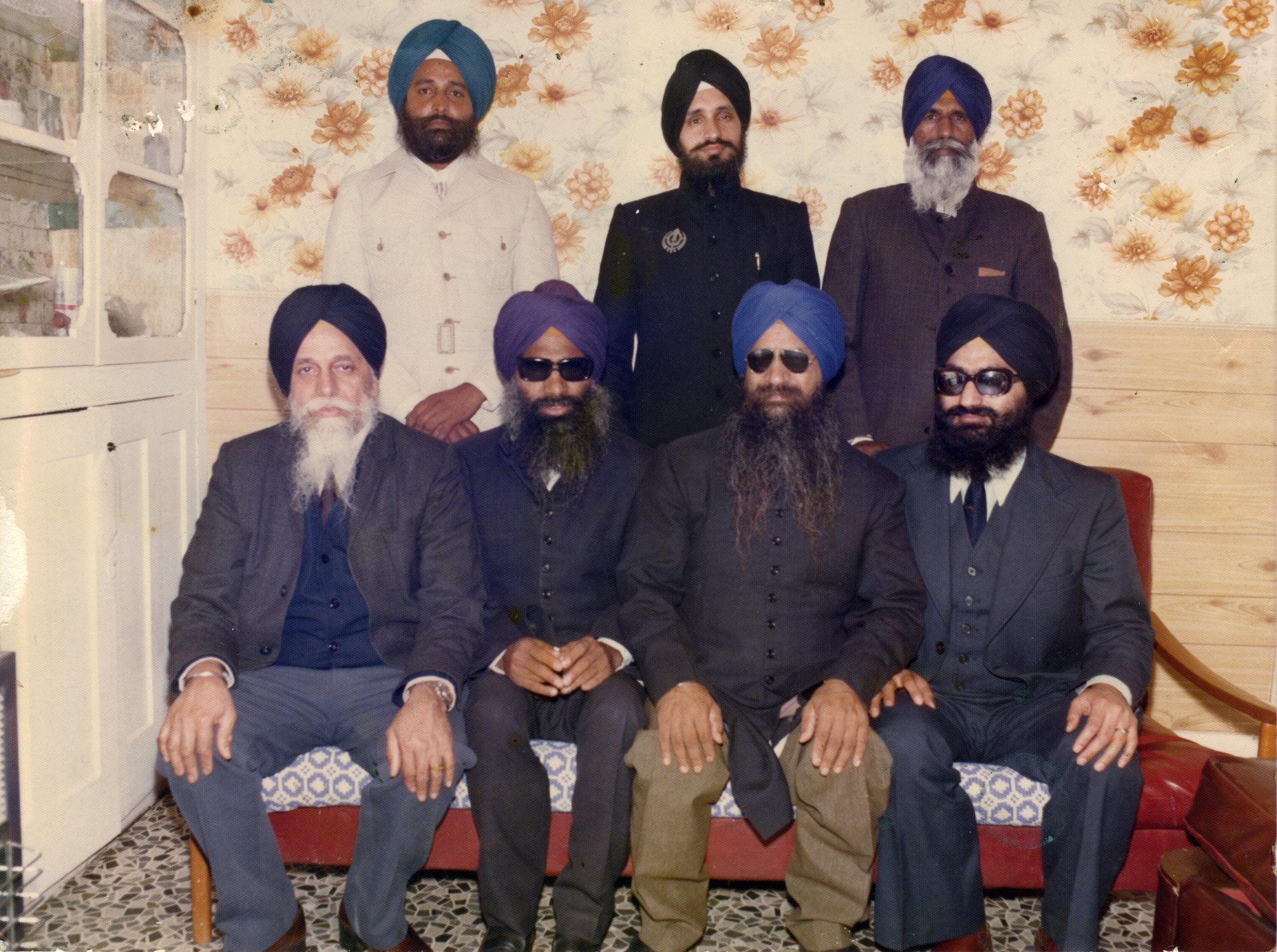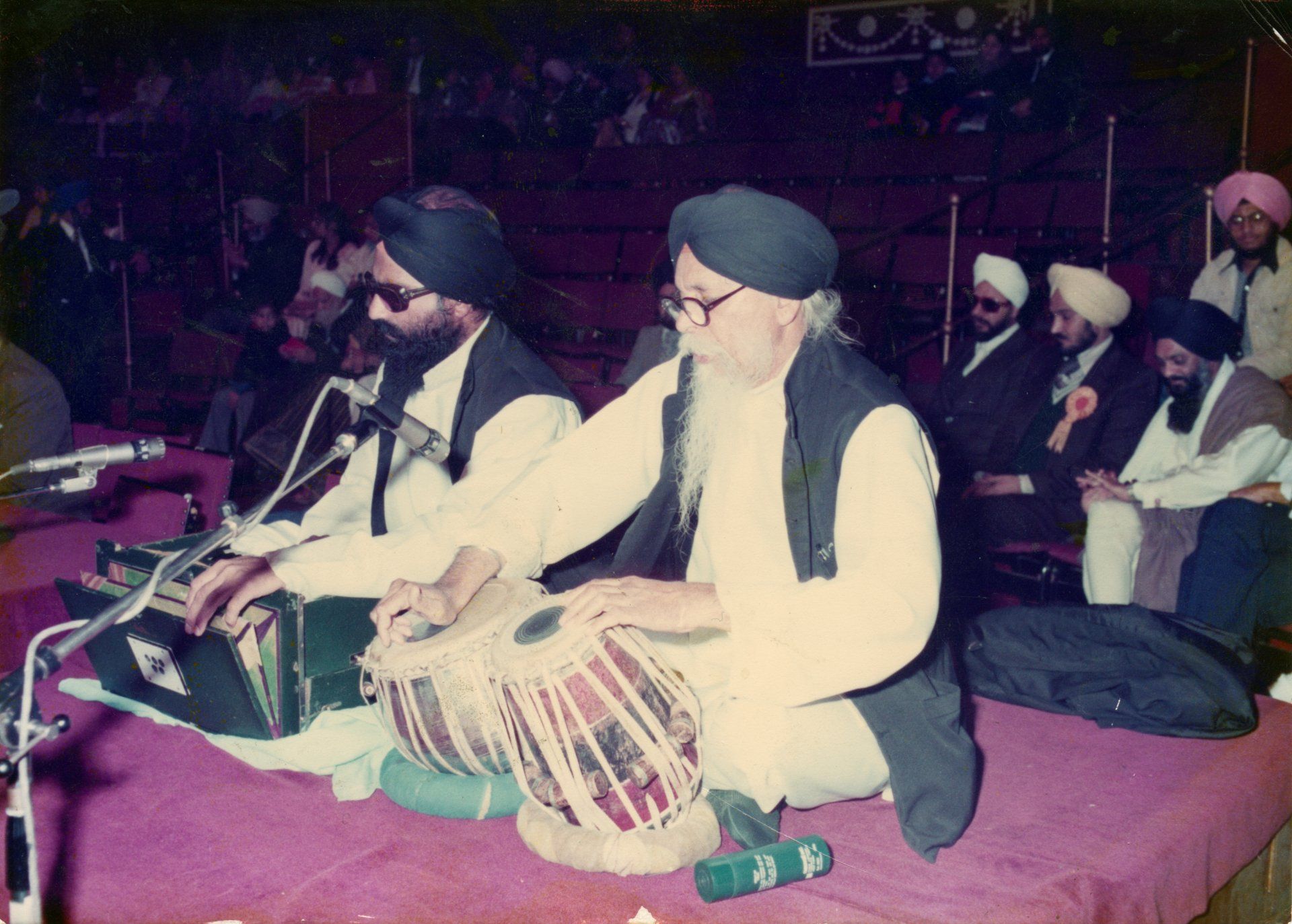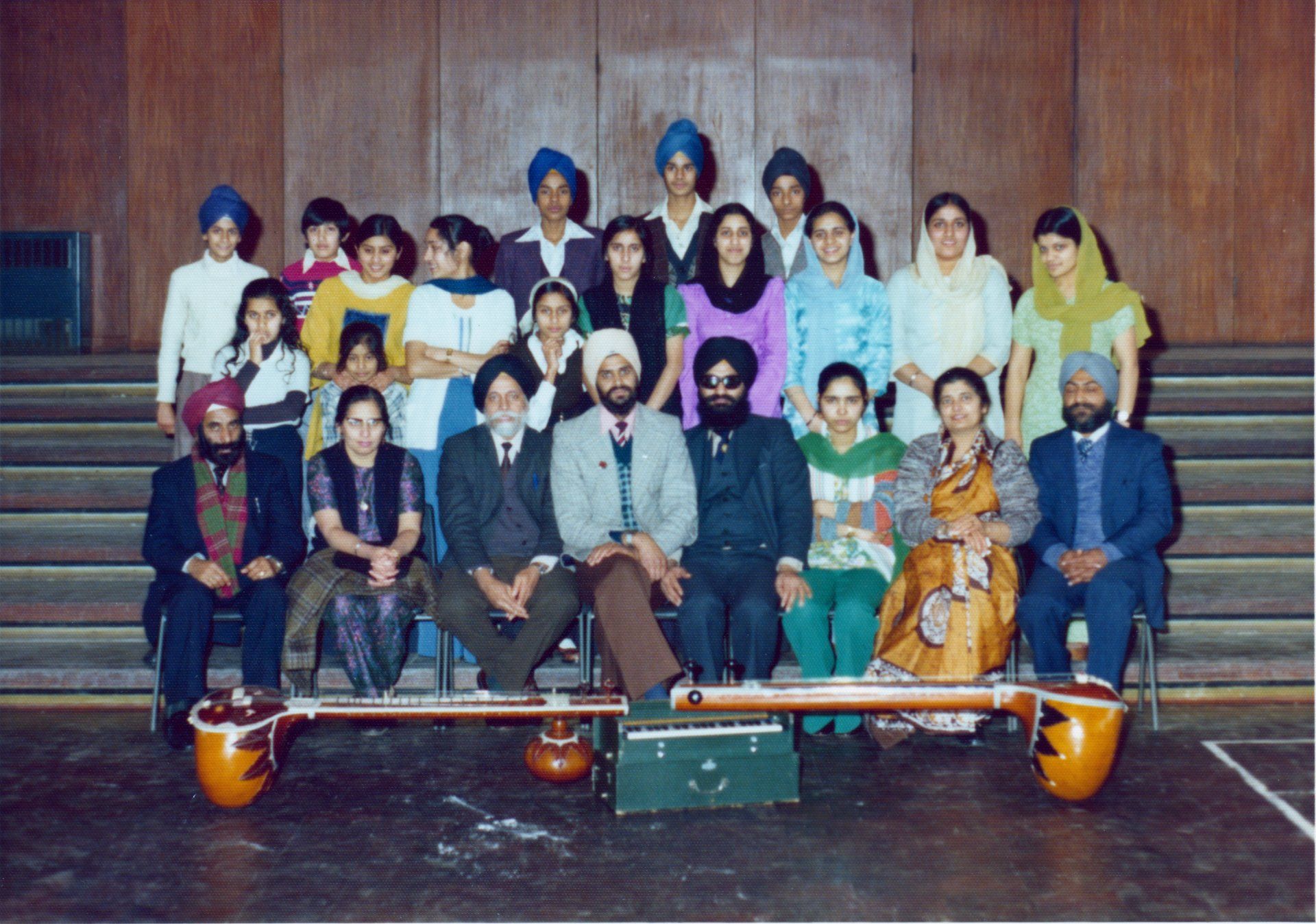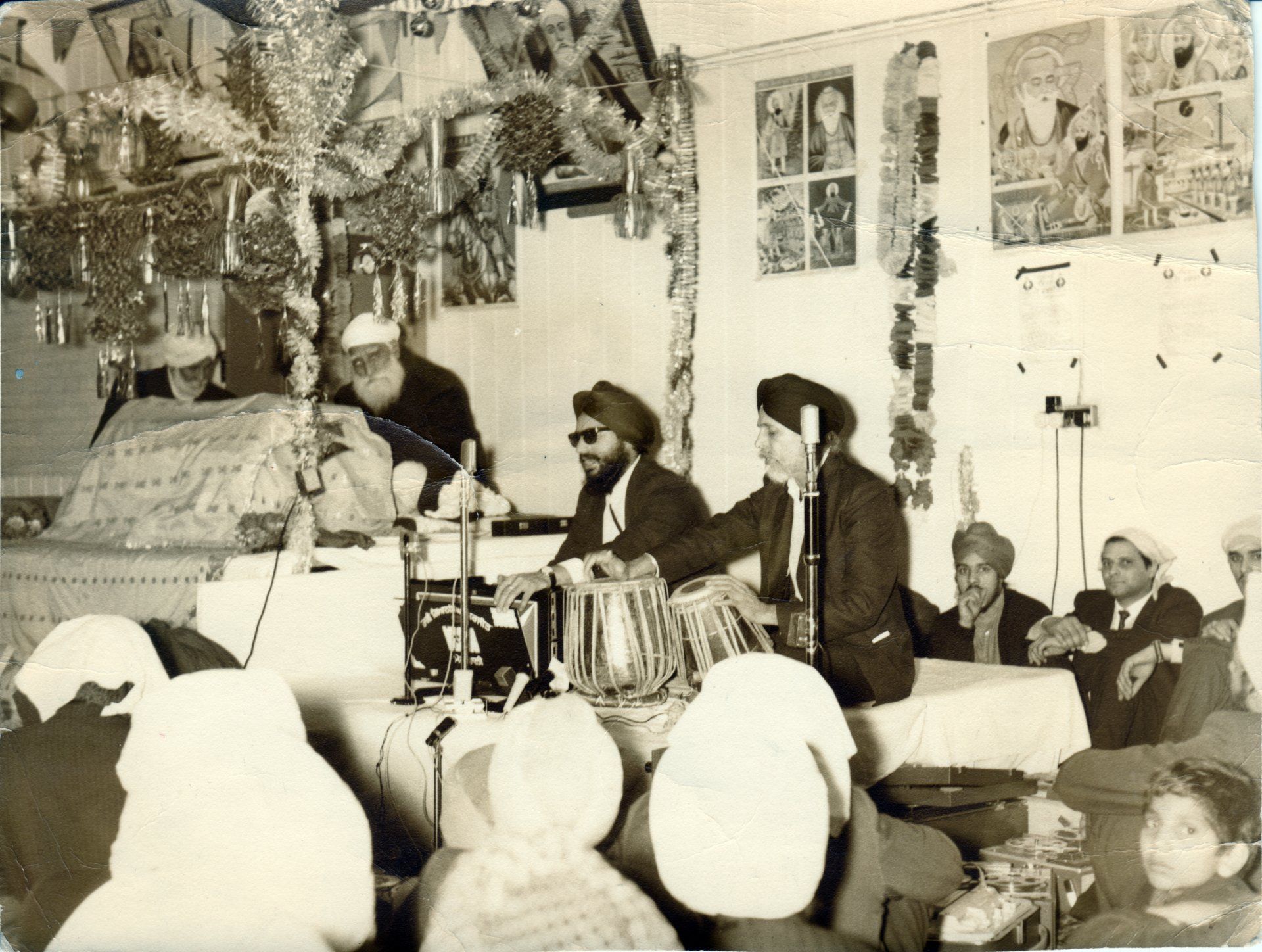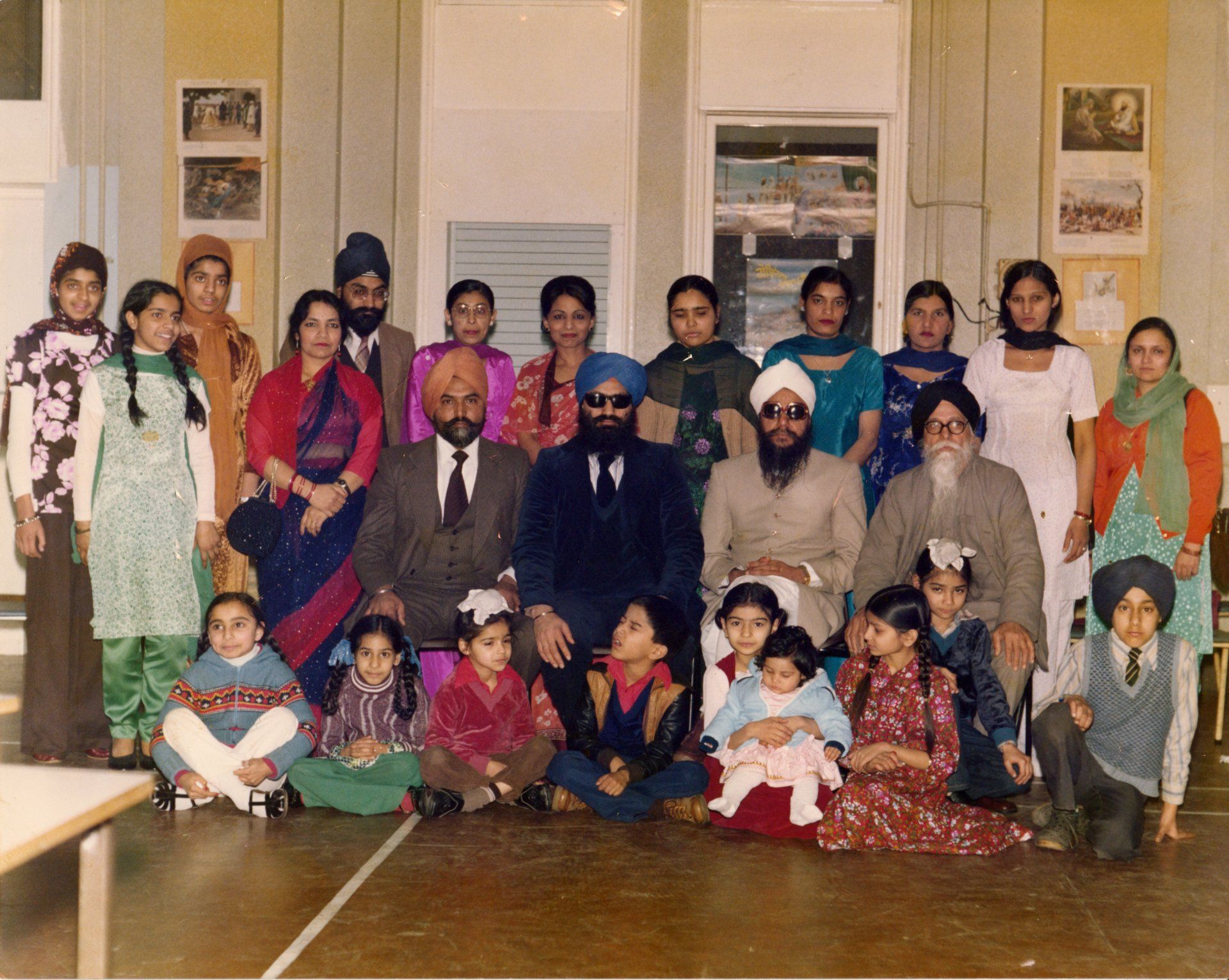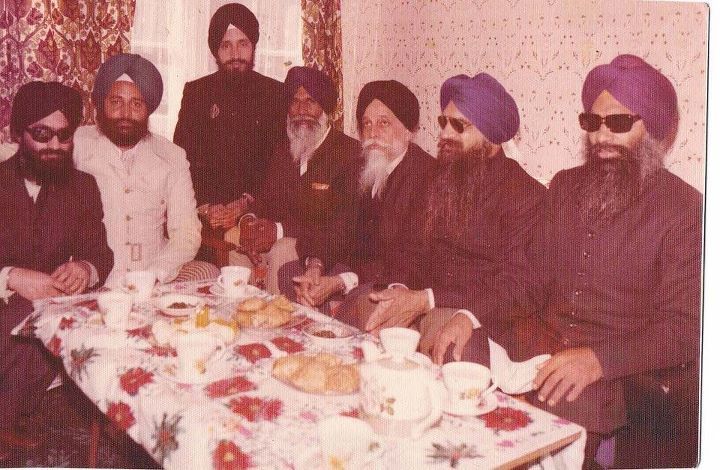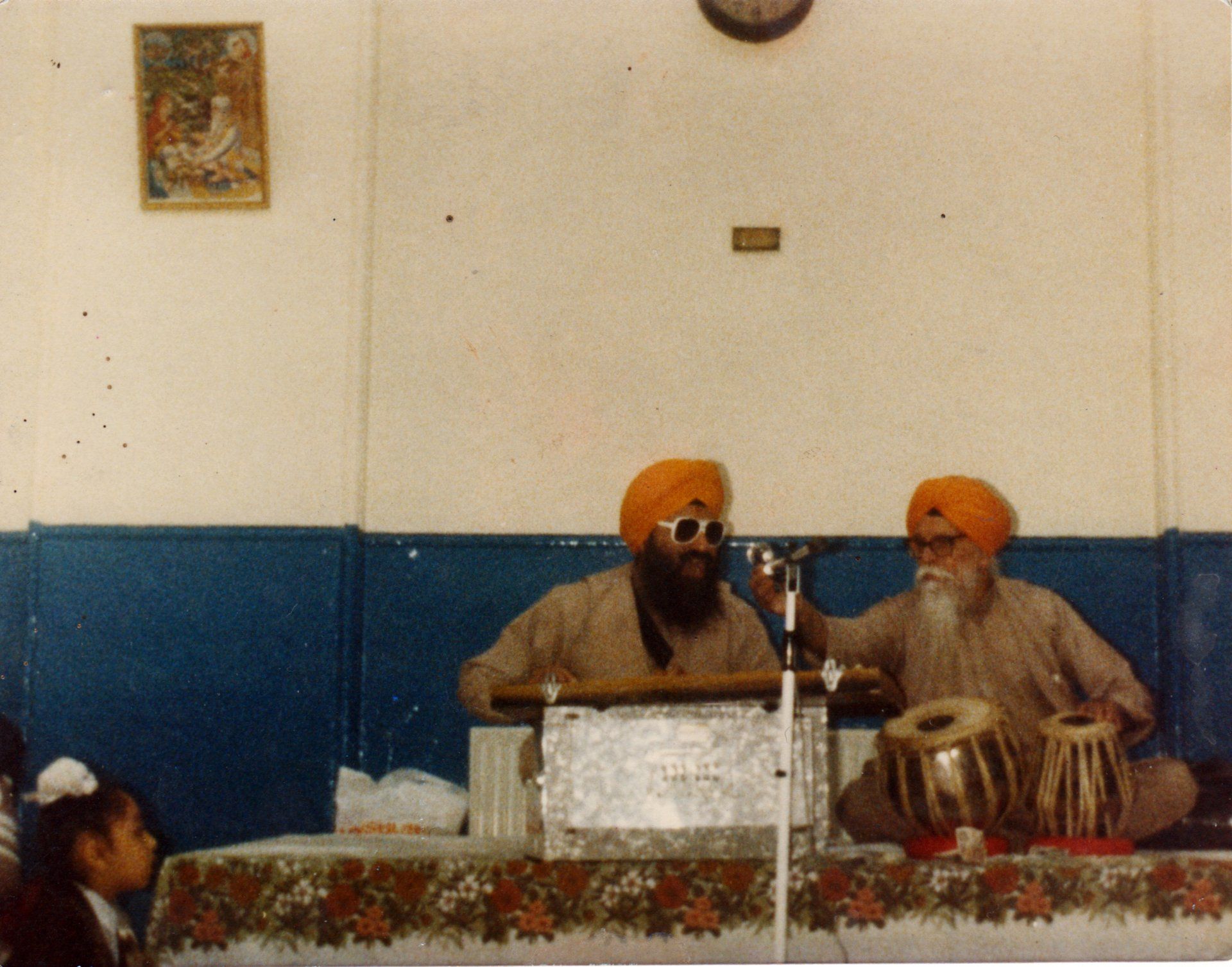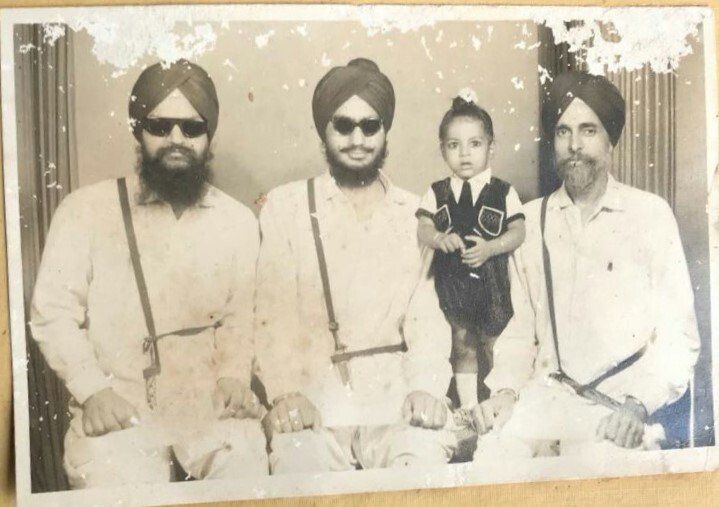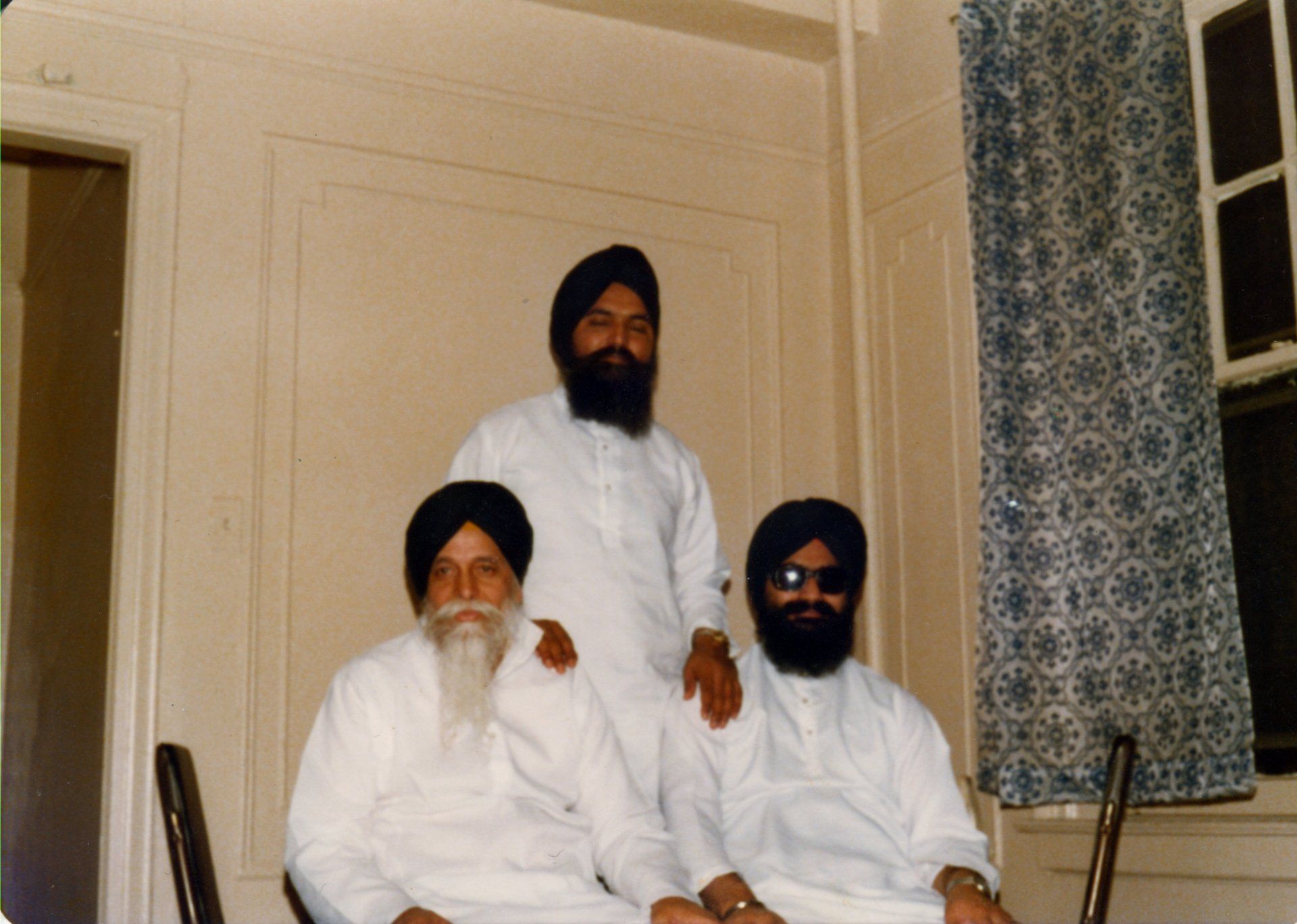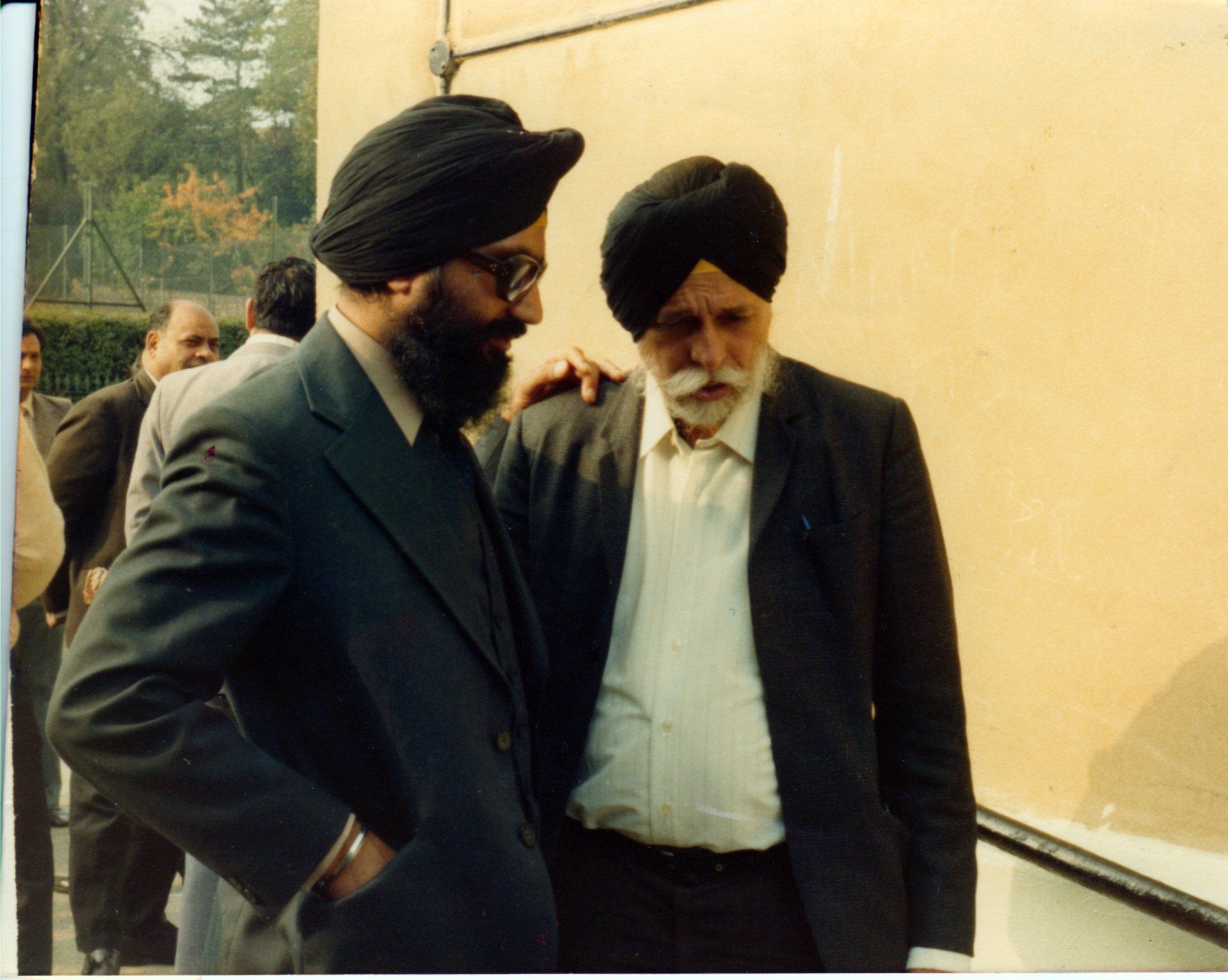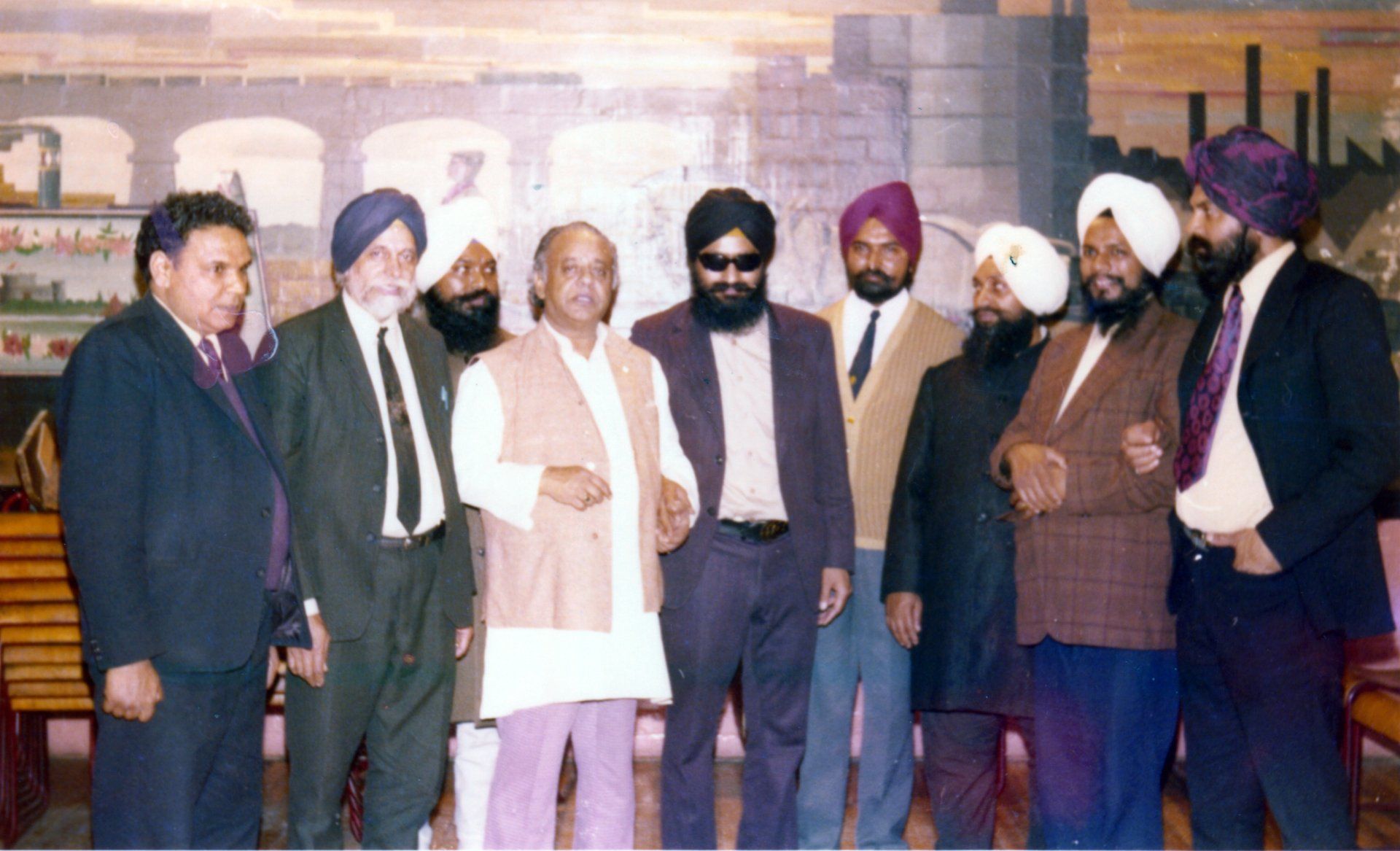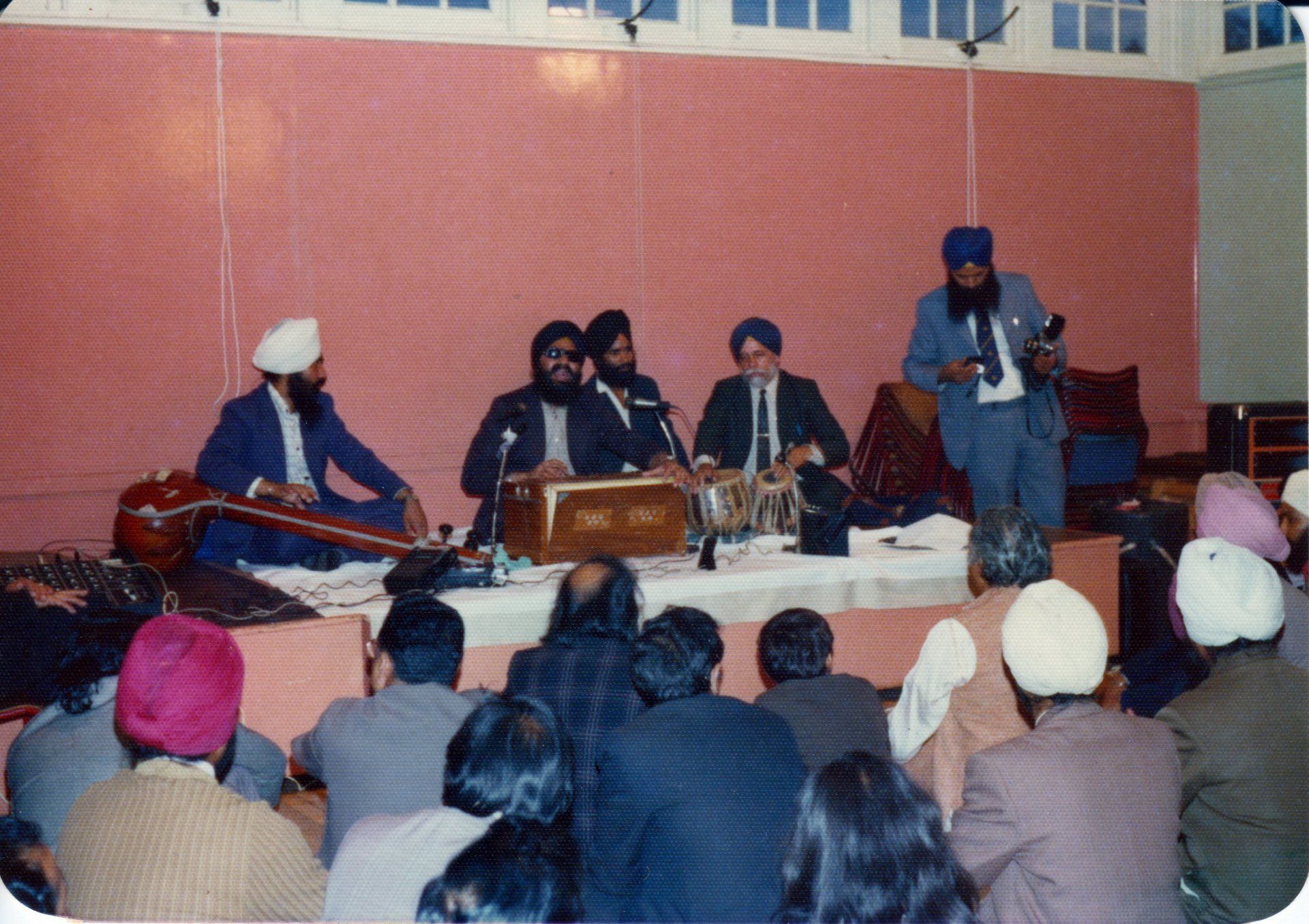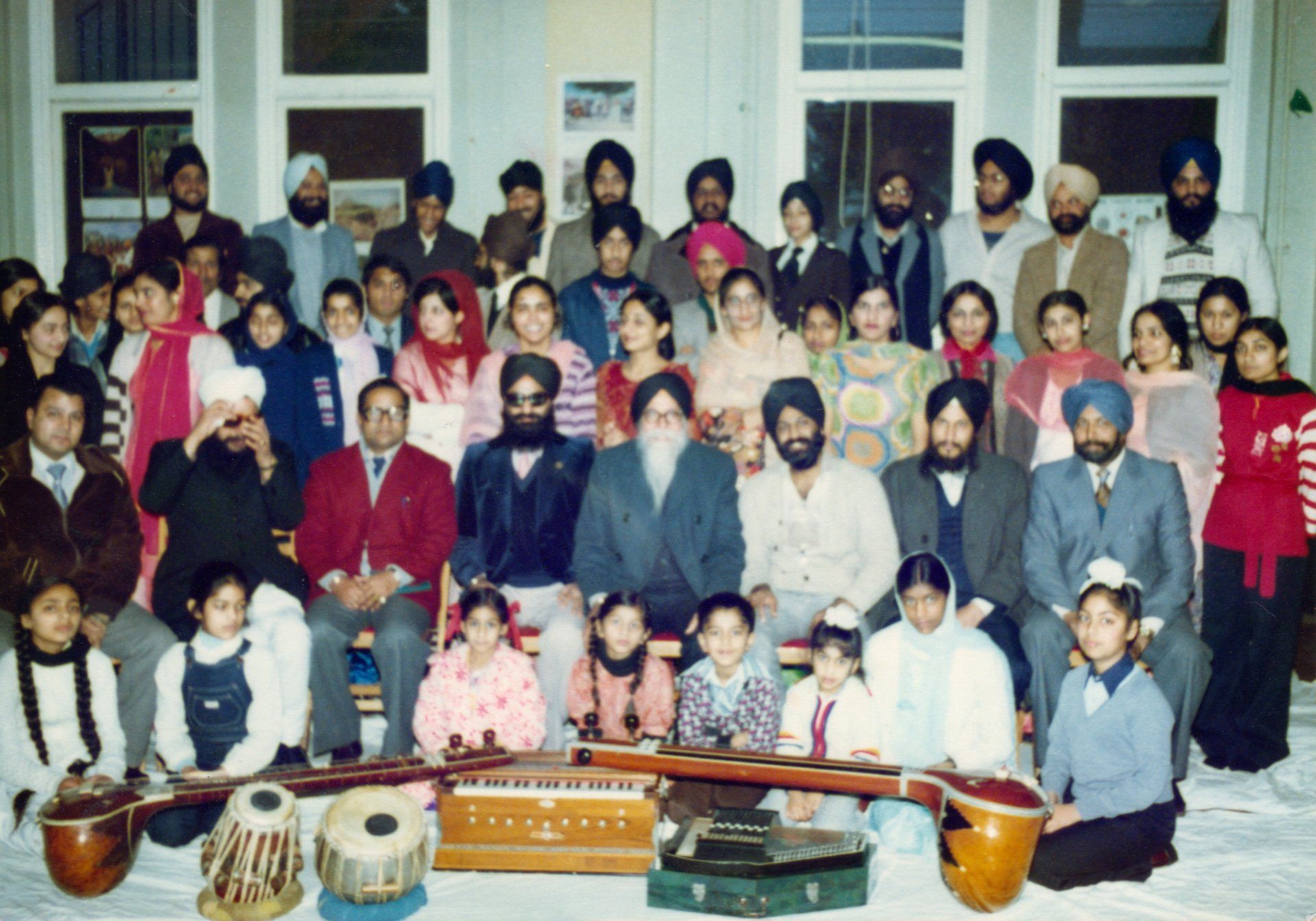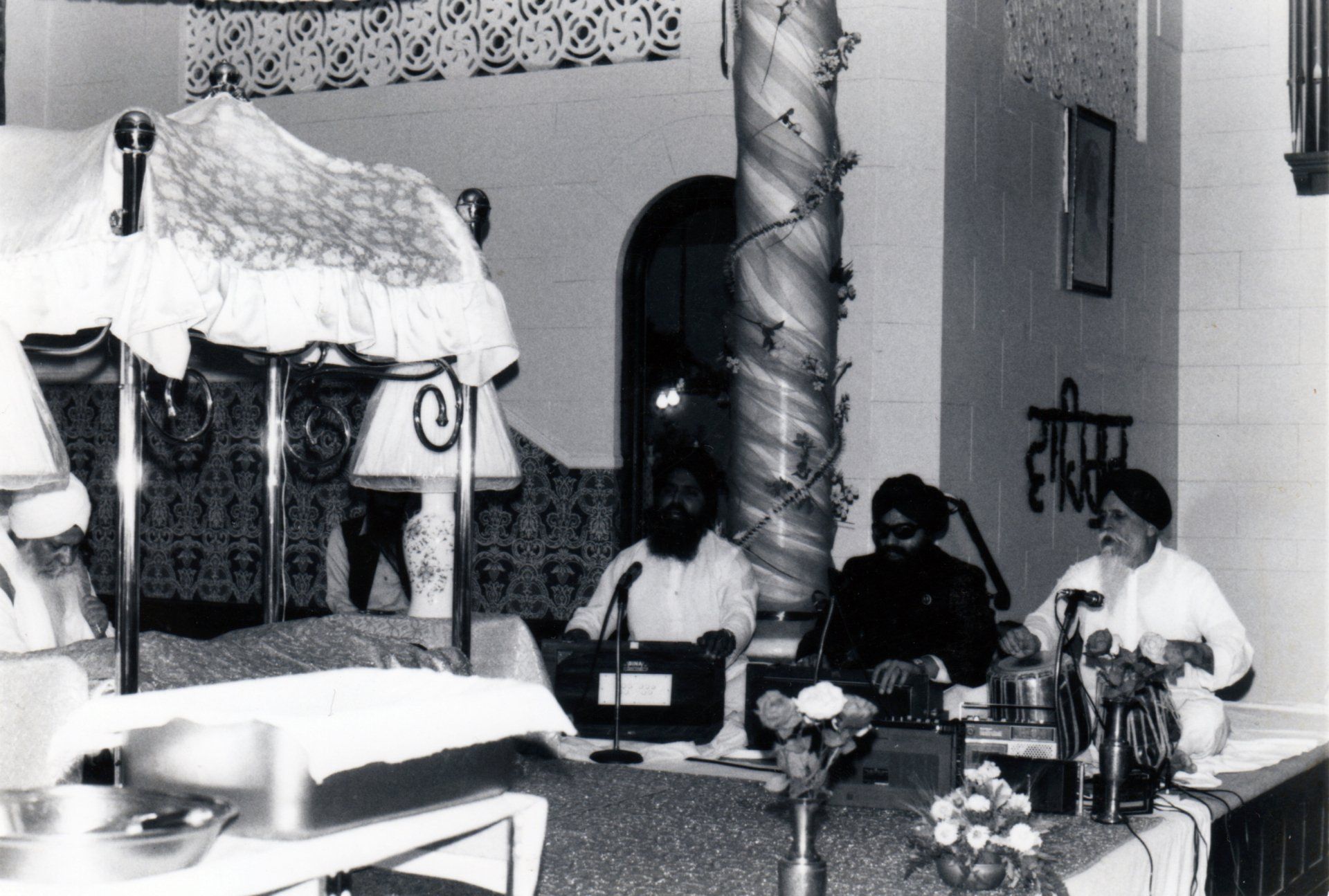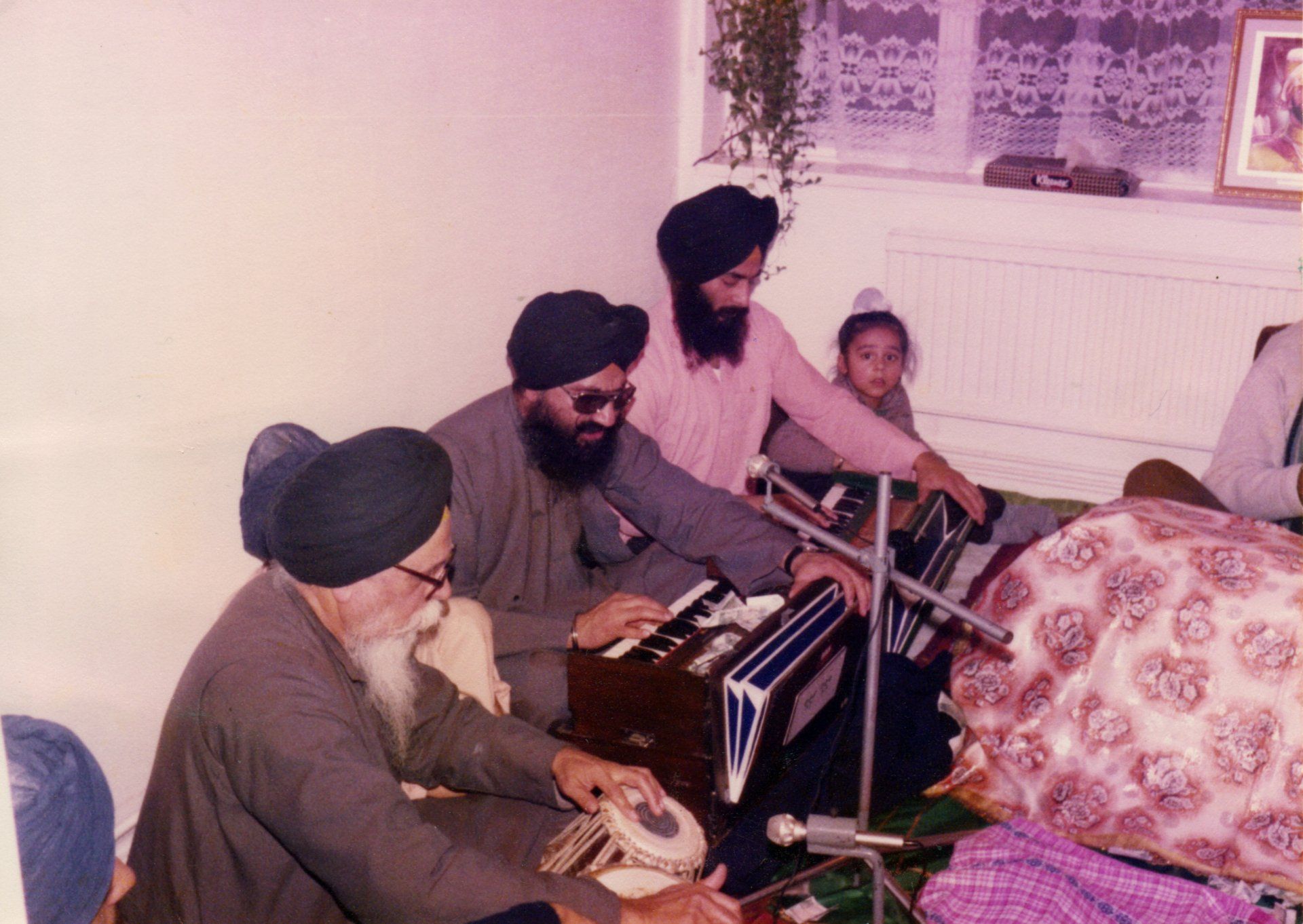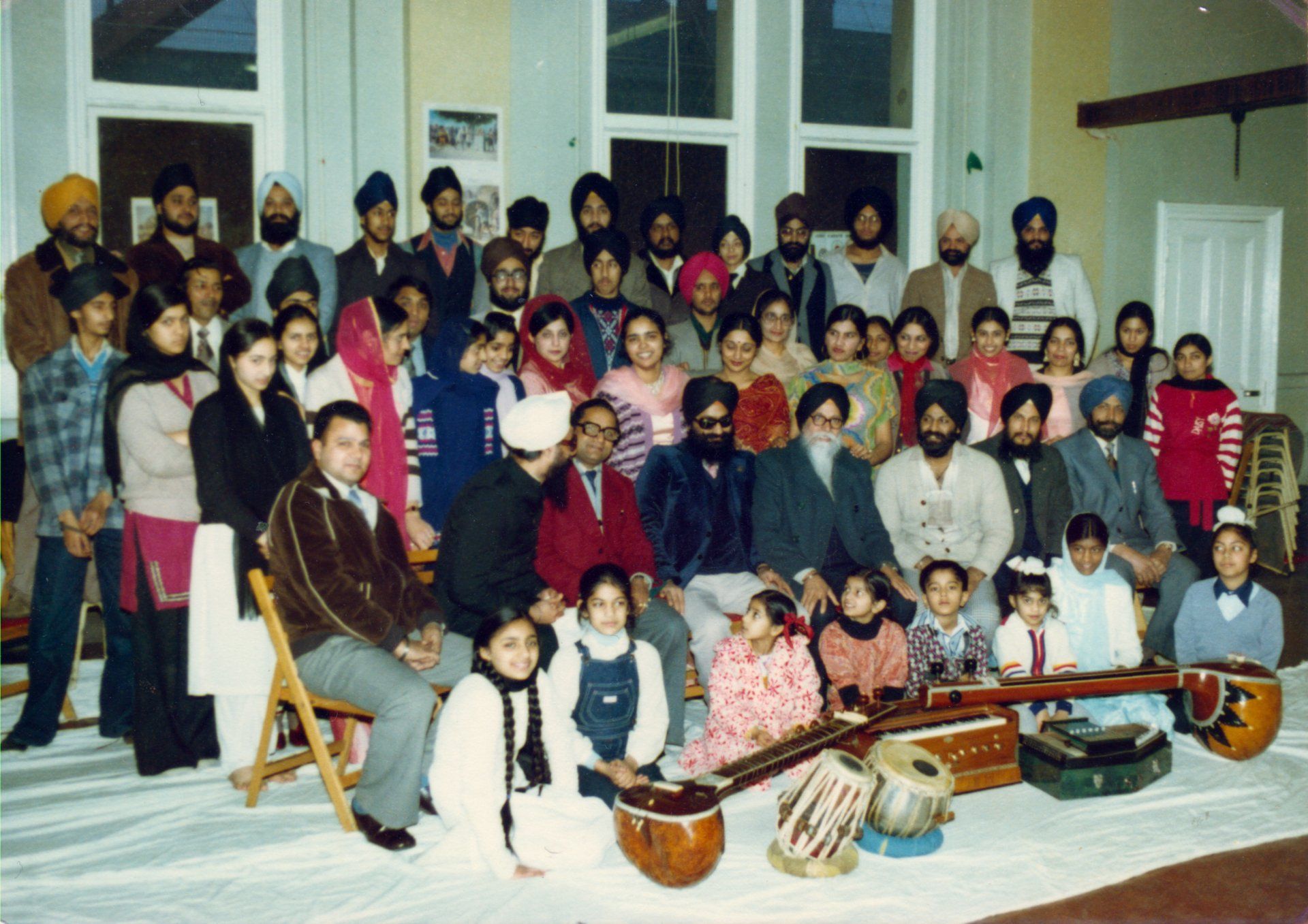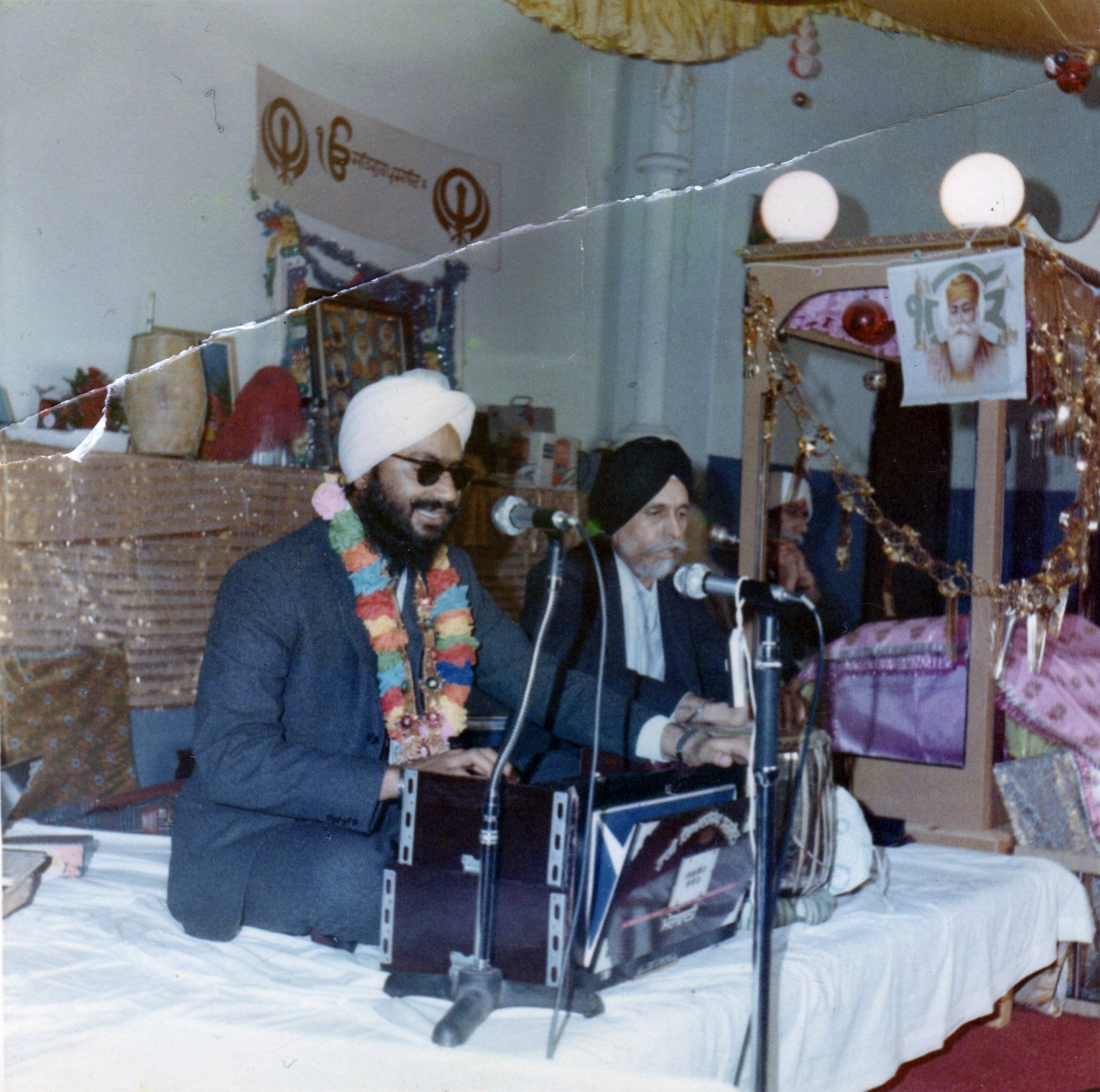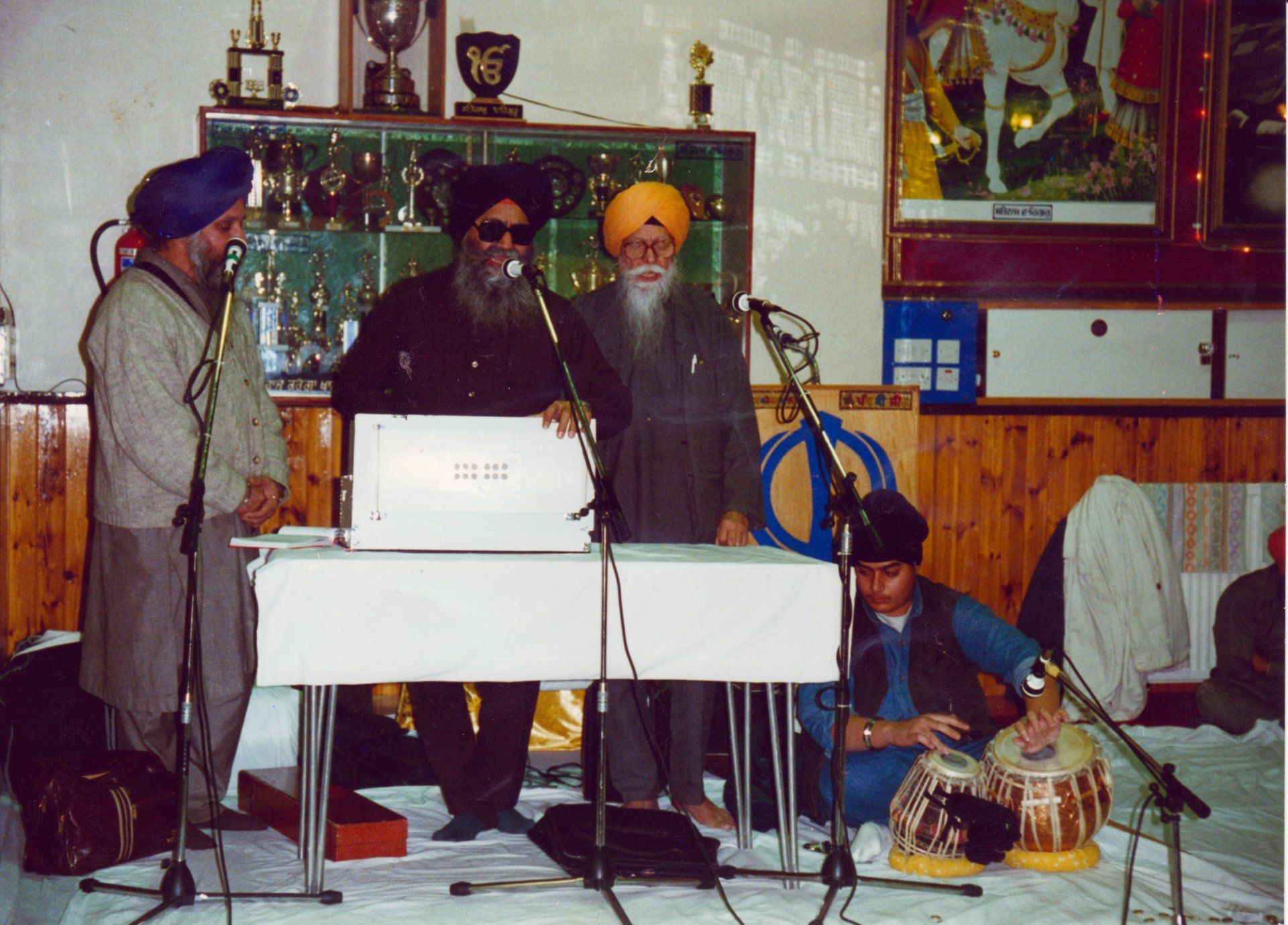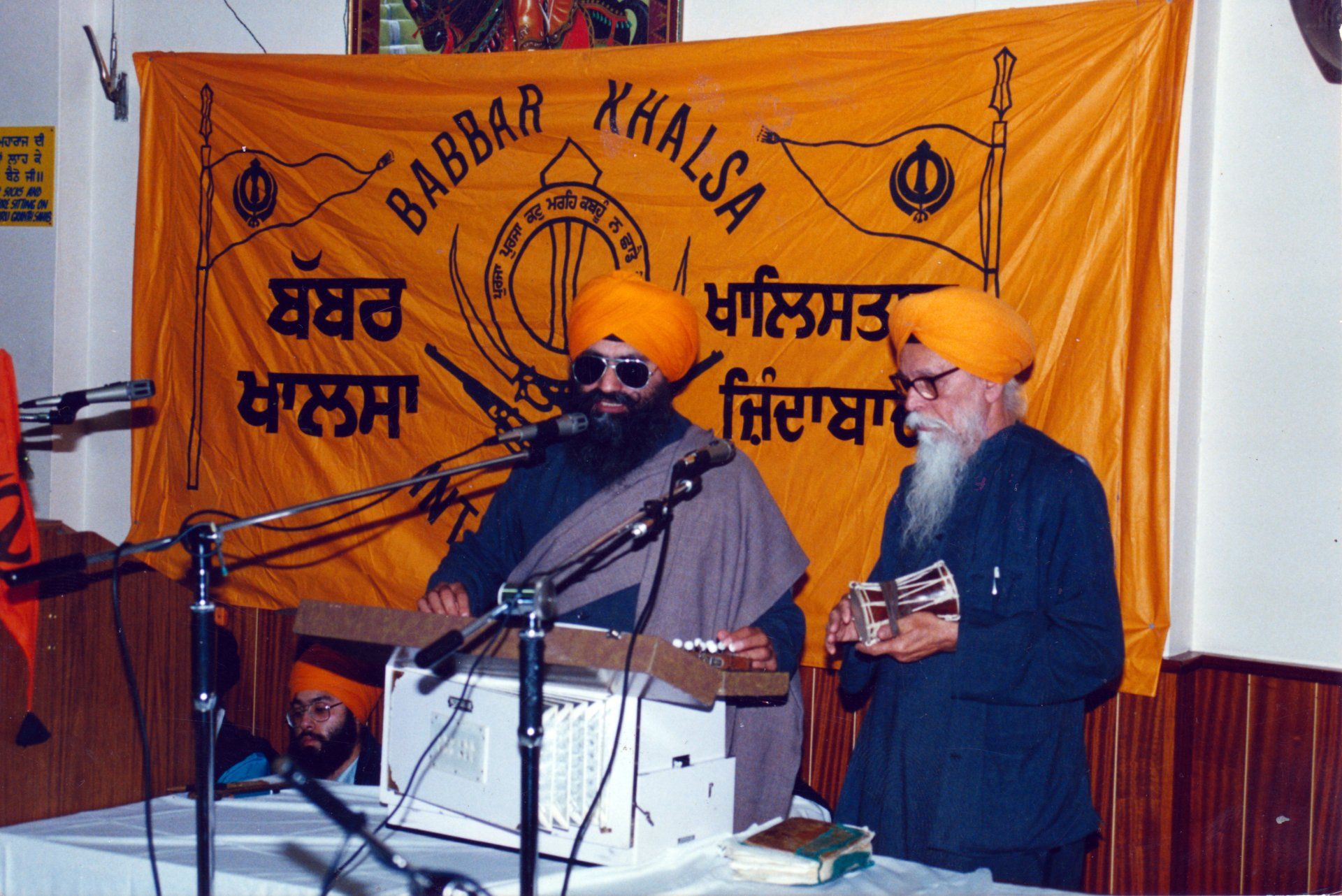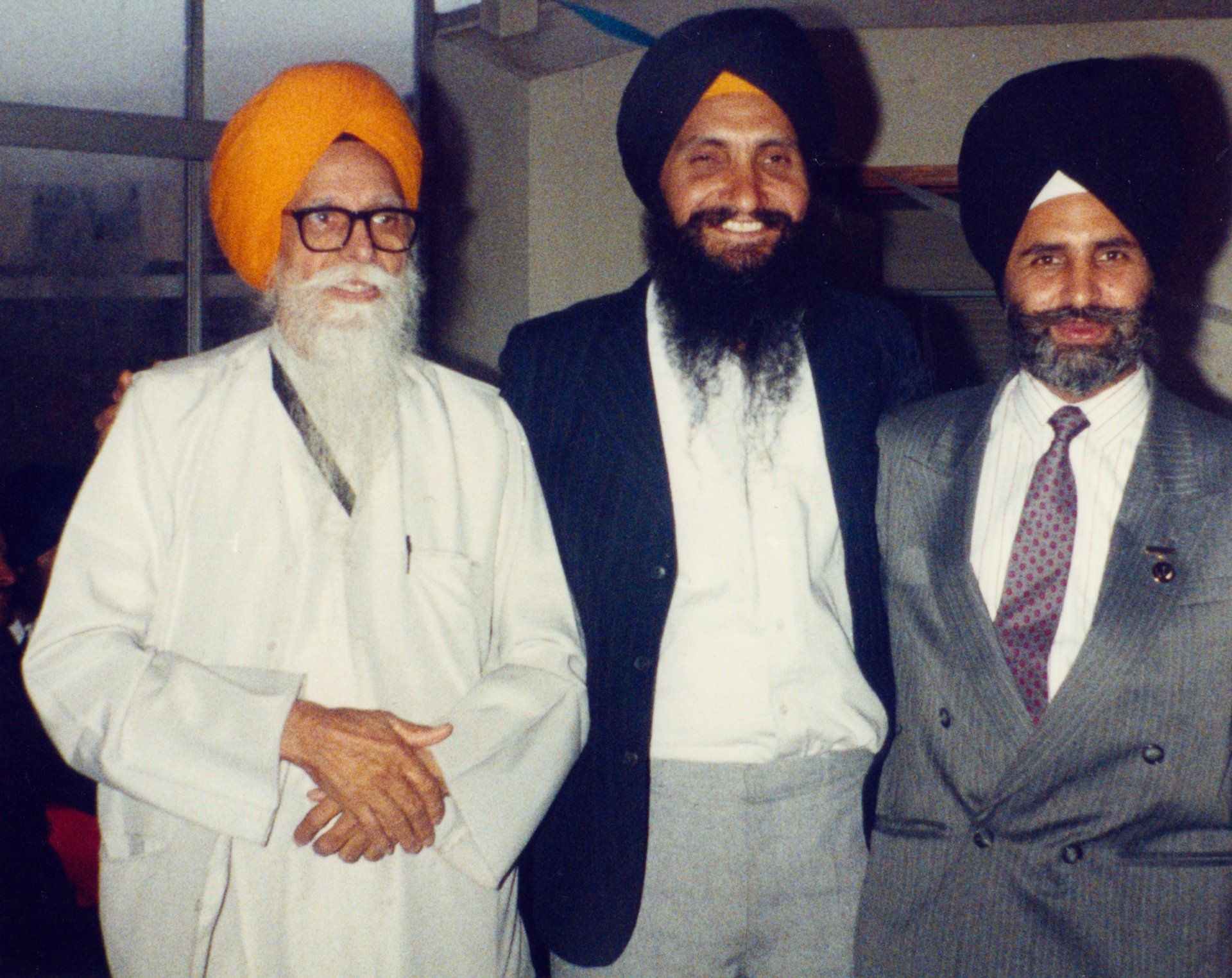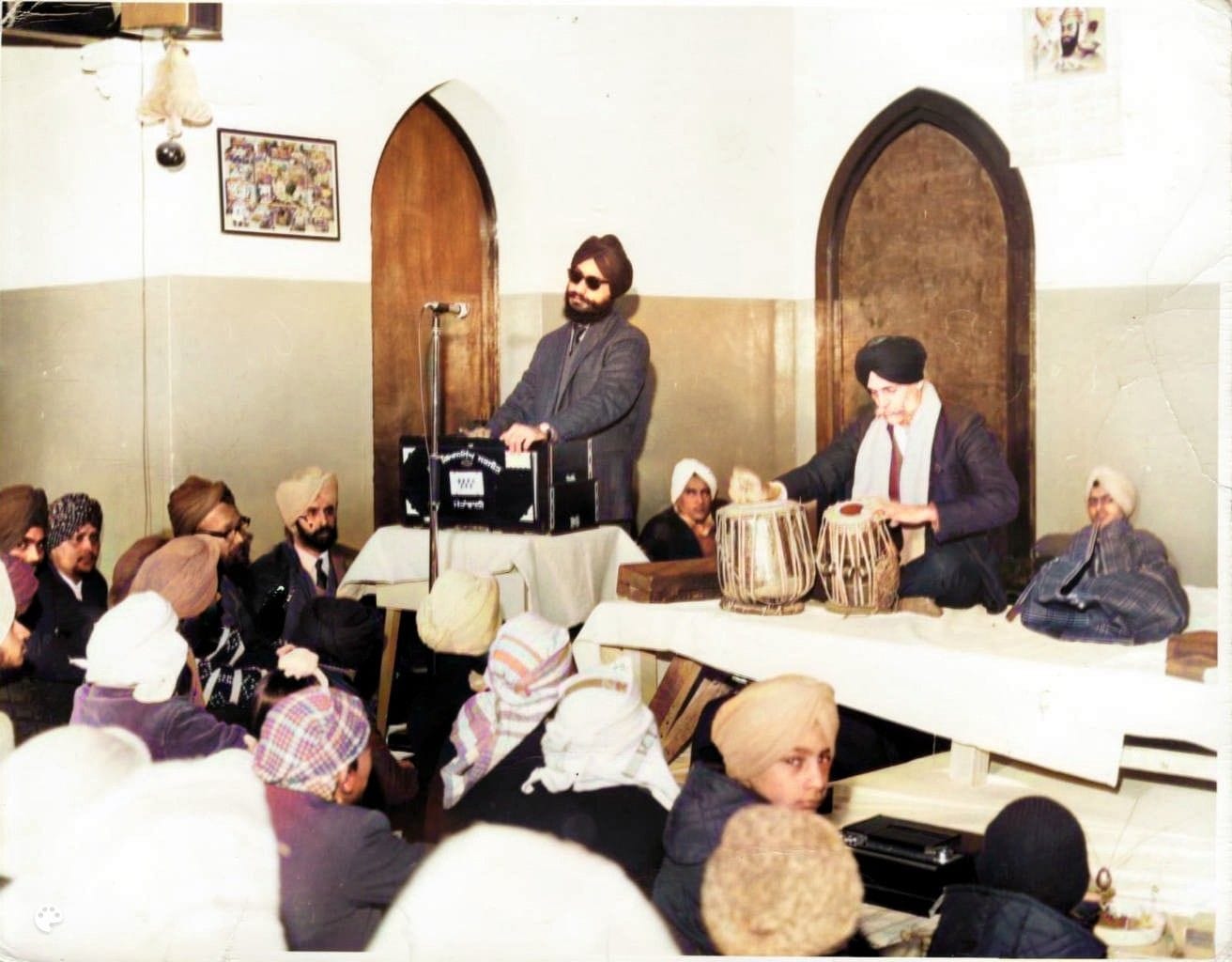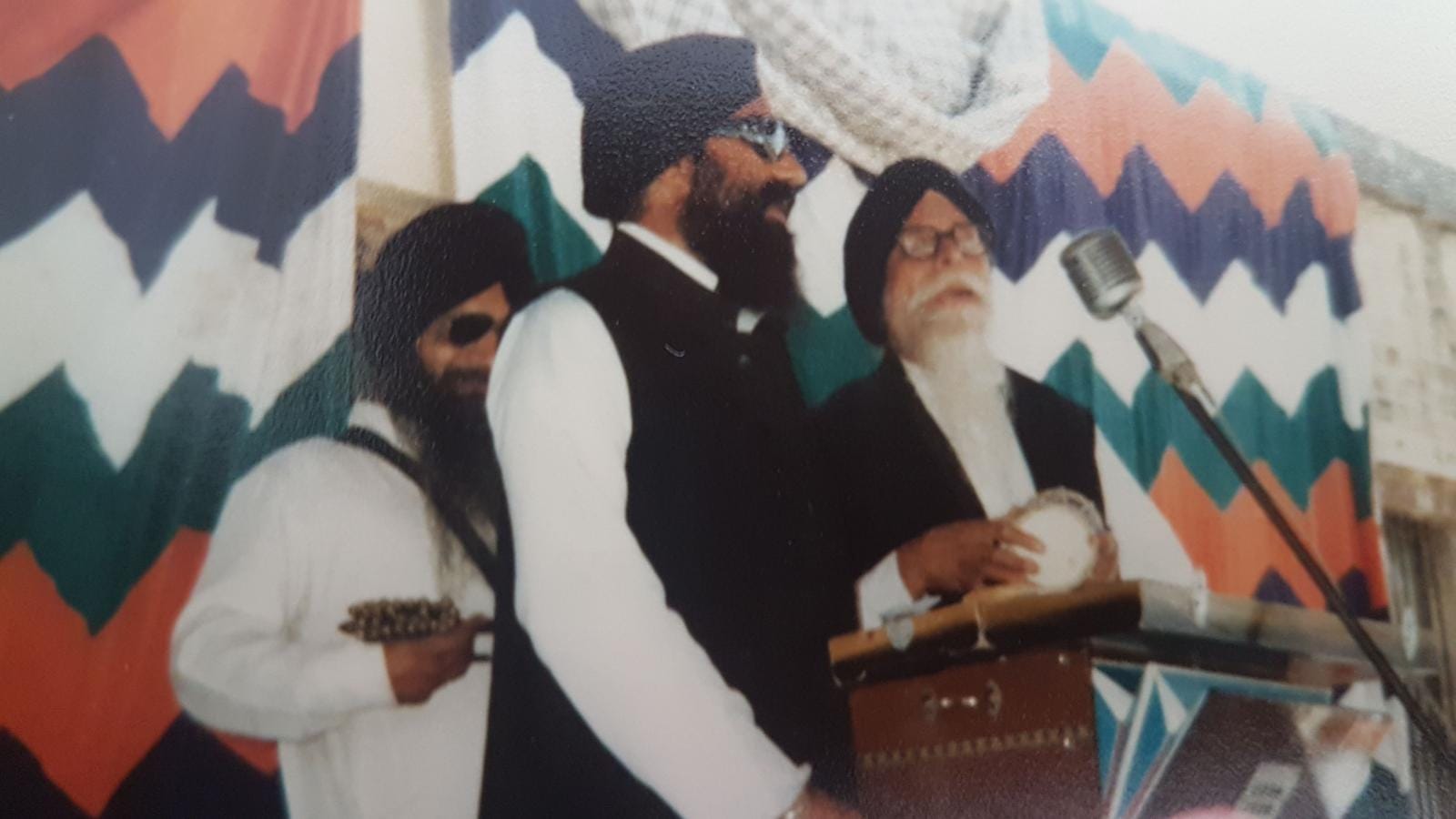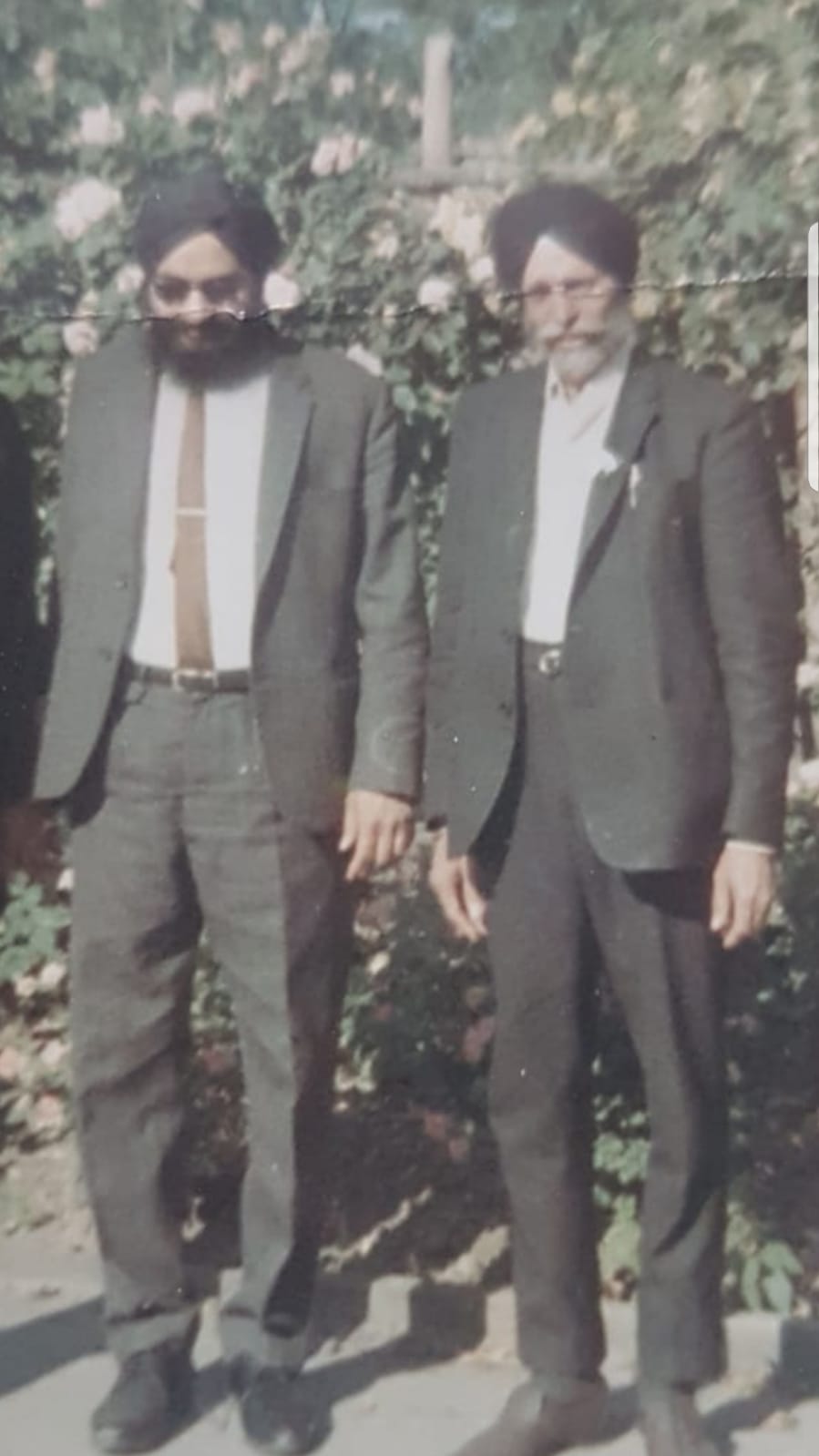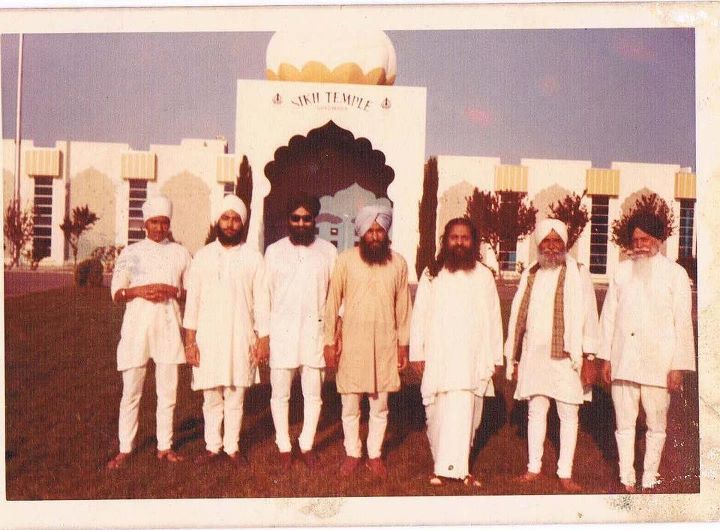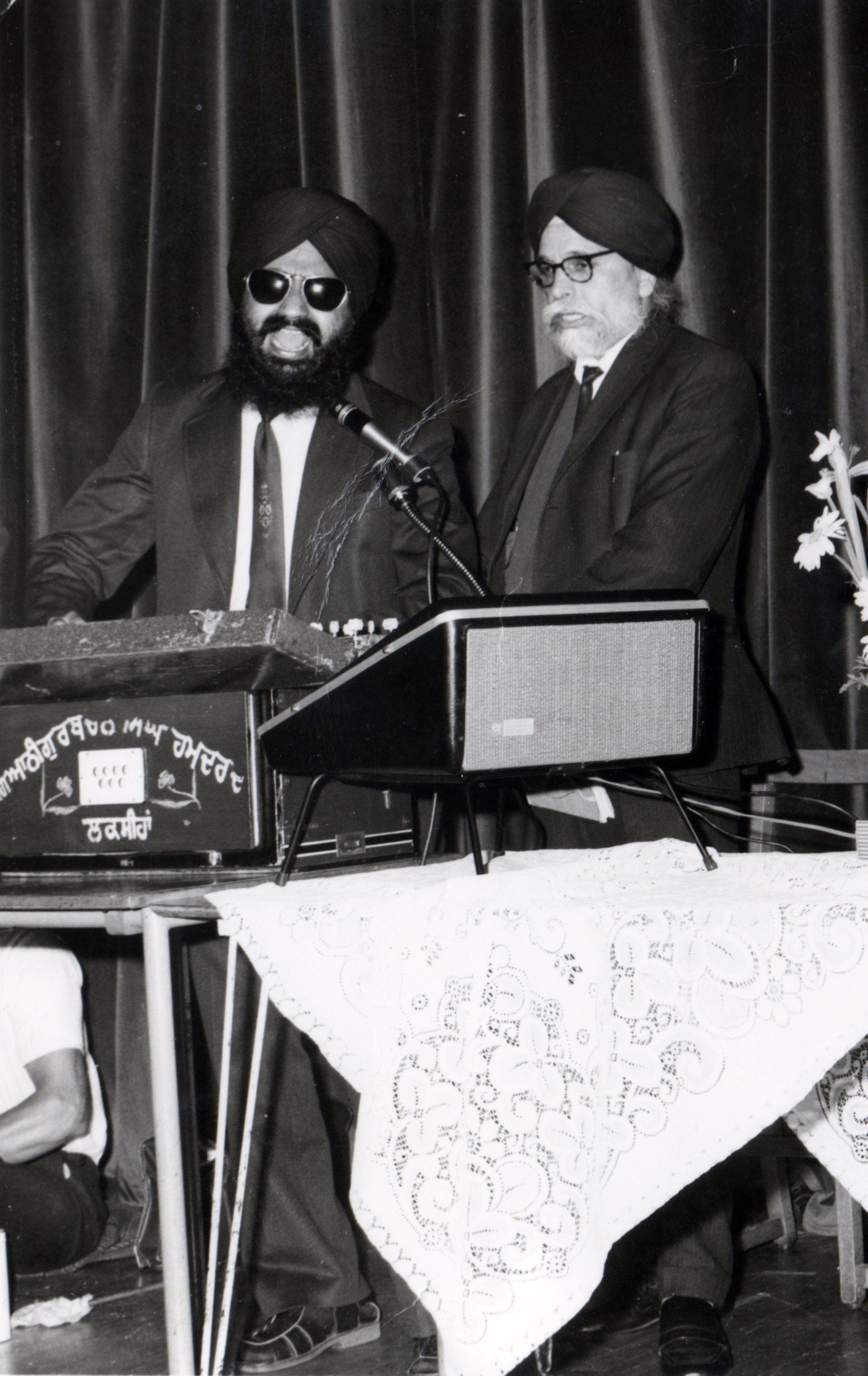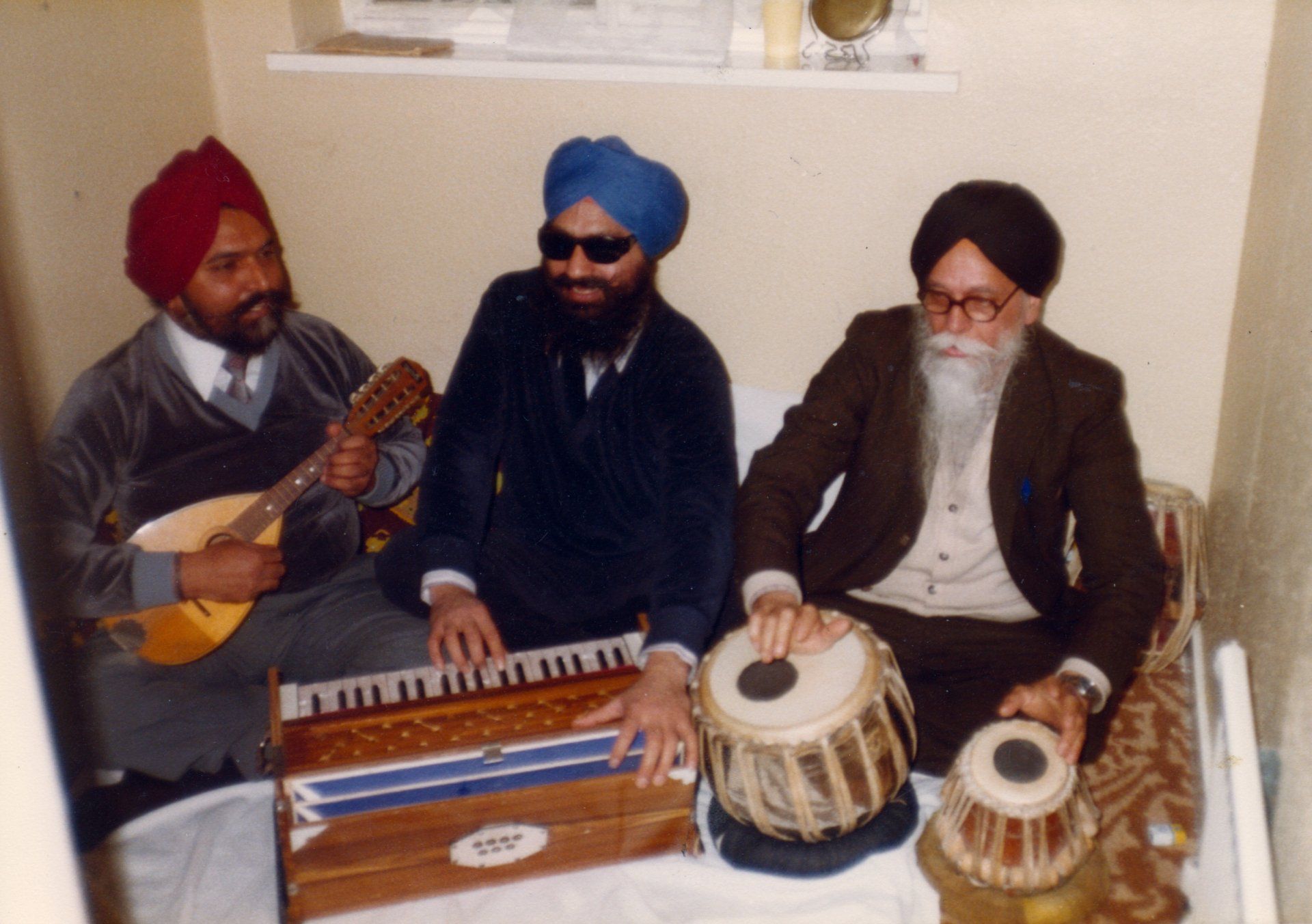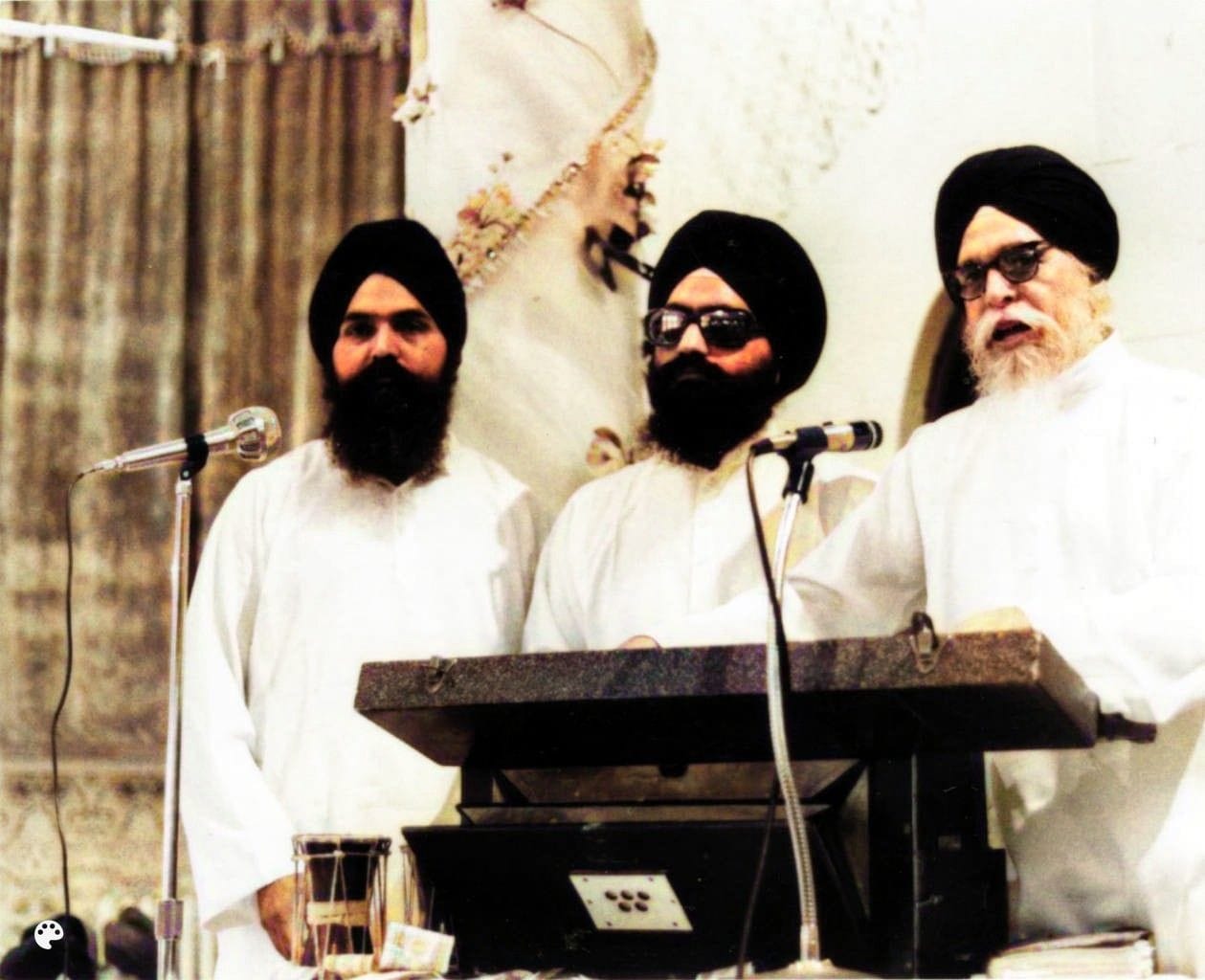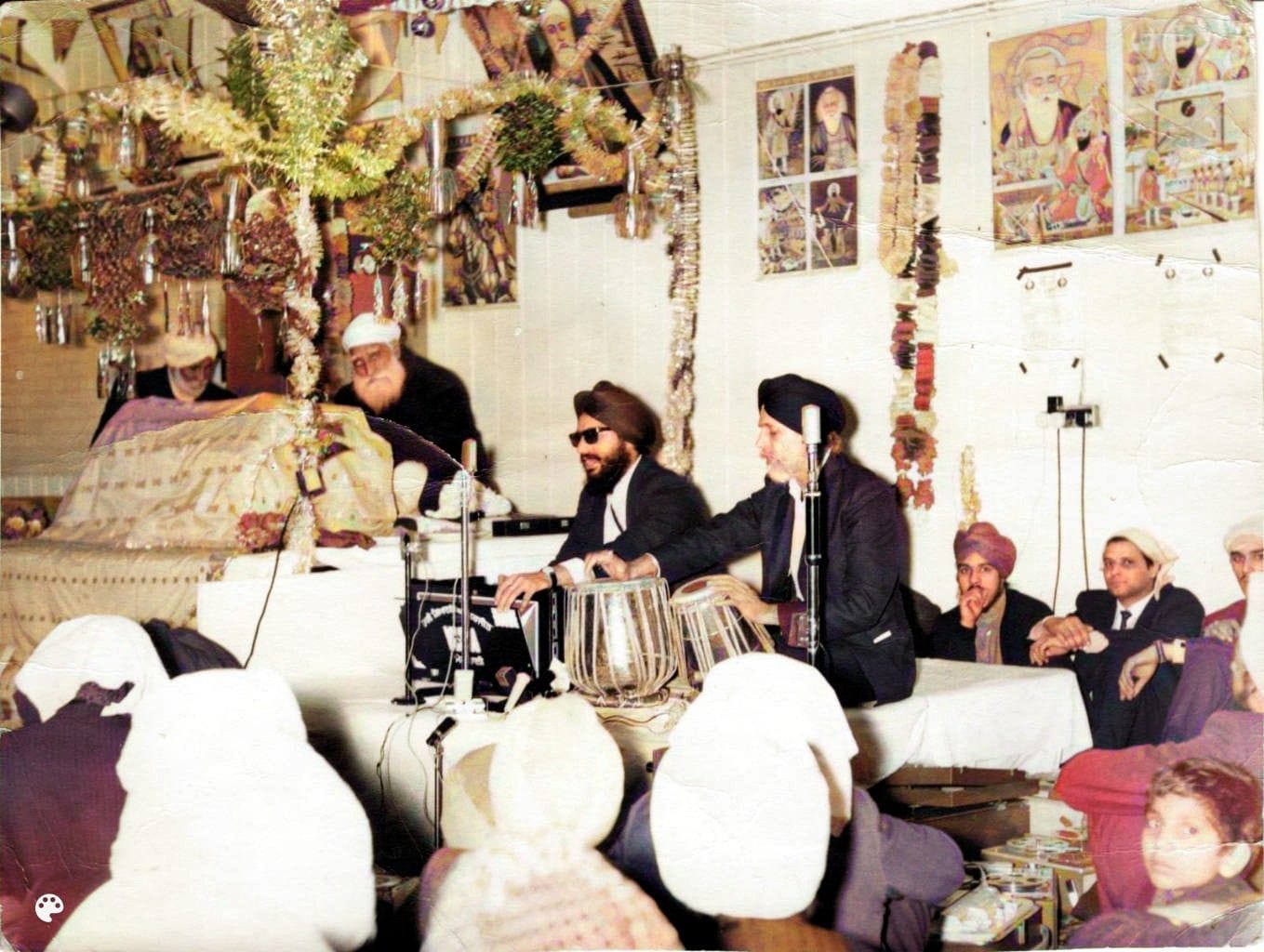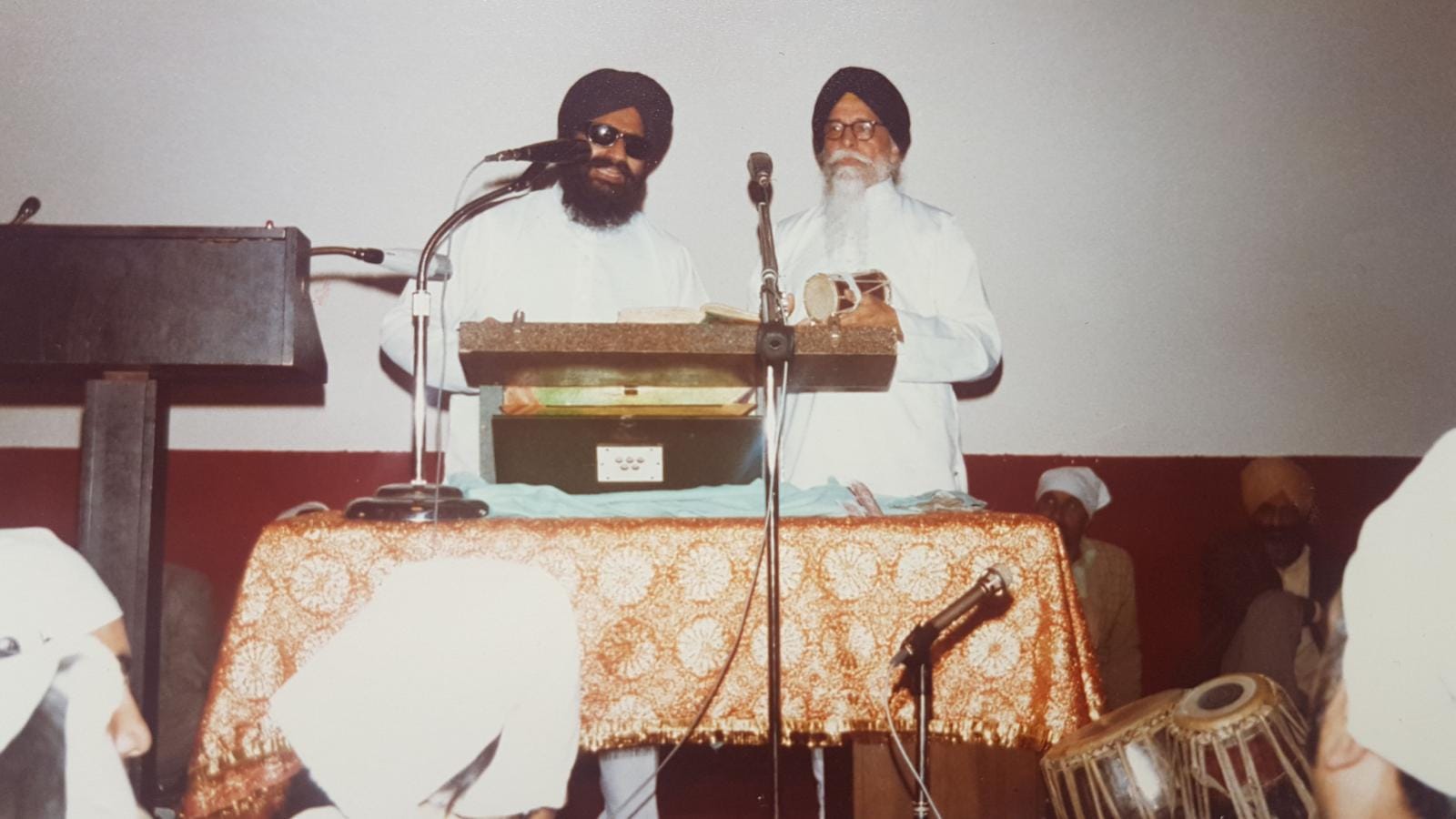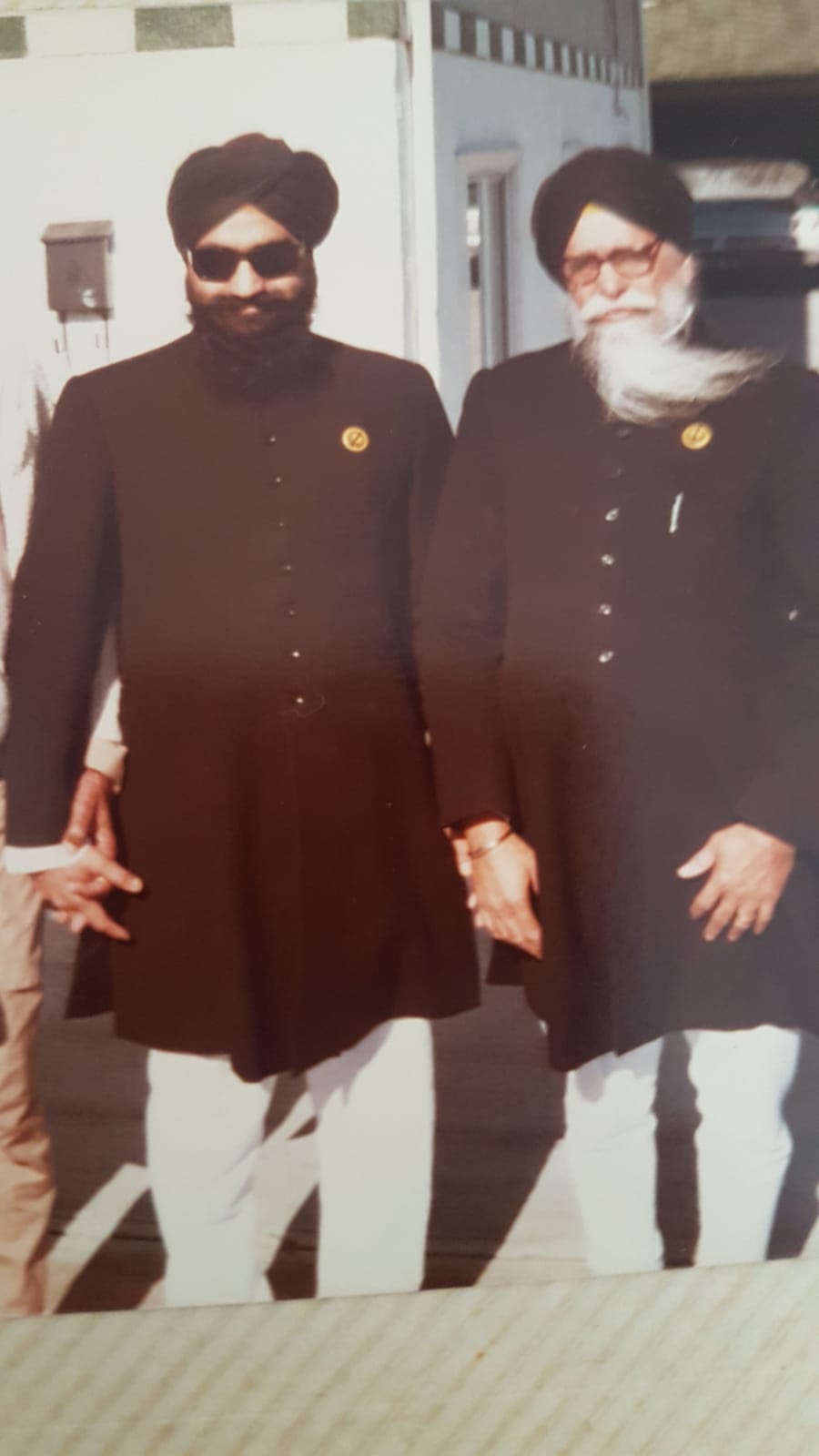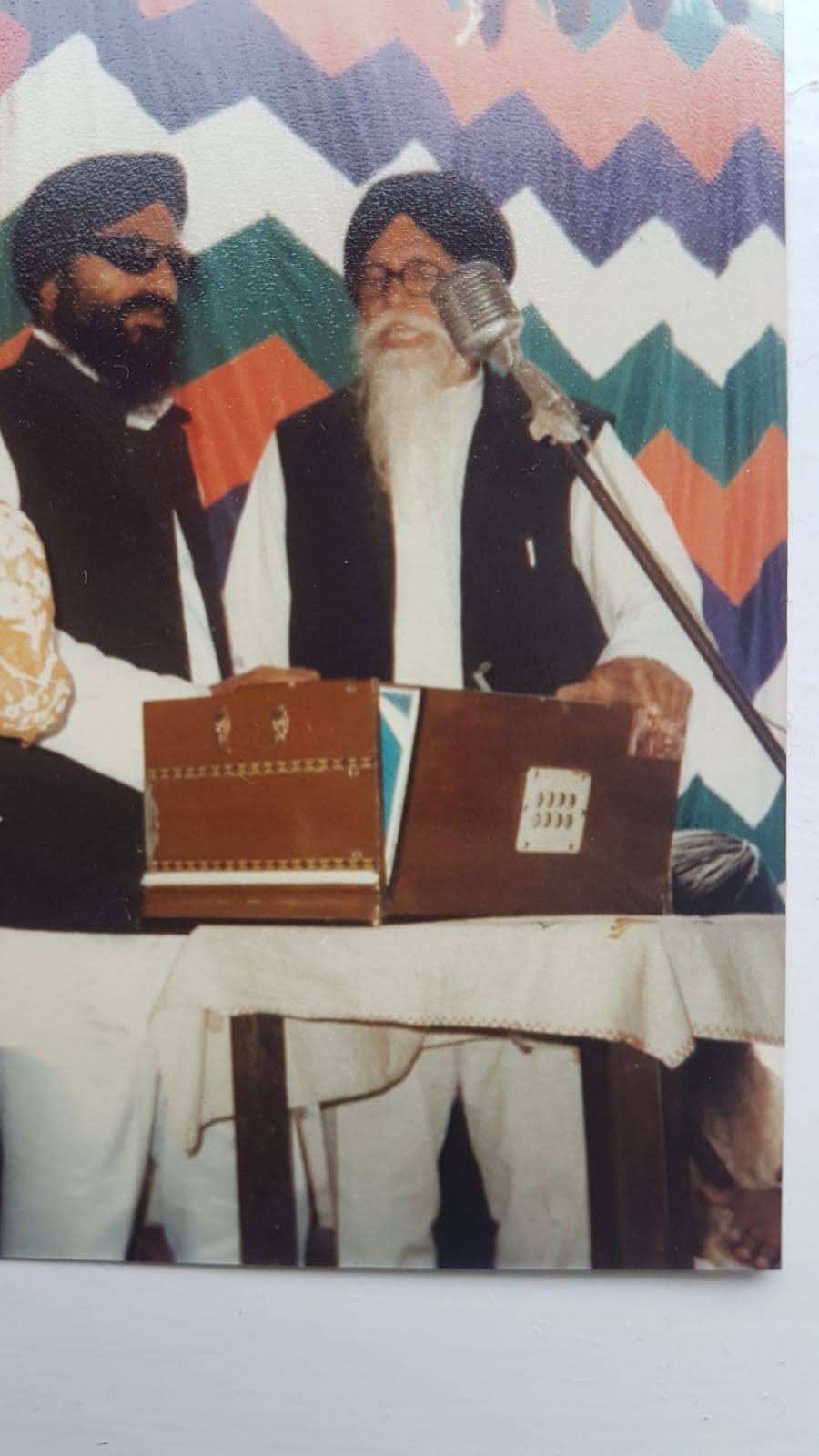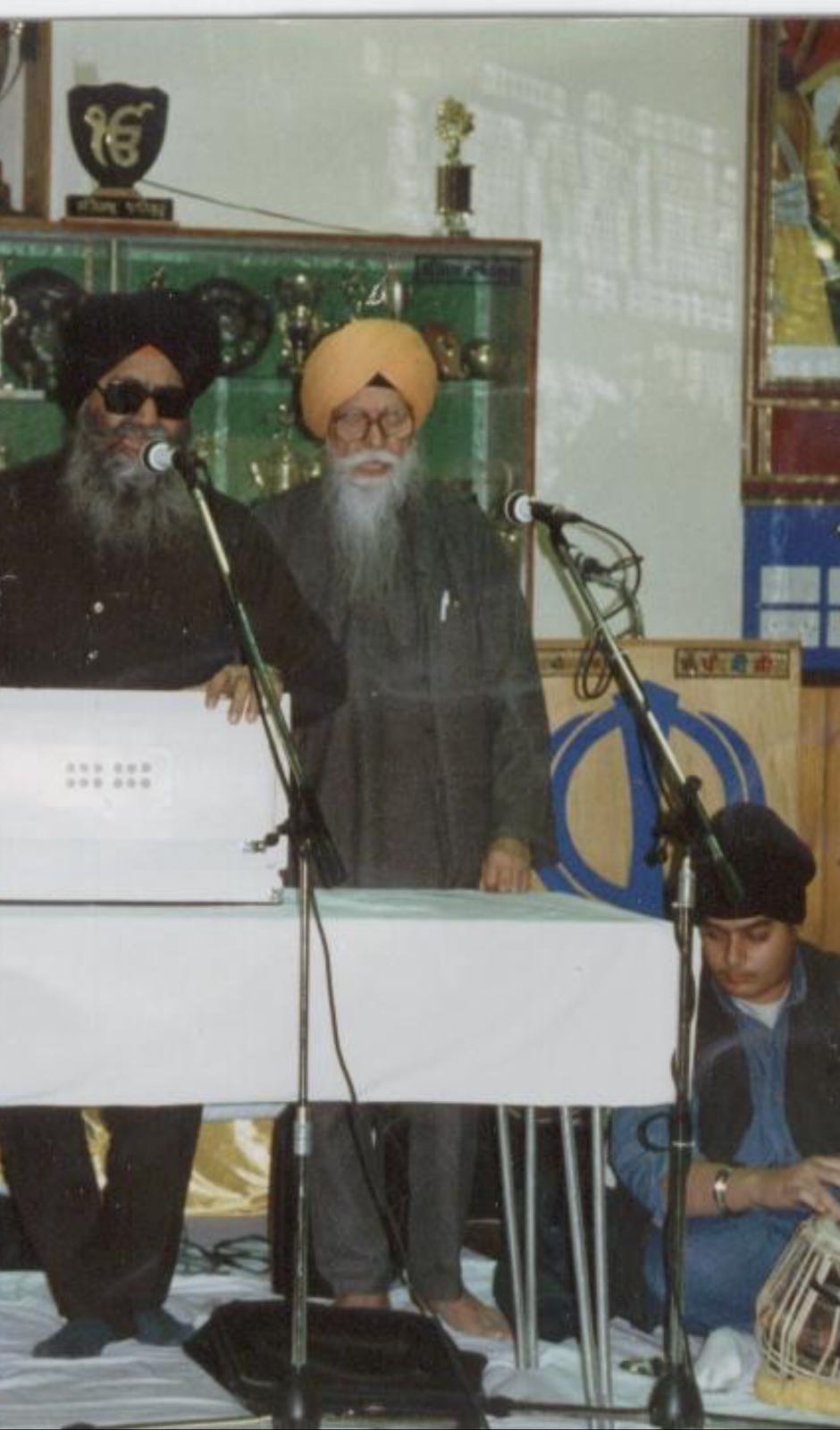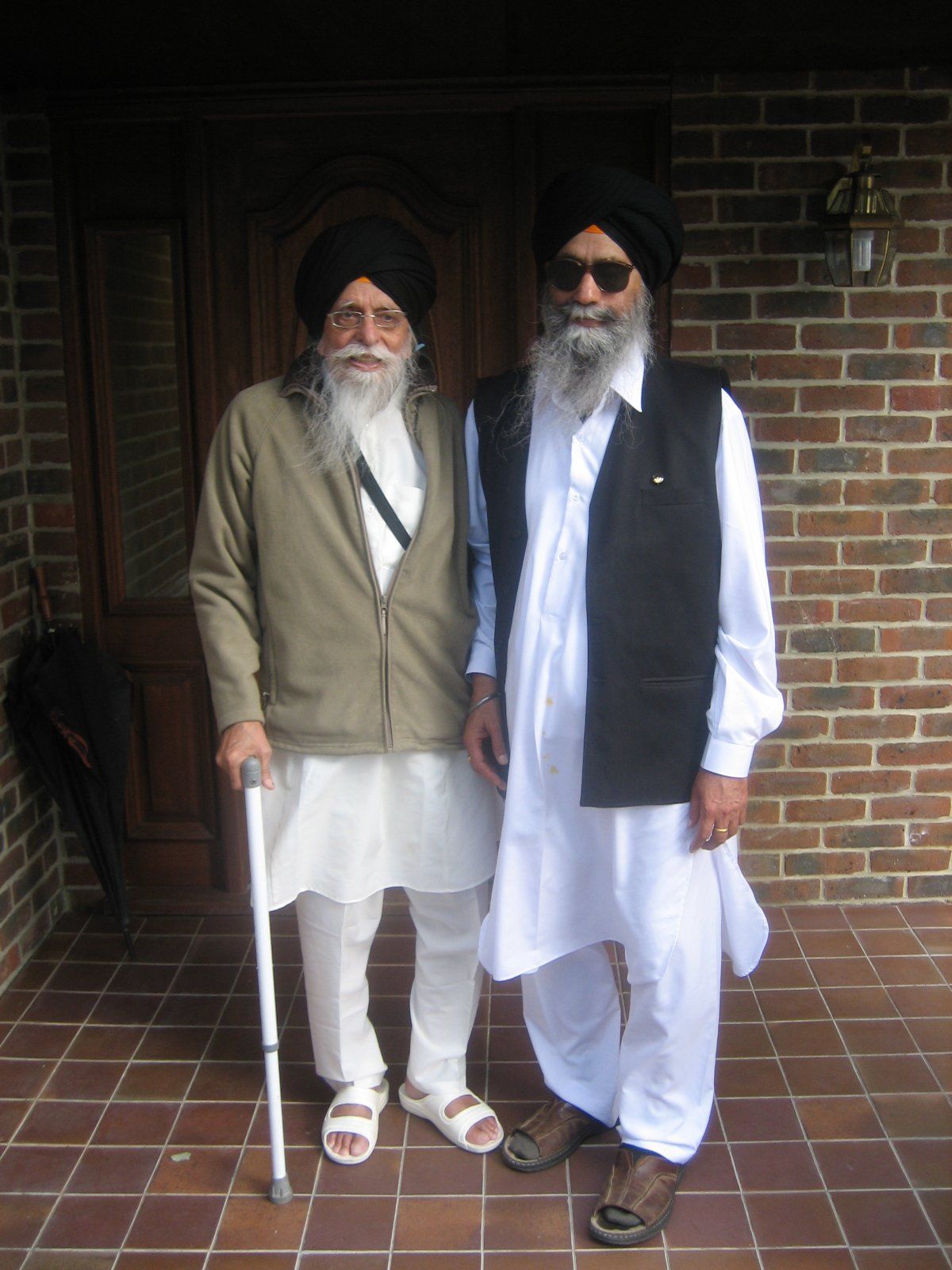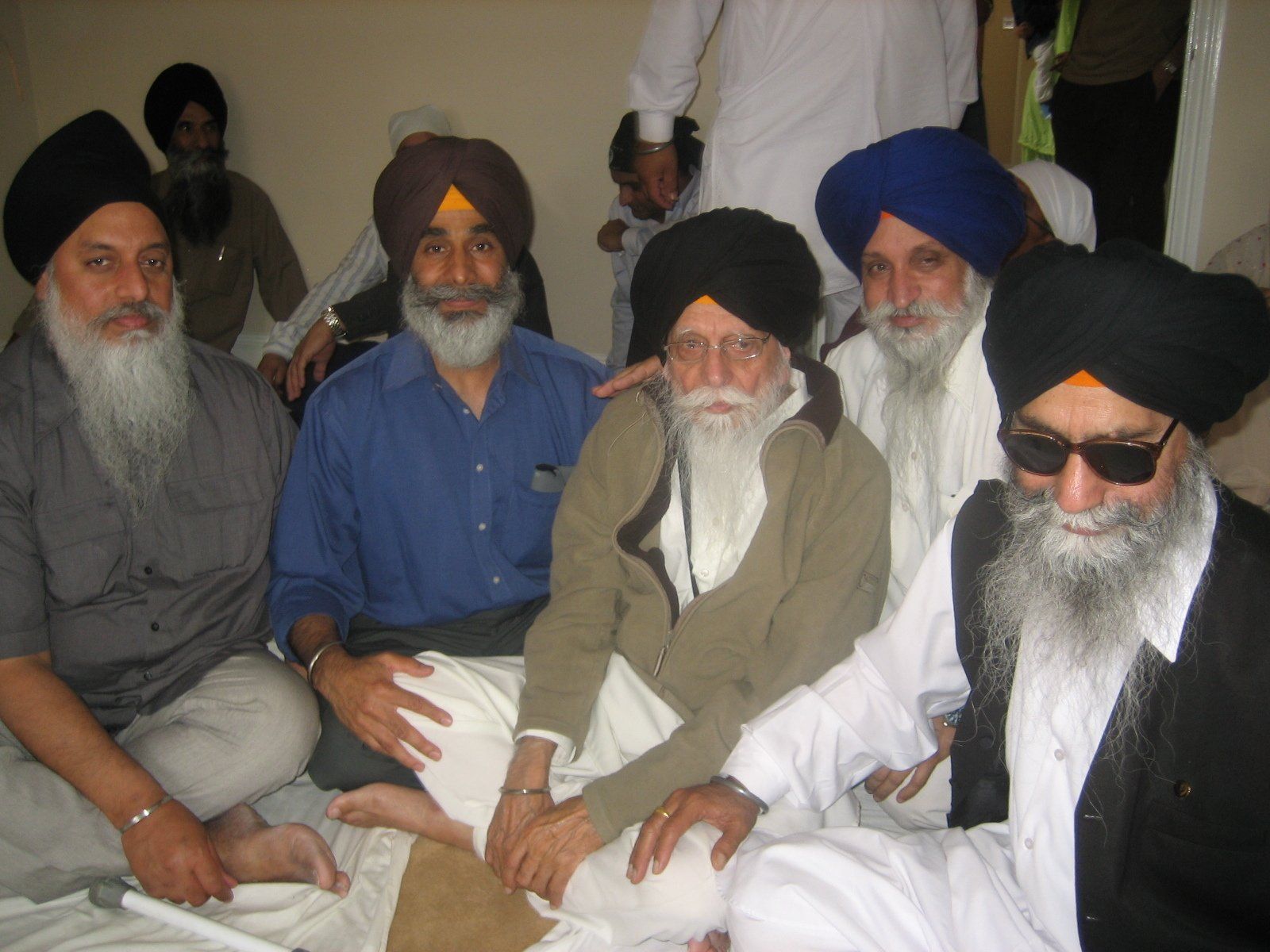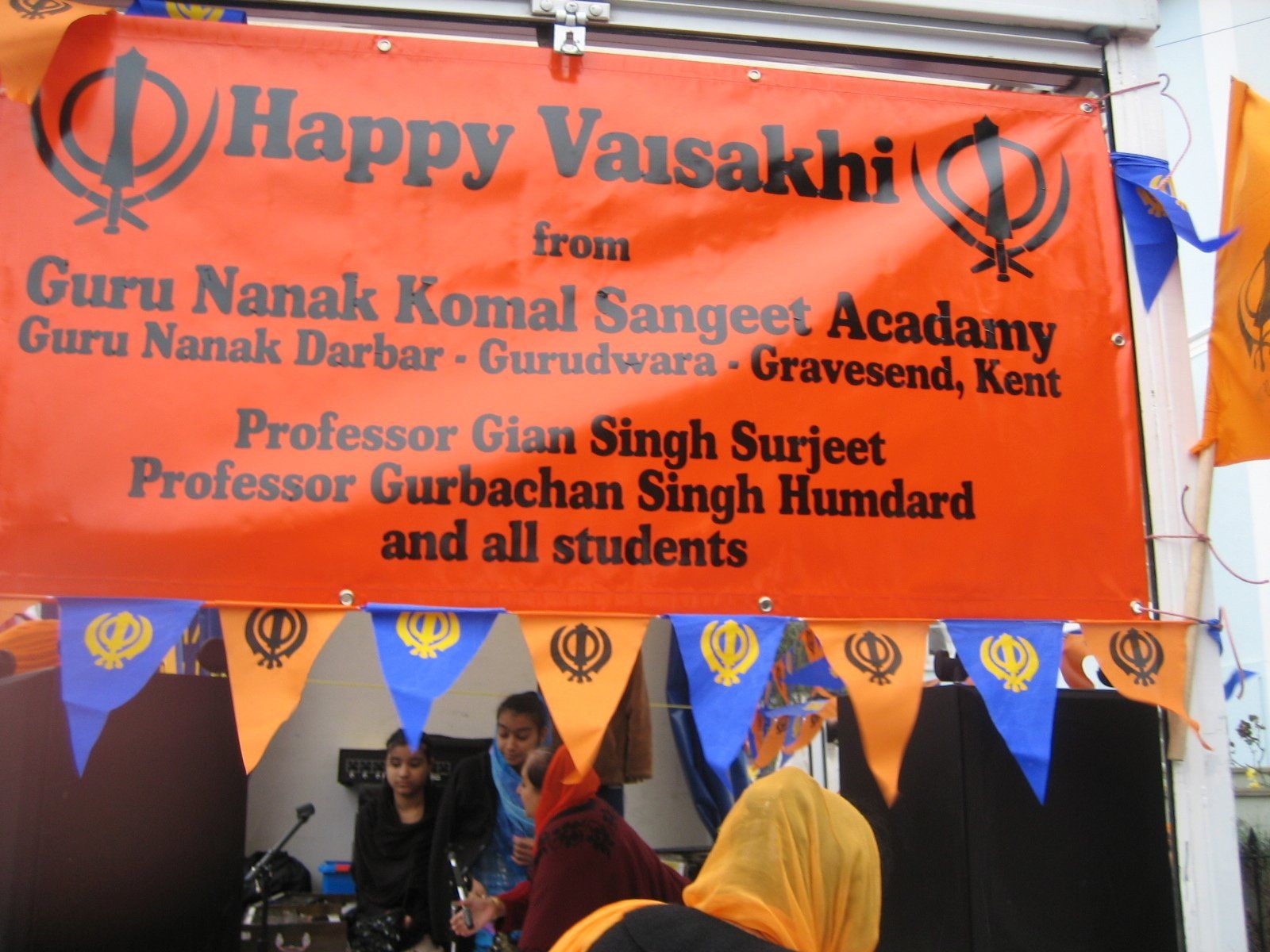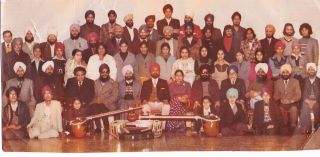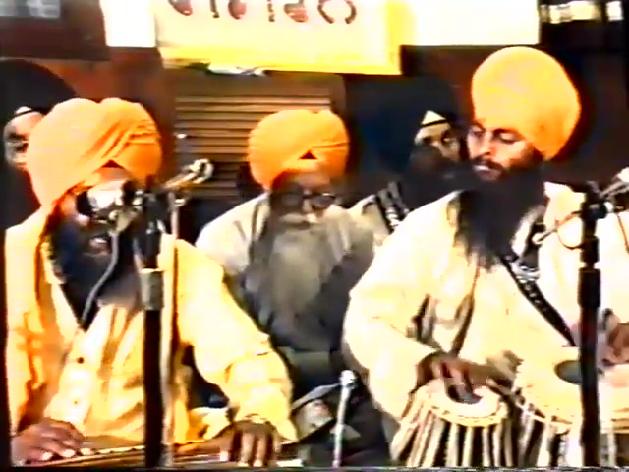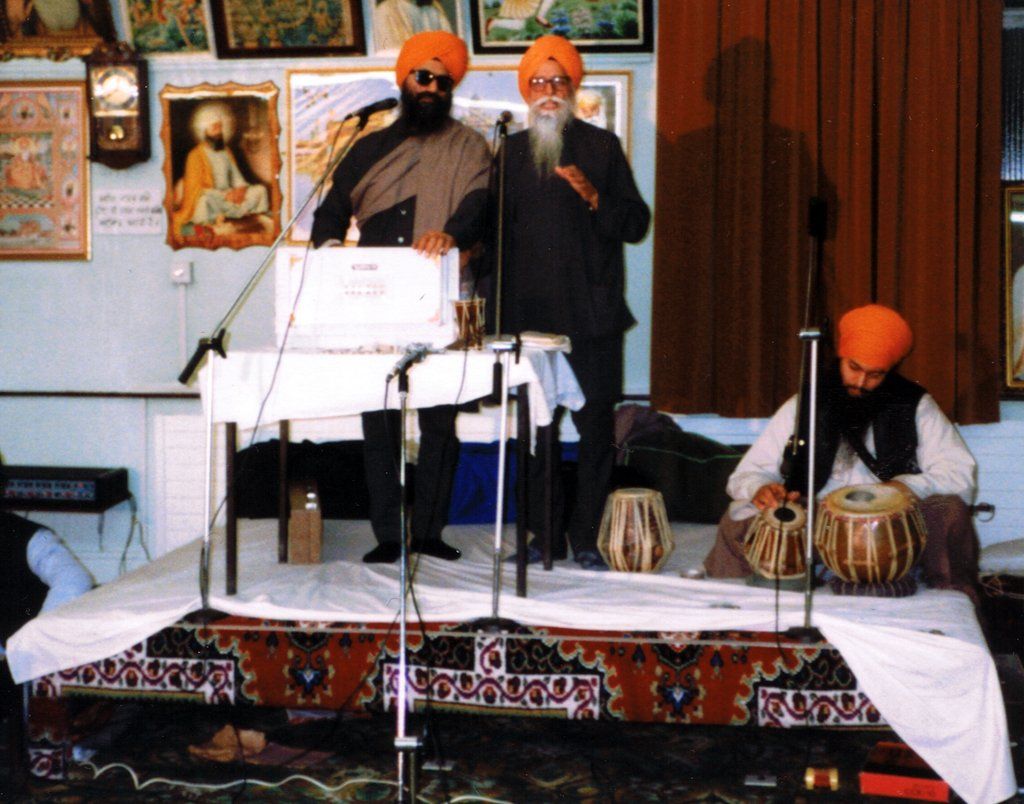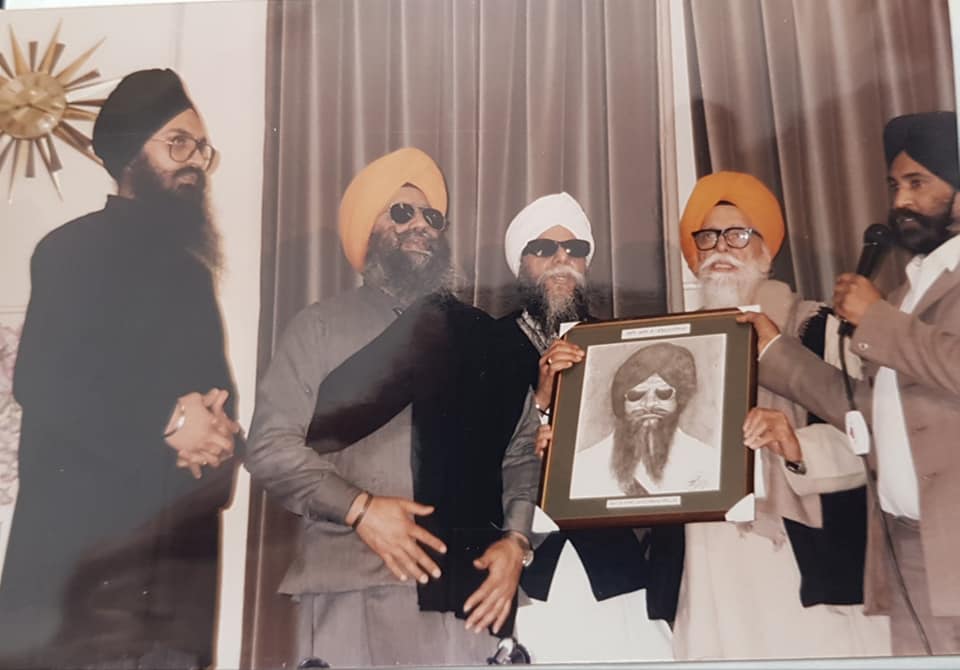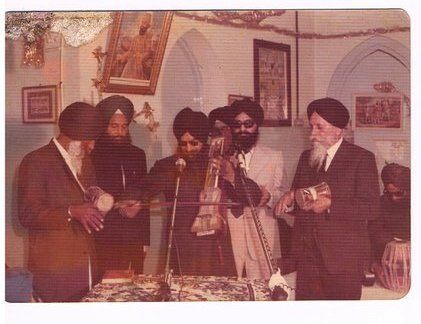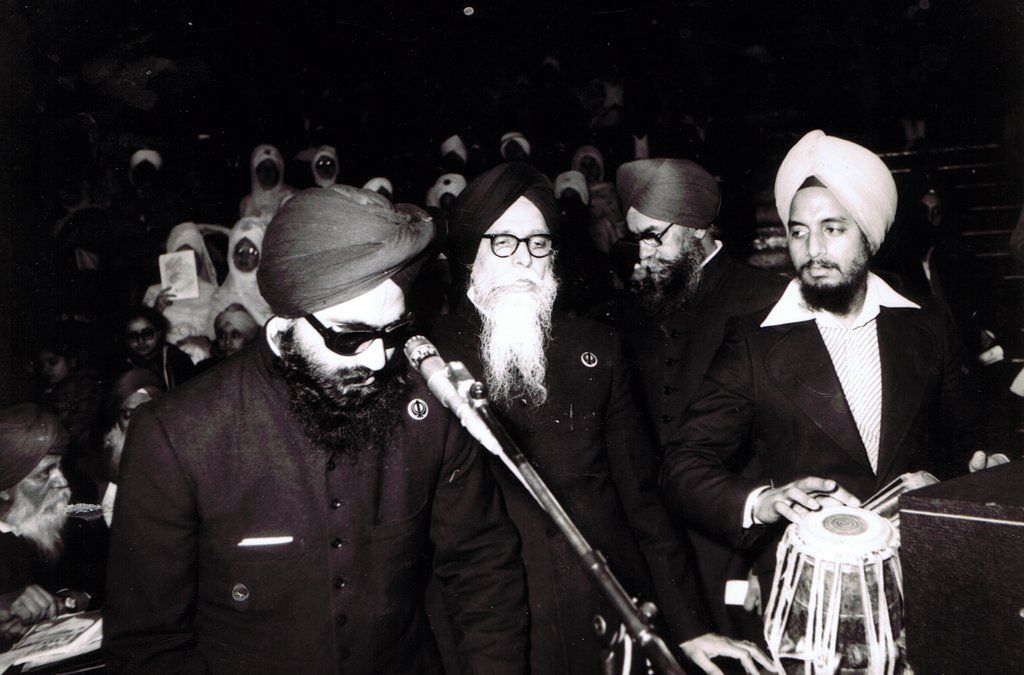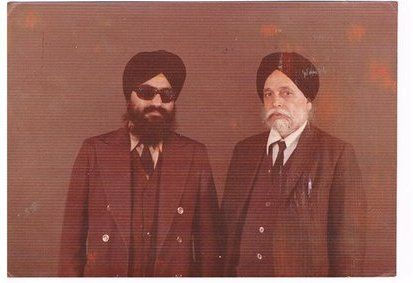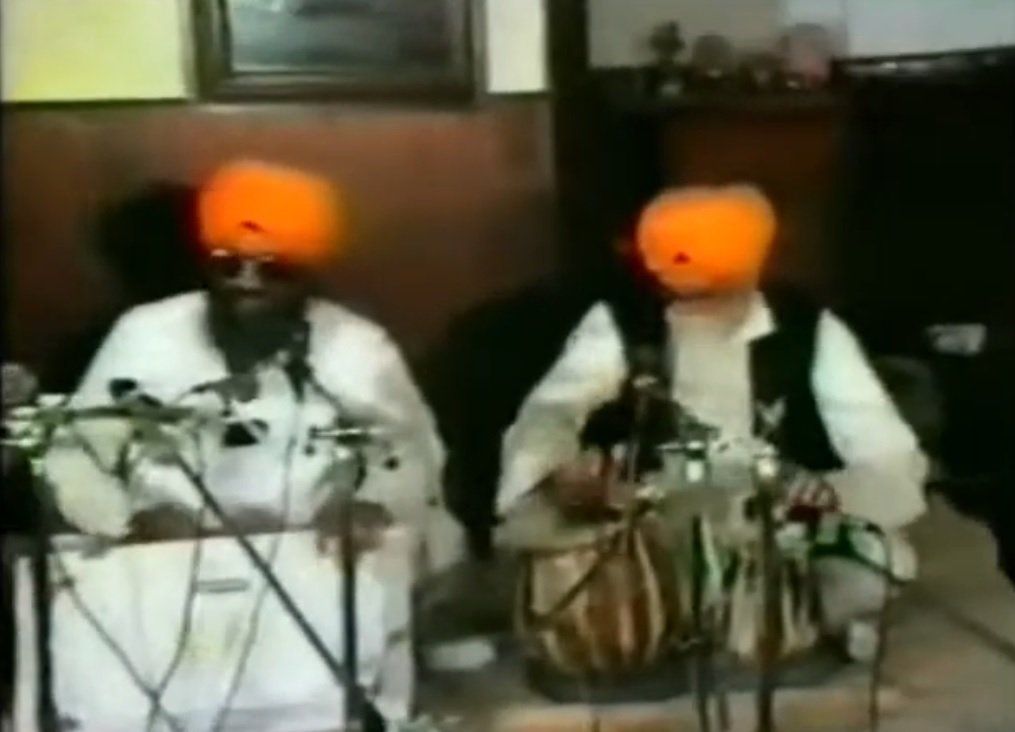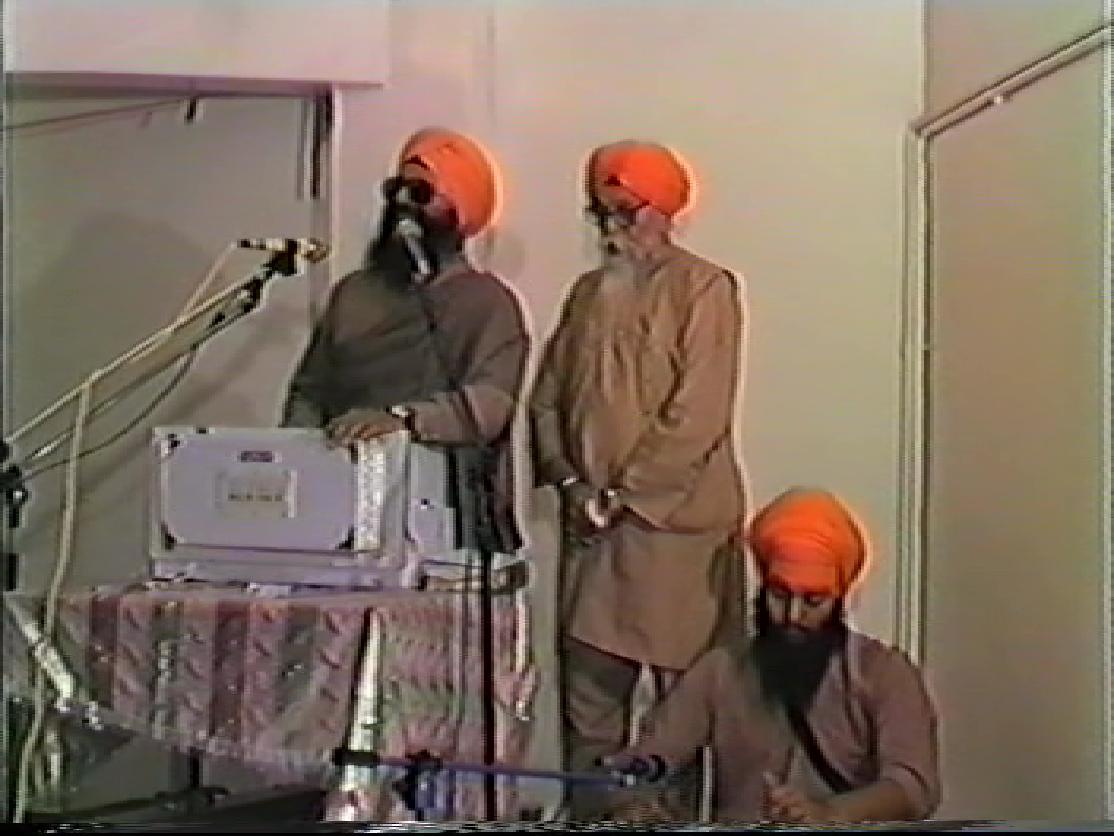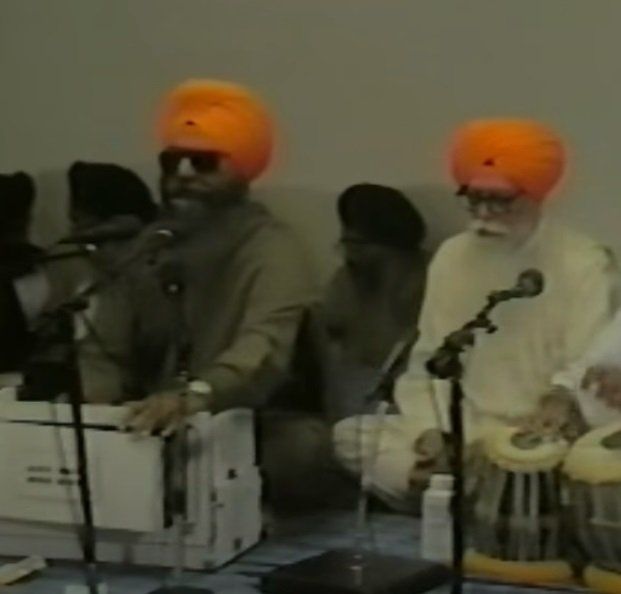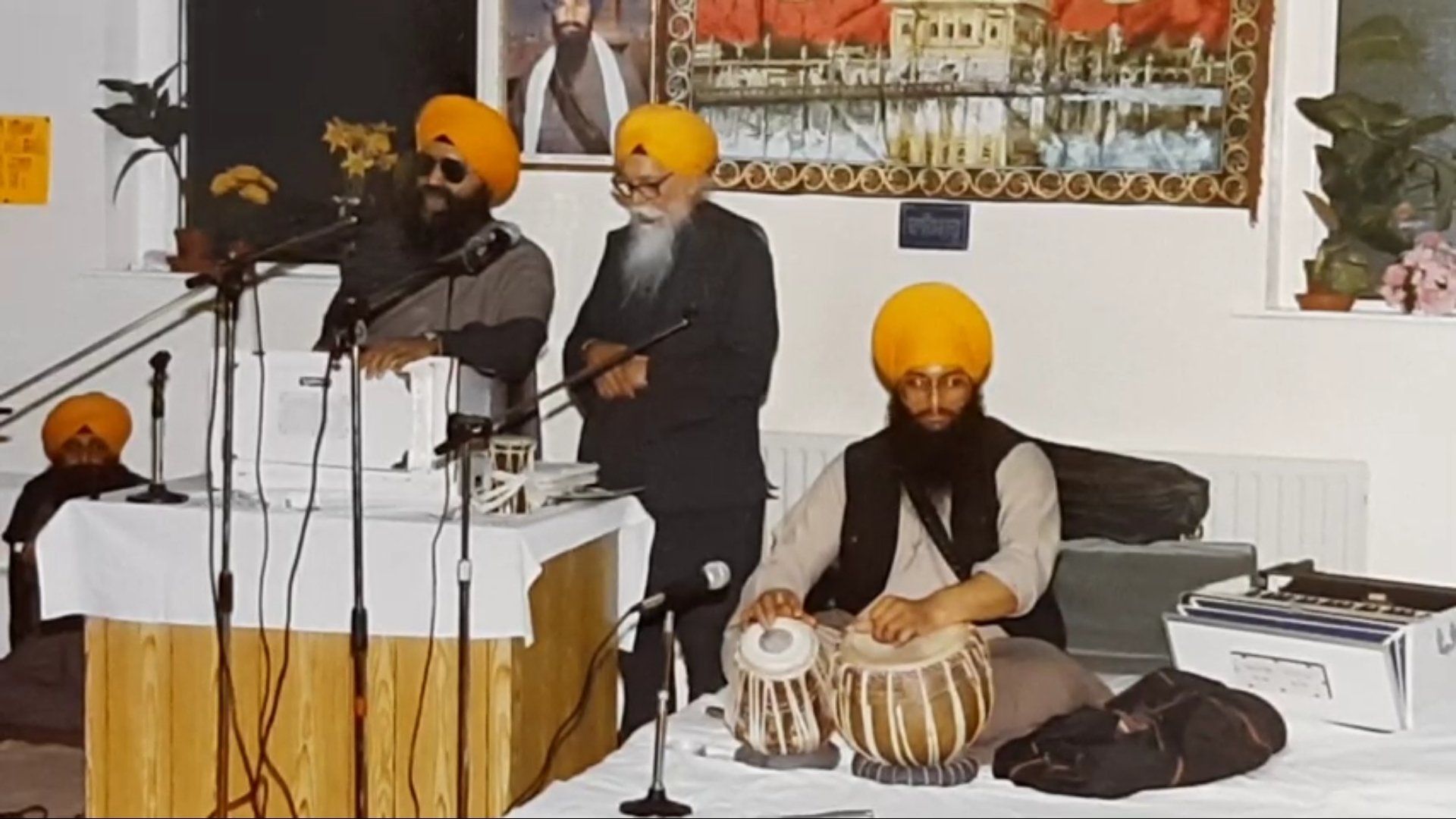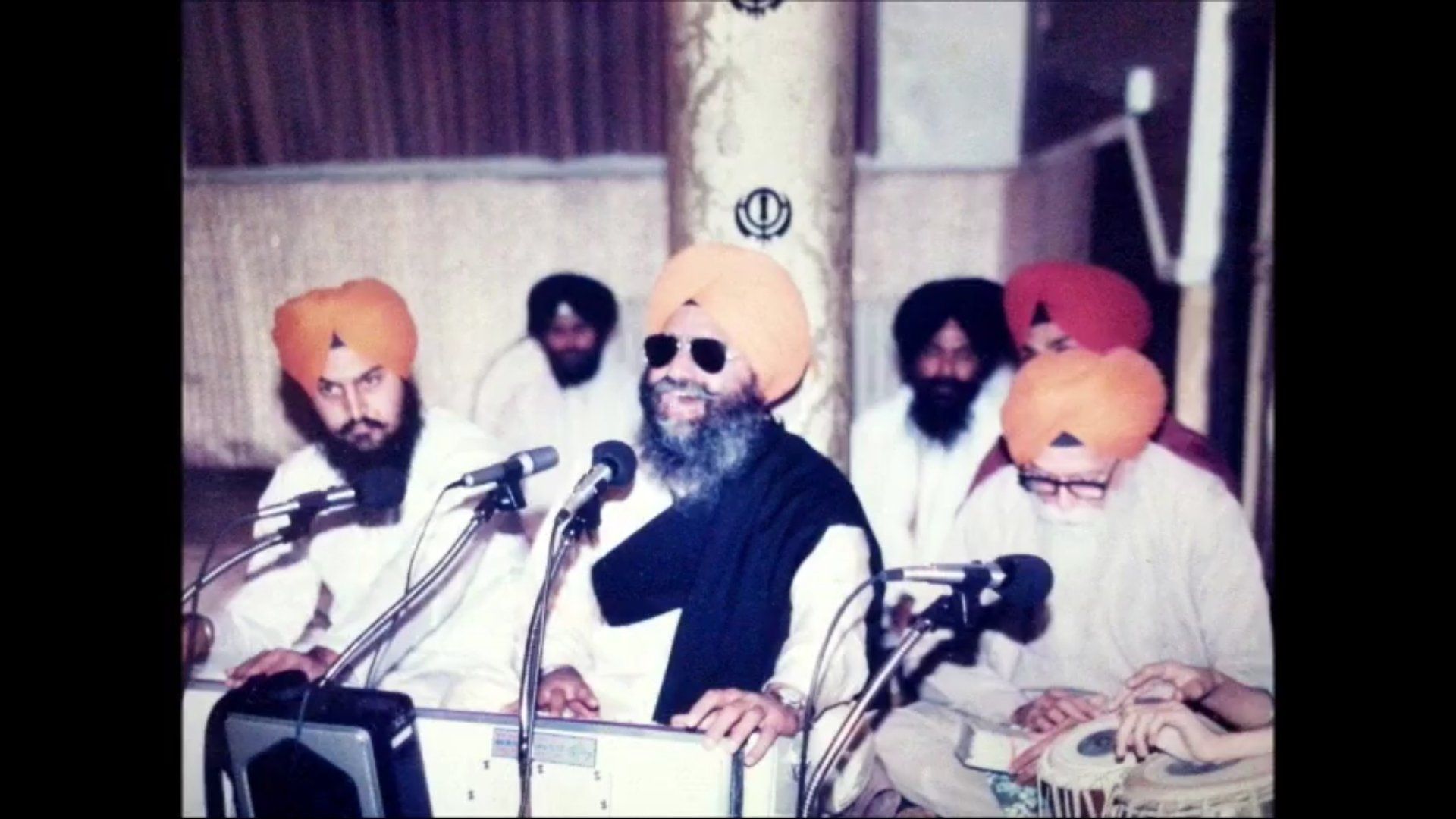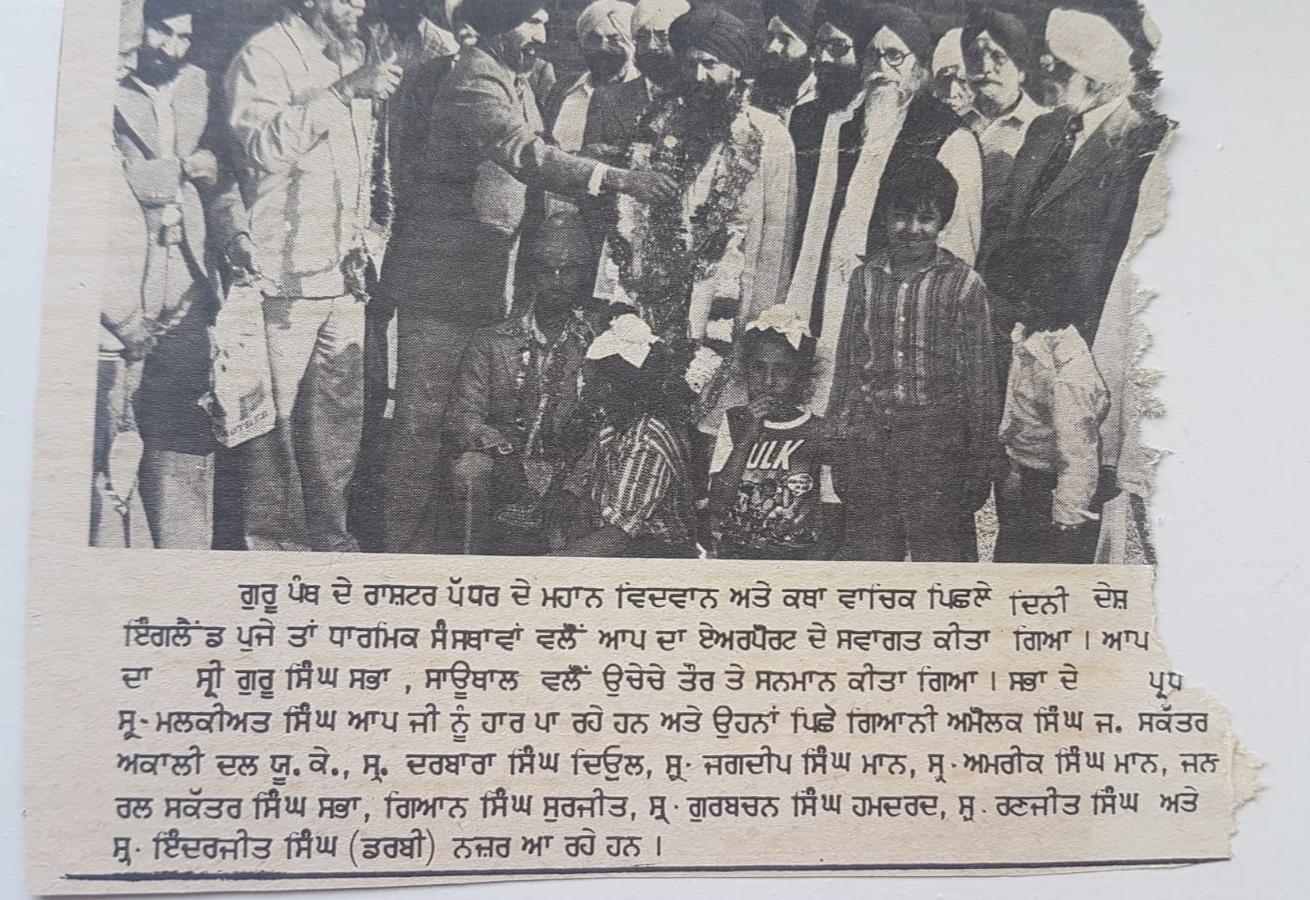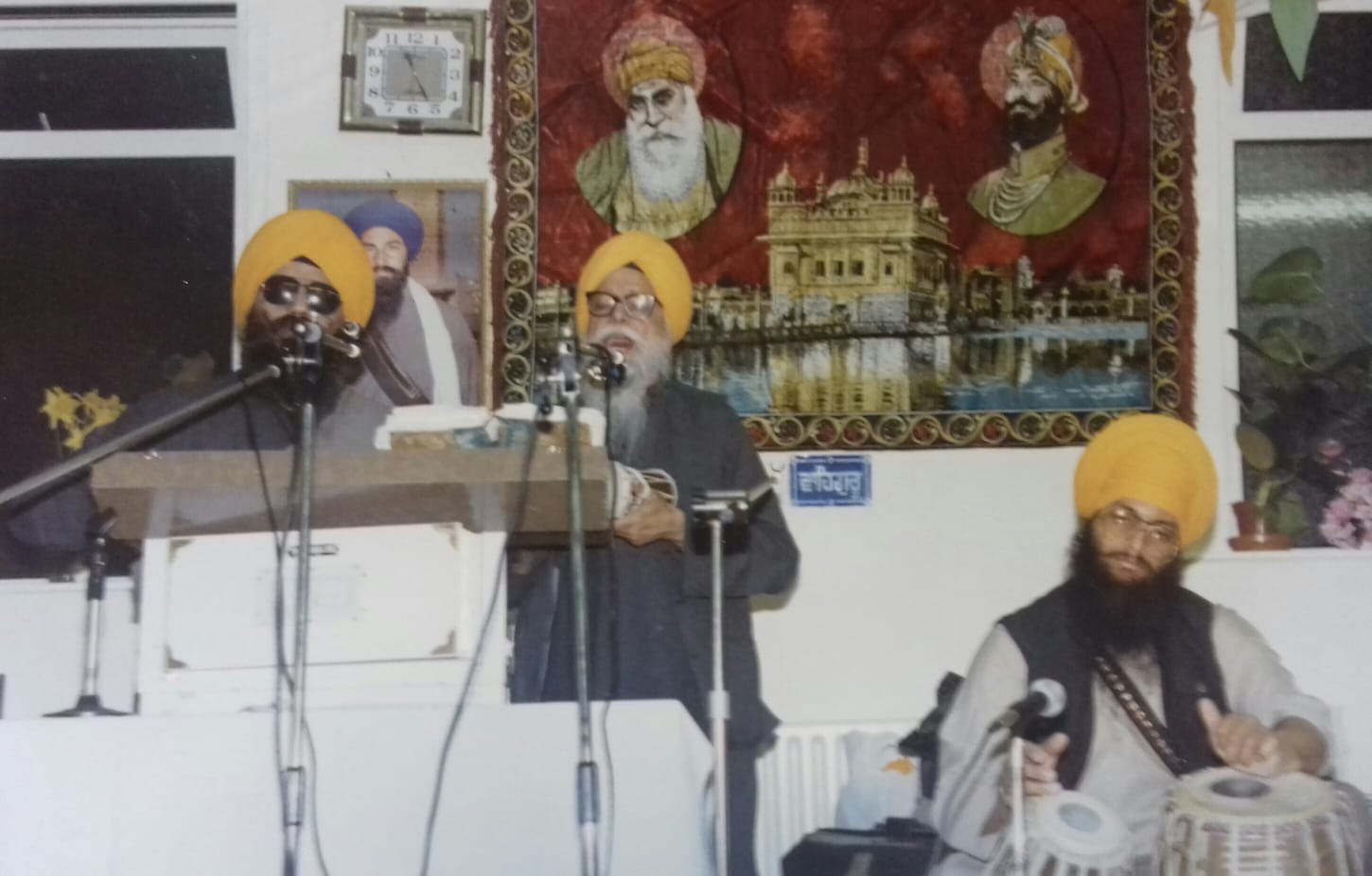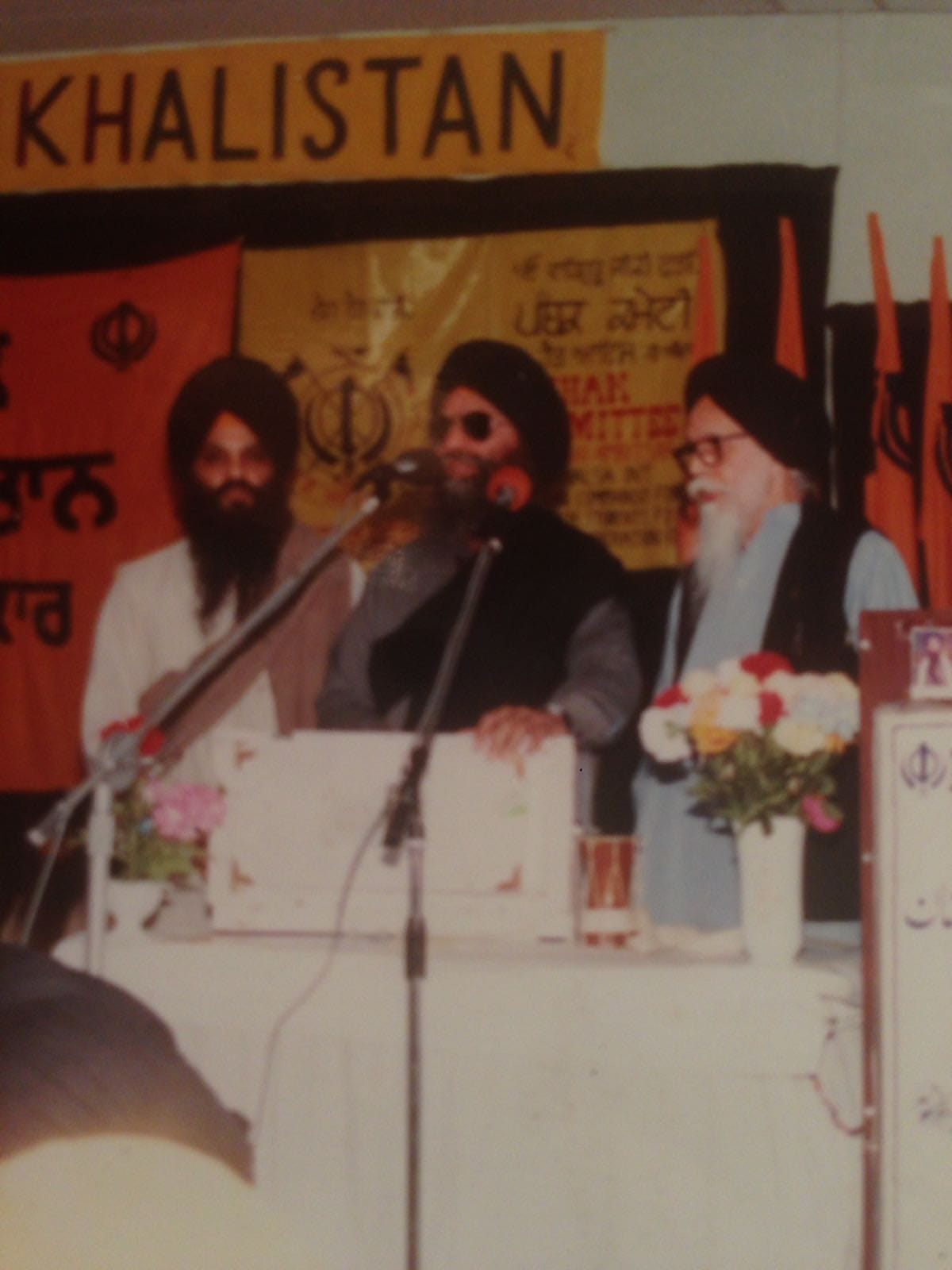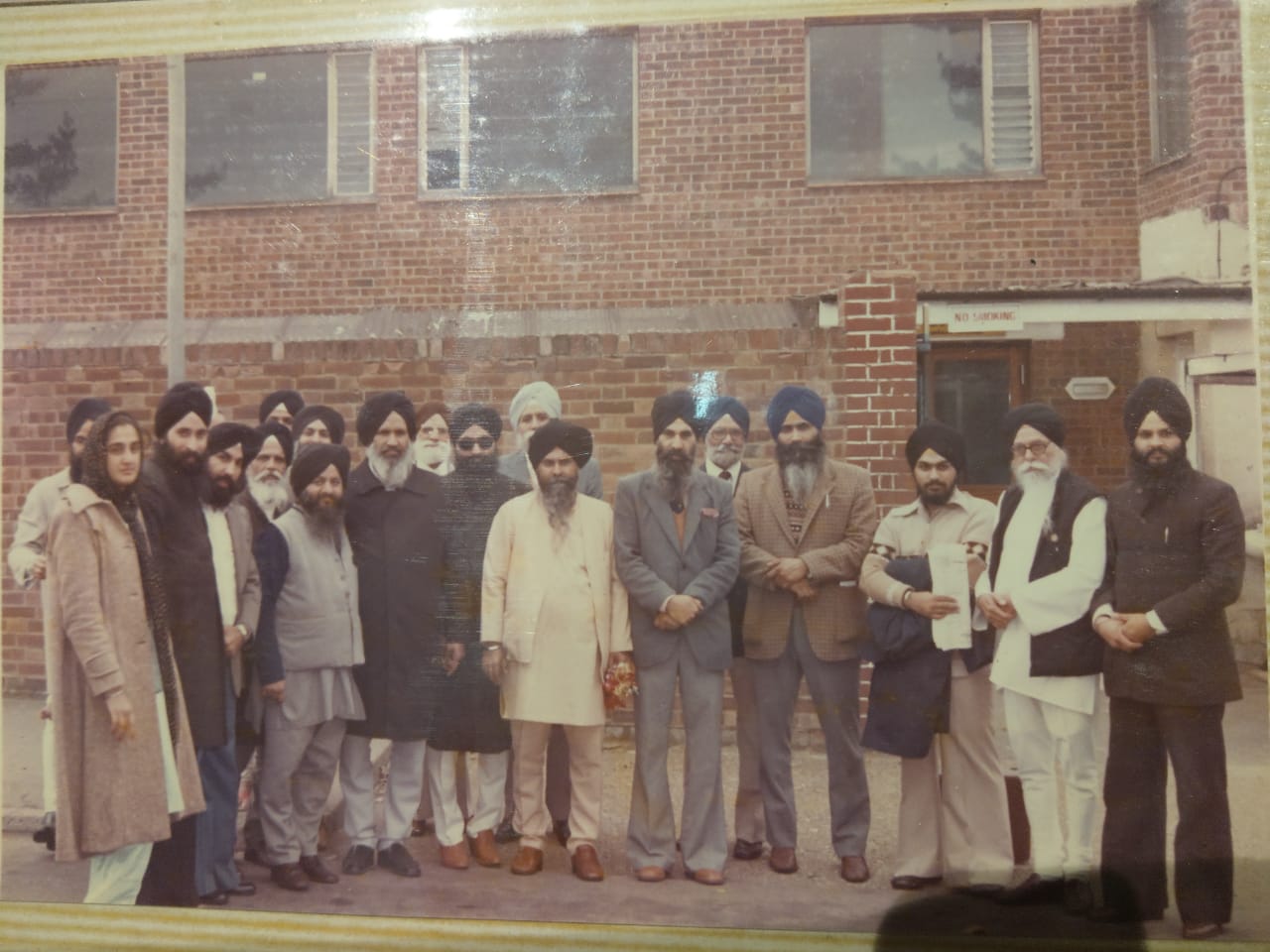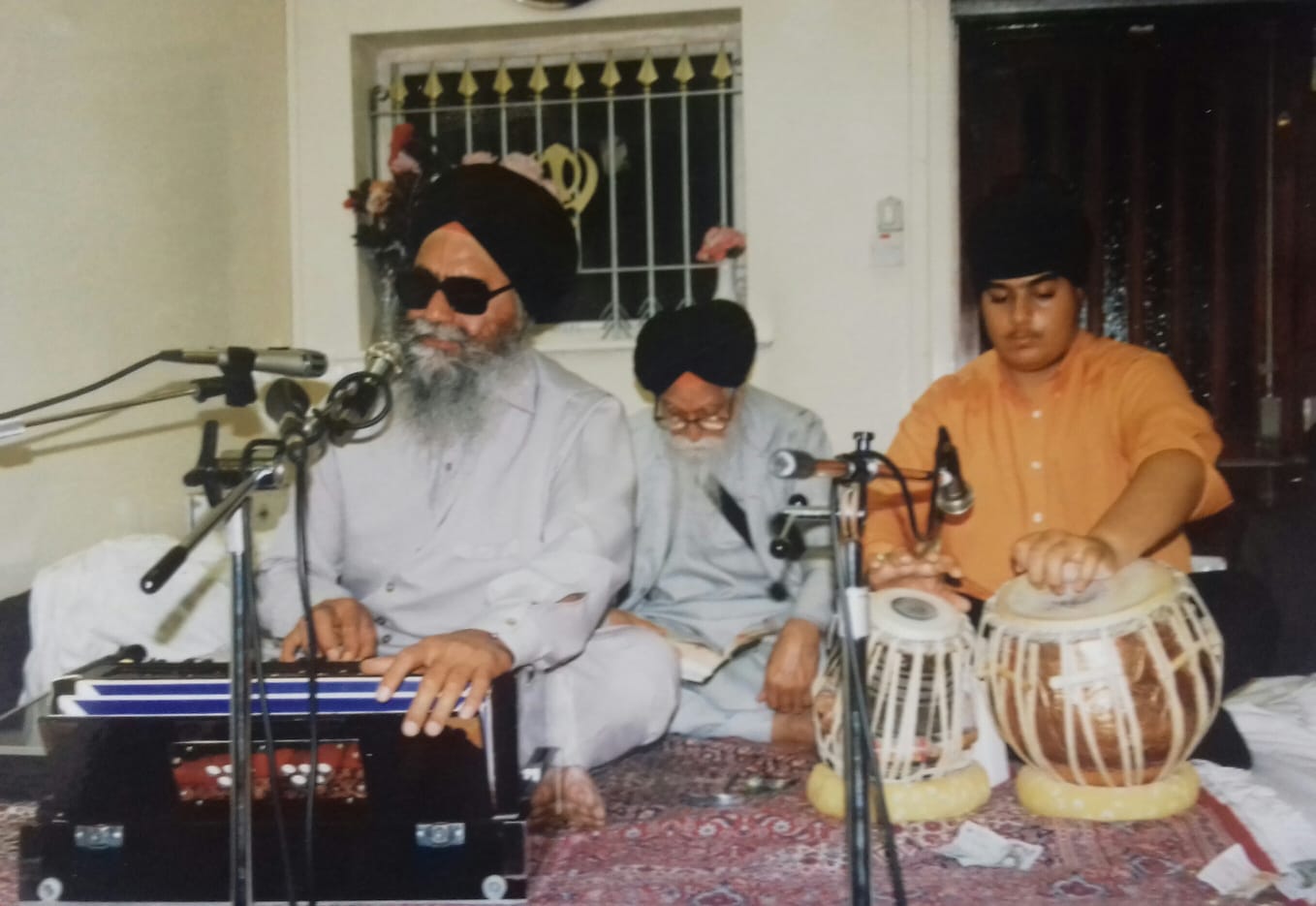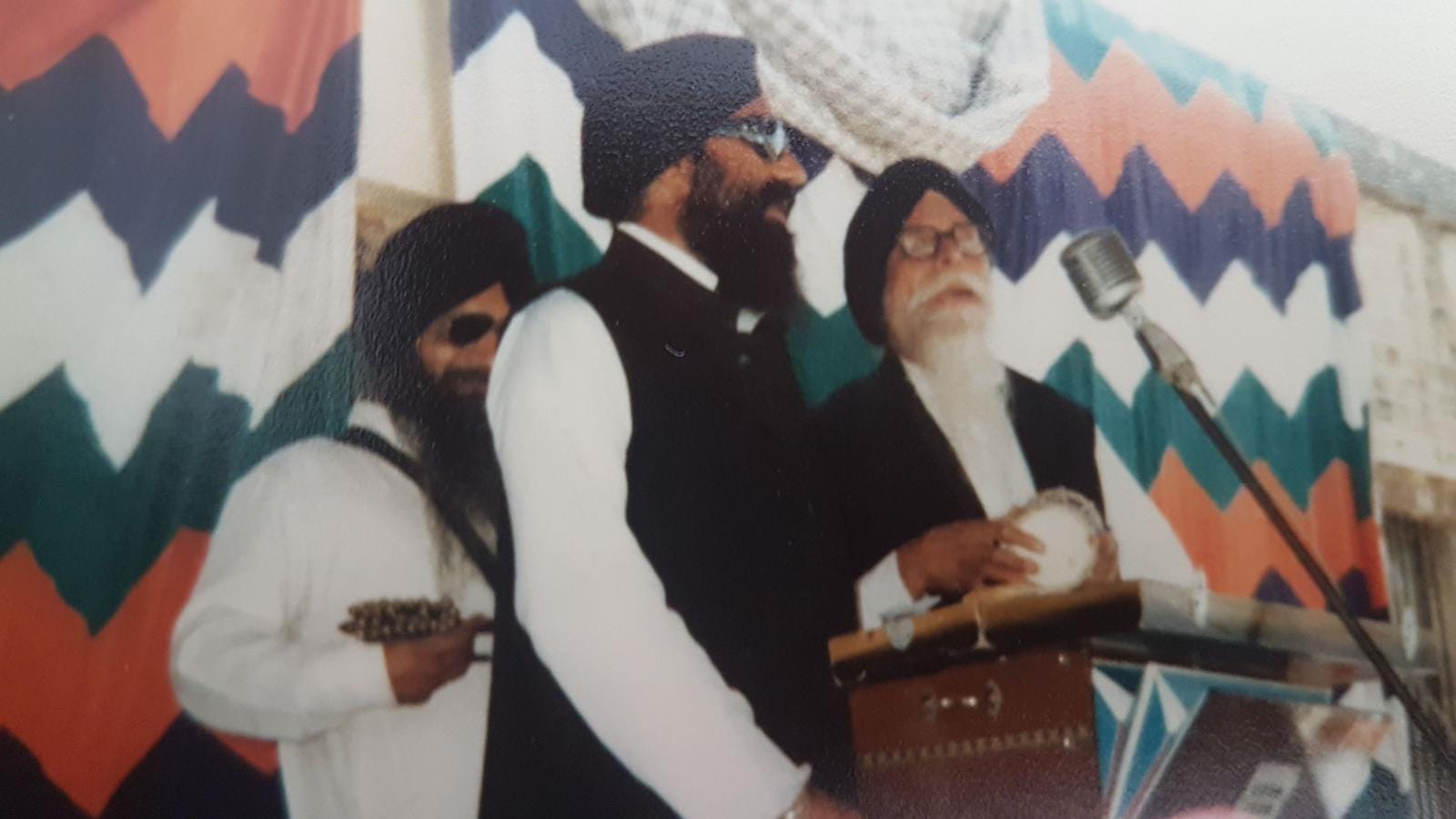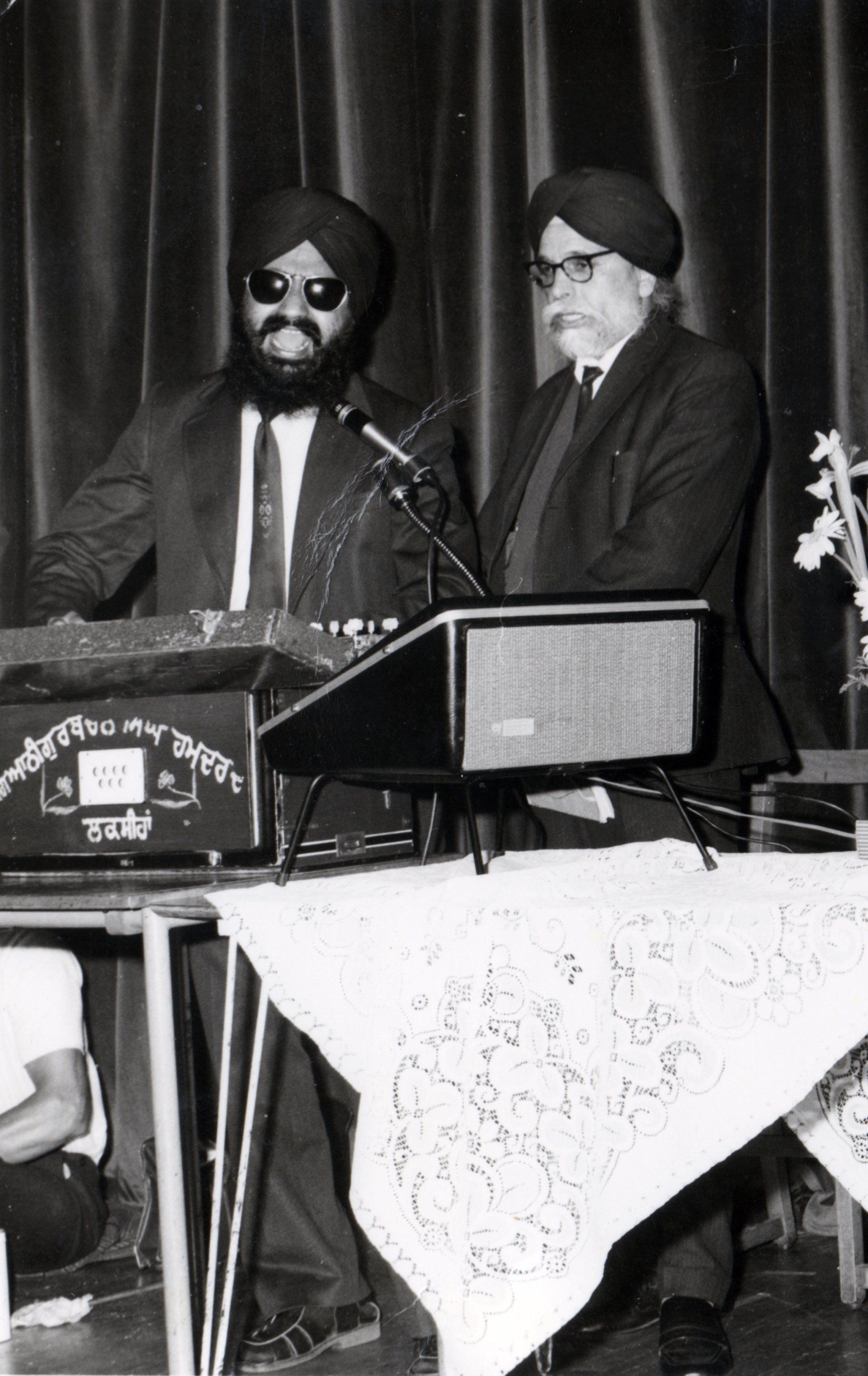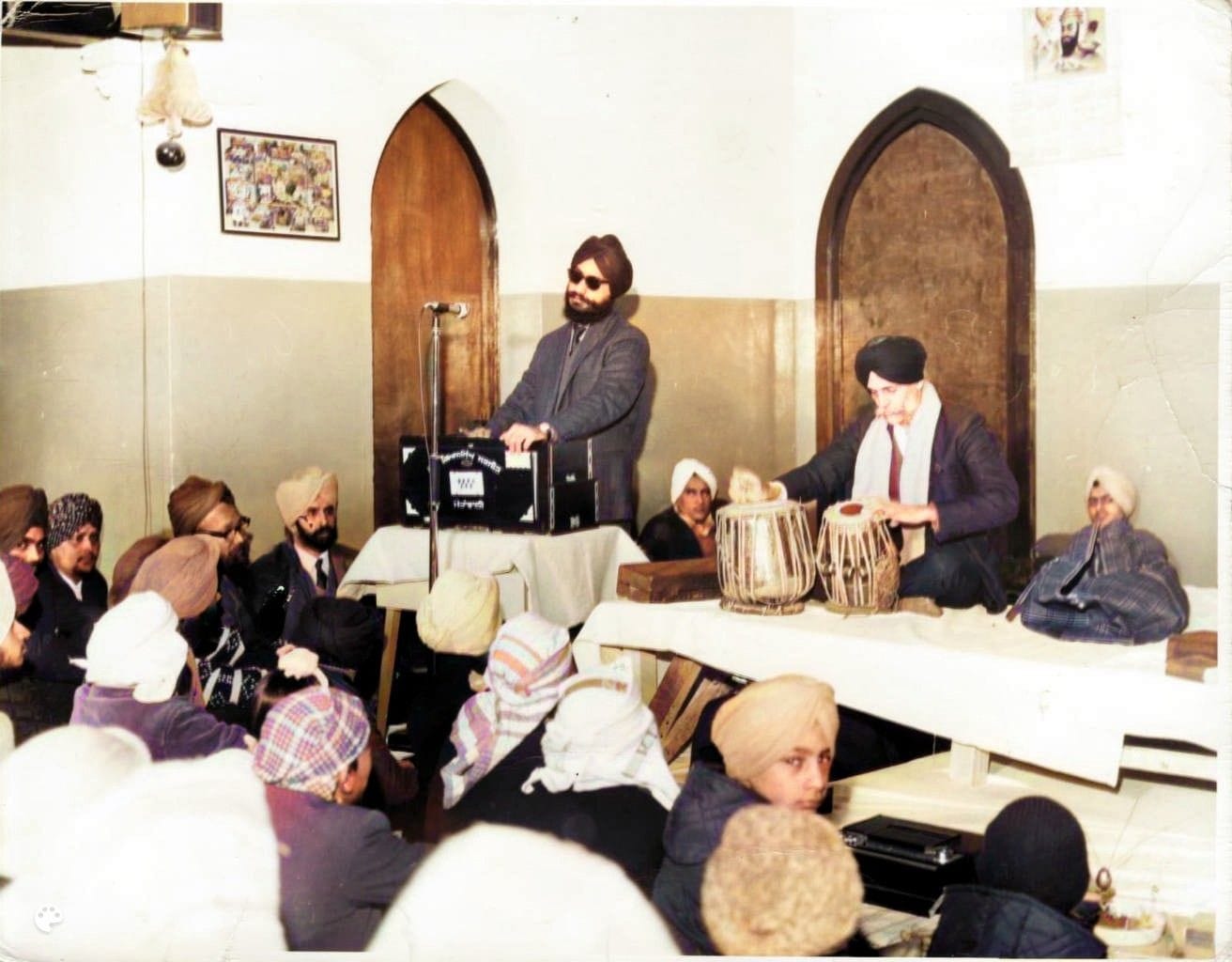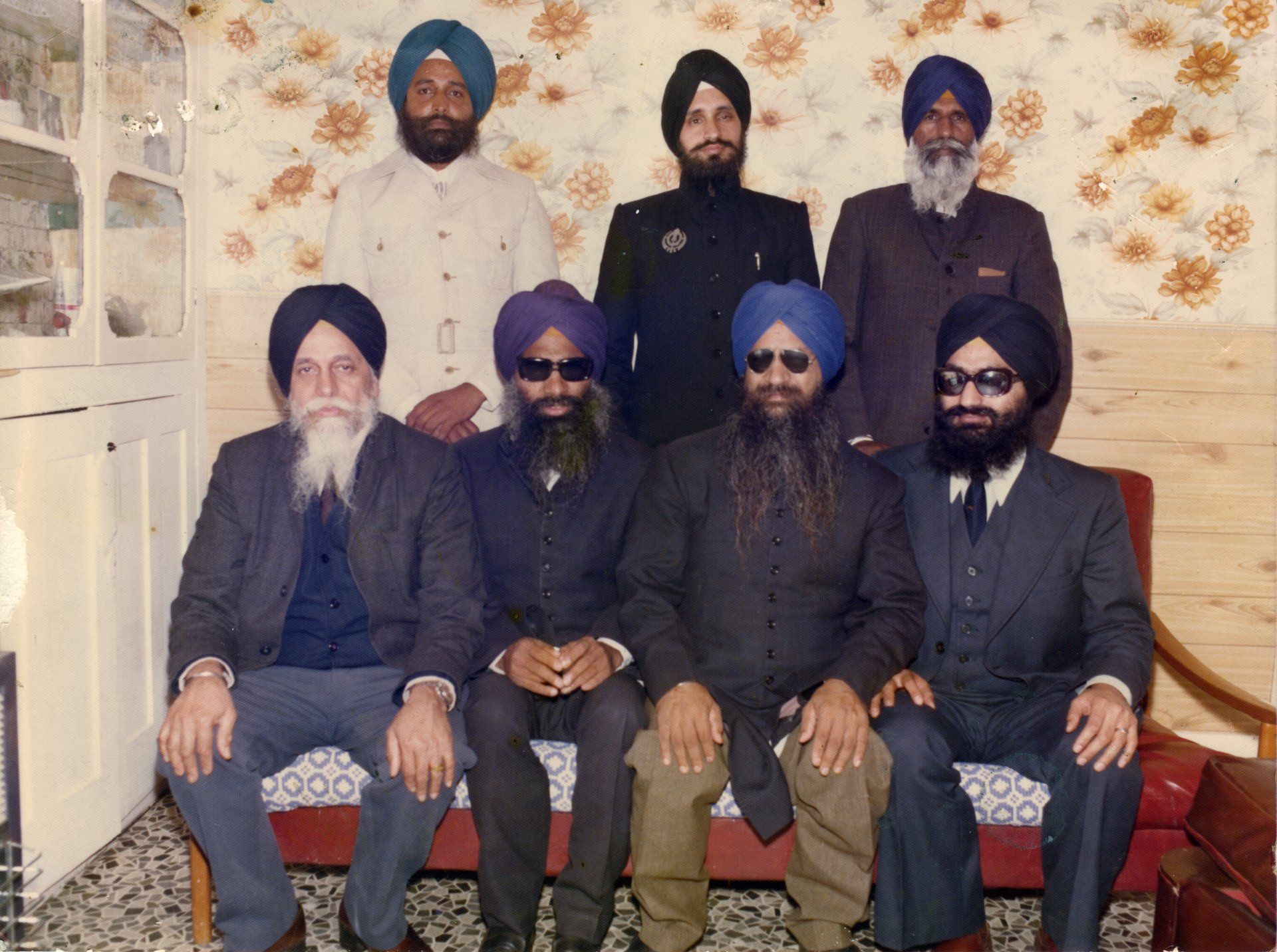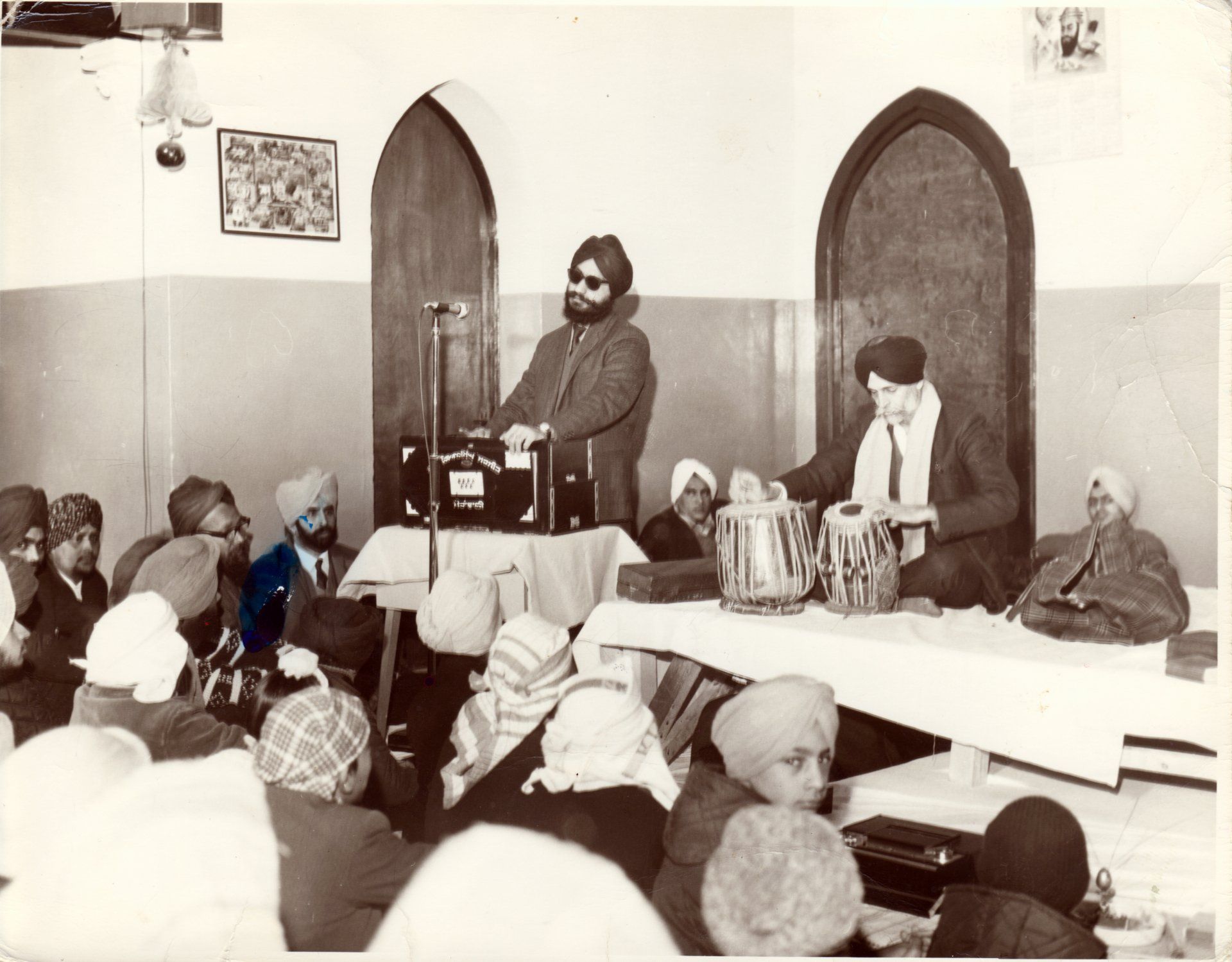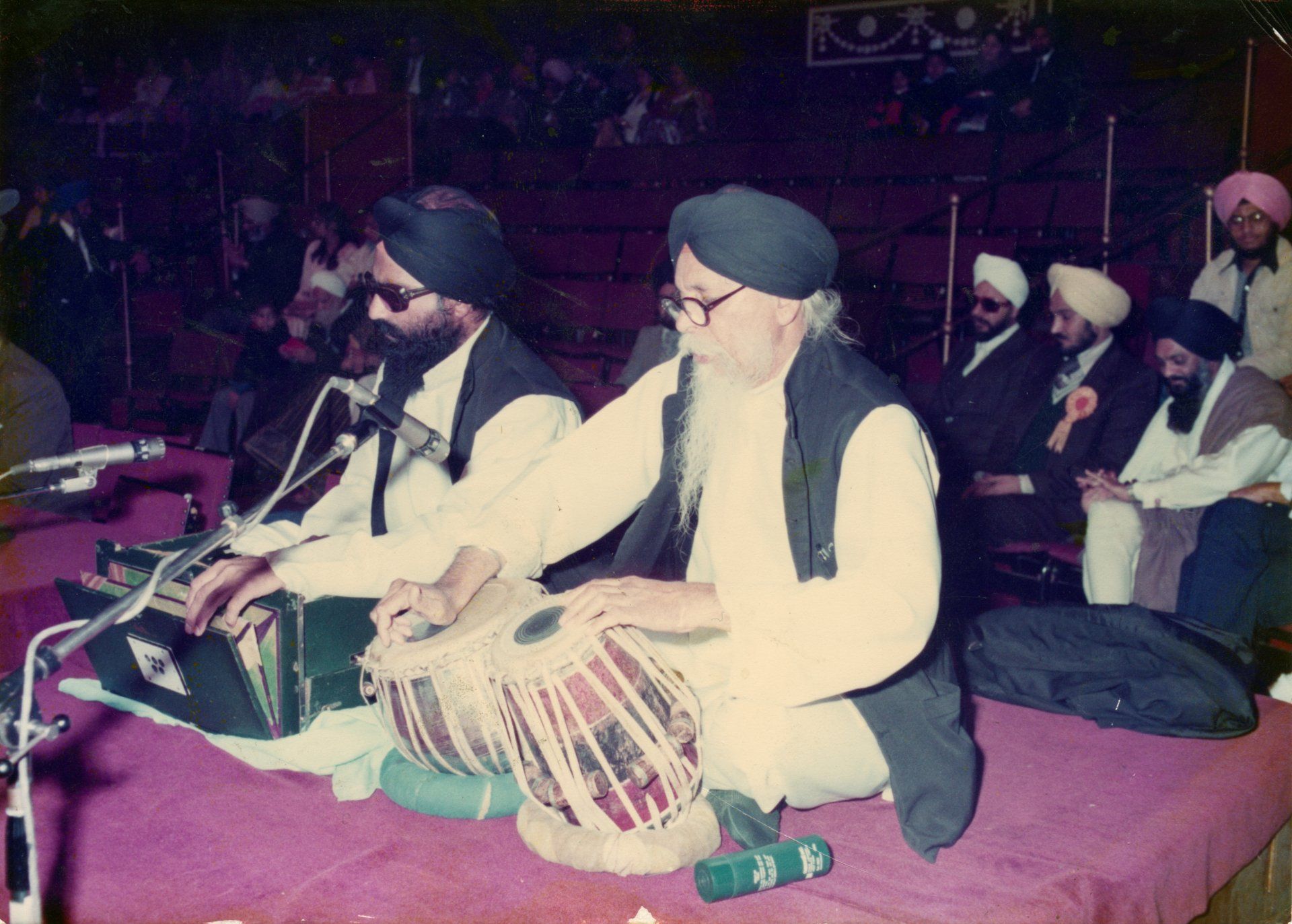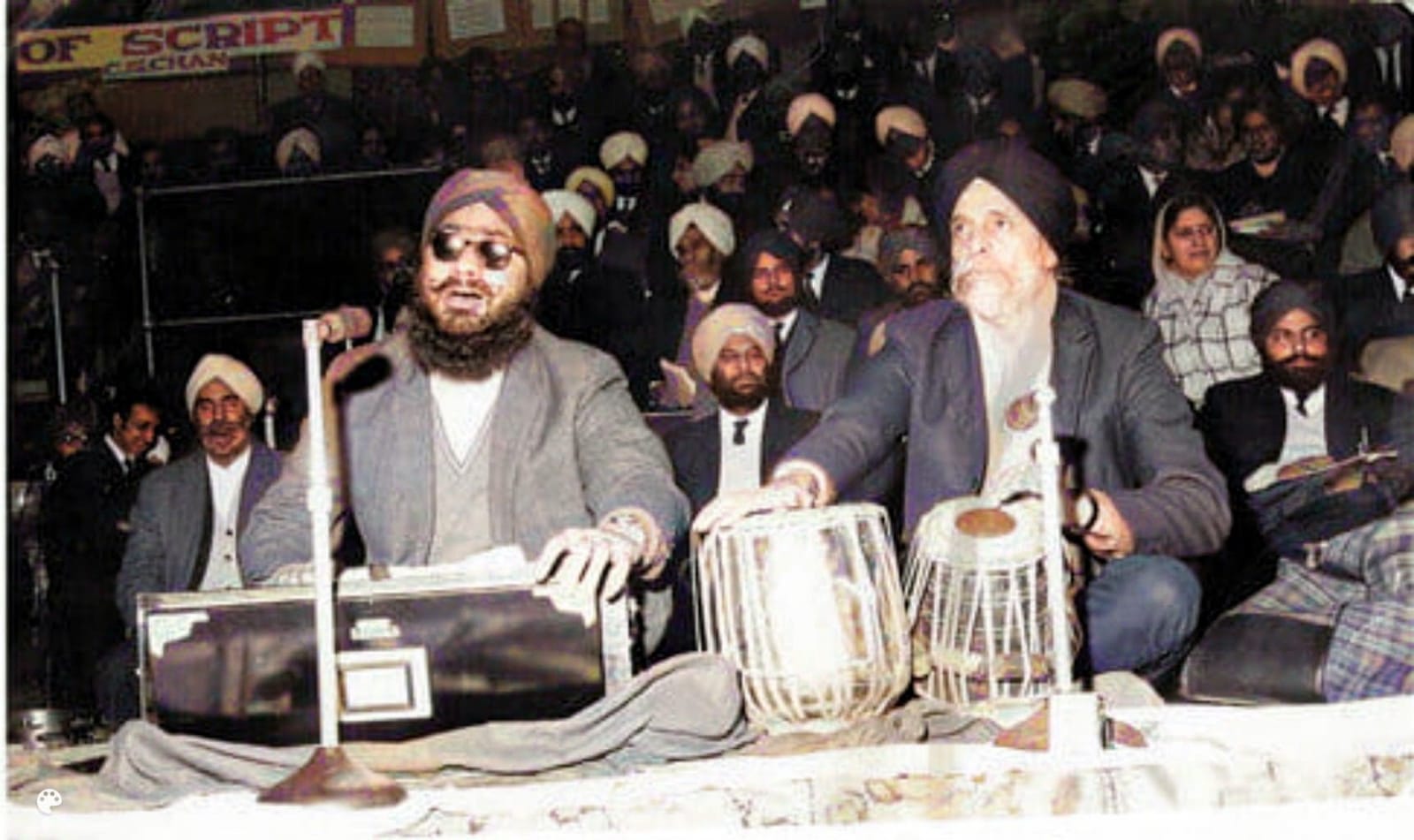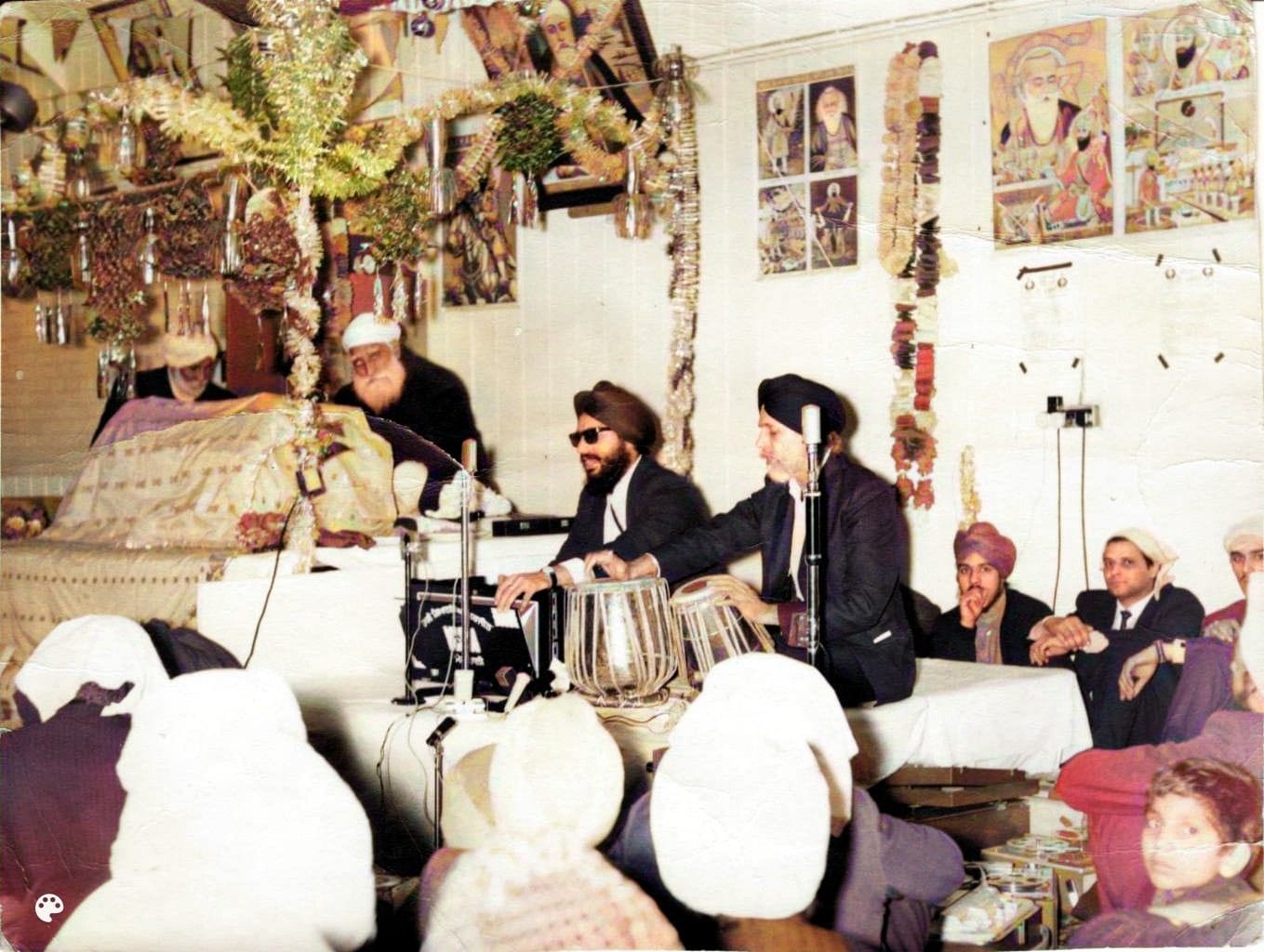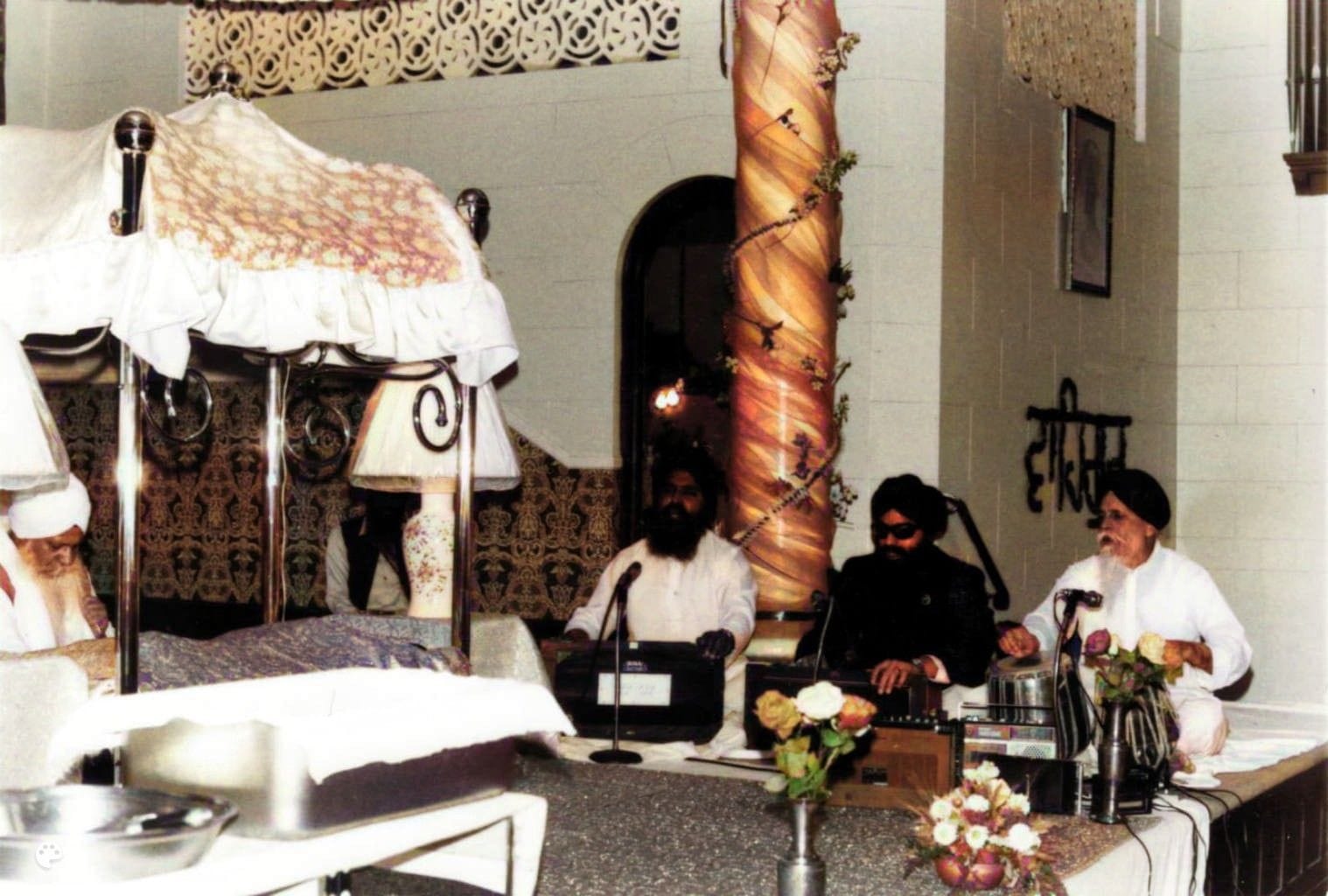Giani Gian Singh Surjit
Giani Gian Singh Surjit was born 2nd August 1940 into the house of Sardar Banta Singh and Bibi Gurbachan Kaur, in the Punjabi village of Moranwali, District Hoshiarpur. At the young age of 2, Gian Singh lost his eyesight as a side effect of a medication which was given to him. At the age of 10, Gian Singh was sent to Daudhar, District Moga, to learn Gurmat Sangeet where he received his early sangeet education.
In the early 1960s, Gian Singh was introduced to Sangeet Professor Darshan Singh Komal and subsequently went on to become a student of Komal Ji and eventually became known as “Surjit”. At the time of Komal Ji’s death in 1962, Gian Singh Surjit became a member of the Jatha alongside Giani Gurbachan Singh Hamdard and Bhai Didar Singh Nangal Khurd, which went on to do Kirtan and Dhadi seva until 1967, when Hamdard Ji moved to England.
The following year, in 1968, Gian Singh Surjit also moved to Gravesend, Kent in England and continued the Jatha alongside Gurbachan Singh Hamdard and continued to serve the Sangat in the Panth in the UK and abroad until their last breath. Upon arriving in England in 1968, both Gian Singh Surjit and Gurbachan Singh Hamdard continued Komal Ji’s legacy and formed the Guru Nanak Sangeet Vidyala to teach students in the UK. This vidiyala went on to teach countless students as both Gian Singh Surjit and Gurbachan Singh Hamdard dedicated their lives to spreading Gurmat and serving the Sangat and Panth.
This vidiyala in later years went on to be renamed as Guru Nanak Komal Sangeet Vidiyala, which still continues today being led by Parvinder Singh Lalli and Harkiret Singh Bahra, students of Giani Gian Singh Surjit and Giani Gurbacahan Singh Hamdard in Gravesend. Following Giani Gian Singh Surjit and Giani Gurbachan Singh Hamdard, Giani Sital Singh Sitara assumed responsibility and resumed teaching the students of this vidiyala, until his death in 2021.
Since the 1970s, Gian Singh Surjit was an official examiner for the Pracheen Kala Kendra Music Academy, Chandigarh, which operated in the UK as the Overseas Indian Music College.
In 1969, on the 5th of October, Gian Singh Surjit married Karamjit Kaur at Guru Nanak Darbar Gurdwara, Clarence Place in Gravesend.
During their early years in the UK, the Jatha of Gian Singh Surjit and Gurbachan Singh Hamdard became very popular among sangat in the UK as many people were familiar with them and Komal Ji from their time in Punjab, prior to moving to the UK as well as from their close associations with Komal Ji.
On 6th December 1969, at the Royal Albert Hall in London, Guru Nanak Dev Ji’s Parkash Utsav was celebrated and both Hamdard Ji and Surjit Ji attended in the audience as they were not an invited Jatha. There were many people present who were very familiar with the Jatha and its history, from Punjab and since they had arrived in England and wanted for them to be given time on the stage due to their immense popularity. Dozens of people were insisting with the event organisers that Hamdard Ji and Surjit Ji be given time, but the jatha was not given time on stage by the organisers. Many people in attendance and friends strongly objected to this.
The High Commissioner of India, His Excellency Sri Apa Pant was invited as an honourable guest to the event and he came to know of this as sways of people were approaching the event organisers and strongly insisting the jatha be given time. At this point, the High Commissioner, Apa Pant specifically requested to the organisation team that Hamdard Ji’s jatha be given half of his allocated time on stage (5 minutes). Hamdard Ji and Surjit Ji went on stage and sang the following Komal Ji’s composition regarding the Gurpurab of Guru Nanak Dev Ji;
1) Ajj Punjiya Di Raat Anokhi, Sakhi Ni Chann Do
At that time, many sangat in attendance of this event have said that Guru Nanak Dev Ji was “present” (Haazar) within the congregation itself. During the time these geet were recited by the jatha, there were pound notes were “pouring” from the galleries on all four sides as sangat was giving the jatha money for the renditions of Komal Ji’s geet. Sangat at the event have stated over the years that “pound(an) da mee warsayia” meaning it was raining pound notes and that they had never seen that occur before or after that event.
After hearing this first geet, the High Commissioner Apa Pant got up and approached the stage to give the jatha a five pound note, as well as to request that the Jatha sing another geet “Ek aur sunayeeye” as the entire audience was amazed. The High Commissioner then allocated the remainder of his allotted 5 mintues to Hamdard Ji and Surjit Ji who then went onto sing the following of Komal Ji’s compositions;
2) Sach Kade Lukayia Lukda Nahi
The following week, there was also another celebration for Guru Nanak Dev Ji’s 500th Gurpurab held in Birmingham, with a Nagar Kirtan, followed by a programme at Birmingham Town Hall, where the High Commissioner Apa Pant was once again in attendance as an honourable guest. The two Komal Ji’s compositions the jatha sang here were;
1) Deena Da Sahara Ajj Aagaya Jahan Te
2) Ajj Puniya Di Raat Anokhi, Sakhi Ni Chann Do
The High Commissioner gave the jatha a special acknowledgement. After this event, this jatha went on to do Gurmat Parchar throughout the UK, Europe, Canada and America.
In 1971, they released a vinyl record, which gave them the honour of having the first Punjabi record to be recorded and released outside of India. This record contained two Lok Geet;
Since 1976, Gian Singh Surjit and Gurbachan Singh Hamdard, released several Dharmik records in the UK and various cassettes.
In the 1980s, Gian Singh Surjit cofounded the Guru Nanak Missionary Blind Society in the UK, which went on to establish the Guru Nanak Mission Netarheen Birdh Ashram in Phagwara, Punjab, which has been operational since 1988. This Ashram is a non profit institution and charity set up to look after the blind, orphans, elderly and otherwise physically disabled people, providing vocational training in braille, music (Gurmat Sangeet), painting, sewing and various other skills designed to give these disabled individuals the independence to live their lives without having to rely on others for assistance and also have the potential to earn a living through creating opportunities, jobs and support themselves.
Gian Singh Surjit was diabetic and suffered from hypertension and had a heart attack in 1992, following which went through a triple bypass in 1993. Despite this major health incident, after a short period of recovery, Gian Singh Surjit resumed Kirtan programmes and teaching duties even though doctors had suggested he stop singing due to the pressure on his heart. Gian Singh Surjit remained in Chardi Kala and did not waiver on his seva to the Panth.
In early 1999, Gian Singh Surjit suffered a stroke, but again, this did not deter him from continuing his duties and honouring the Kirtan bookings the Jatha had at the time going into the 300th Vaisakhi programme celebrations across the country. After a very short recovery period, again despite constant recommendations from doctors to stop singing, Gian Singh Surjit went on to do Kirtan and Dhadi seva. However, after this stroke, it was very evident that his health had seriously deteriorated and his singing abilities had suffered greatly, but this did not deter him from continuing.
In 2002, Gian Singh Surjit co-authored a book with Sital Singh Sitara titled “Gurbani Komal Sangeet”. In June 2006, Gian Singh Surjit went on to author “Surjit Jhalkiyan” and instructed Ajit Singh Sohal to edit and publish it, during which time Gian Singh Surjit passed away on 20th October 2006.
Giani Gian Singh Surjit suffered from a massive heart attack and passed away on 20th October 2006 at his family home in Kent. He is survived by his wife of 37 years, Karamjit Kaur and his 3 children, Jasbir Kaur, Ranbir Singh and Harjot Singh.
Not only was Giani Gian Singh Surjit a husband, father, brother, but a friend and mentor to many, and a shining ray of light to all those who knew him. He was a fountain of wisdom with a great sense of humour and a truly inspiring individual.

